Glee Club Presents:
Conversations
featuring the Antioch Chamber Ensemble
Saturday, February 29th | 7:30pm | Richardson Auditorium
About the program
A concert of conversations - social, political, historical, and antiphonal - featuring Thomas Tallis’ amazing Spem in Alium on the 450th anniversary of its composition, alongside the piece that inspired it - Alessandro Striggio’s Florentine masterpiece Ecce Beatam Lucem. Plus dazzling new works by Princeton students past and current, and a specially commissioned work by Joanna Marsh for the 50th anniversary of co-education at Princeton University. All featuring the amazing Antioch Chamber Ensemble!
The program includes:
JOANNA MARSH
Dialogo and quodlibet
An Extra Day, with text by Jane Hirshfield '73 (world premiere)
FLANNERY CUNNINGHAM '14 & TANYARADZWA TAWENGWA '14
Epitaph for Eugene Williams from A stone to the head
NATALIE DIETTERICH GS
Conversations with strangers
NATALIE STEIN ‘21
In a World that Misperceives You (world premiere)
THEO TREVISAN '21
Missa Brevissima (world premiere)
ALESSANDRO STRIGGIO
Ecce beatam lucem
THOMAS TALLIS
Spem in alium
Conversations about Conversations
Profiles written by Marcia Brown ‘19
JANE HIRSHFIELD ‘73
February 29 | text of An extra day
Jane Hirshfield wants to be a broad poet, and to write about many things in the world. “The world is enormous and many-faceted,” she said simply. Indeed, why not write about both the exceptional and the quotidian? Part of the task of the poet, she says, is to reflect the full panoply of what life brings us and what life asks of us. Hirshfield’s general sense of the world, which she attempts to illustrate in her poem “February 29,” is “this balance of abundance and the fact that we’re all going to disappear.”
Hirshfield graduated with the first class of women, 1973, she explained. Though she matriculated as class of 1974, she skipped her sophomore year and missed what she calls the “fishbowl year” when the few women students were all in one dorm. In her second year, the University opened a co-ed dorm in what is now Forbes College. This, she says, was a dramatically different experience. But her time at the University nonetheless helped her on her way to becoming a poet. When she applied to Princeton, she was deciding between it and a liberal arts school known for its writing program. She visited campus the day after the first Earth Day, 50 years ago. “I saw a campus full of signs about Earth Day and boys with ponytails throwing frisbees,” she said.
At the University, she eschewed a classic structured Princeton education as clichéd. Instead, she followed her interests and wound up taking many classes in the East Asian Studies Department—which had been taking transfers of women students for years. (Hirshfield has since translated several volumes of Japanese poetry). In one seminar, Hirshfield said, there were 13 women, one man, and a woman professor. In another experience, she described what was then the Princeton Inn (now Forbes College) during its first year as a dormitory. “There was still hotel soap and stationary in the desk drawers and the air conditioners didn’t work,” she said. Somehow, that last part still hasn’t changed in many of the dorms! At least one thing has changed, Physics for Poets is now Physics for Future Leaders. “That’s much less fun now,” she said.
Despite being unable to carry a tune herself, Hirshfield says that without music, there is no poetry for her. To write her poems, “some music has to come into the mind,” she says. “Music is a kind of concentration of the psyche.” Hirshfield said writing poetry is like trying to discover an experience and write it in such a way that someone else can have the same experience—and the same goes for music.
In “February 29” Hirshfield draws on the experience of opening a letter from a friend who has died since writing it. Although most of us don’t send many letters these days, we know the feeling a letter has that’s different from an iMessage. Knowing that their hand brushed that page, gently indenting and marking the paper with the tip of a pen. To open and read a letter in this context offers the gentle surprise of a bit more time with a cherished friend, an extra day to share with them on this earth. Hirshfield’s poem is striking in its simplicity, offering comment on something as unremarkable as a cup of black coffee and an extra day’s work or even the extra day in February during a leap year. Yet that’s what makes it so familiar, an experience that Hirshfield describes so accurately we can experience it, too.
JOANNA MARSH
An extra day
Joanna Marsh’s setting of Jane Hirshfield’s poem “February 29” takes on a new depth through Marsh’s melodies and in her renaming. In Marsh’s setting, the text never repeats. (There’s only one extra day, after all.) There was a simplicity to the poem, Marsh said, that appealed to her—something about the every day and yet exceptional. Behind the poem, Marsh knew, was a poignant moment: Hirshfield had discovered a letter from the friend, written before a friend’s recent death. There’s a generosity in that letter, giving her an extra day—slightly imbued with sadness—that’s so familiar, Marsh said. “This extra day, a little glimpse of her friend,” Marsh said. And there’s a generosity to music, Marsh added, and the abundant kindness in Hirshfield’s poem without being extravagant, is realized in Marsh’s piece.
Instead, Marsh leans into the text as straightforward, developing a piece a bit jazzy here and there and with a singer-songwriter quality. Marsh likes the “everydayness” of the things Hirshfield writes about. “That’s the stuff that our days are made up of,” she says.
Describing her process and how she chooses texts, Marsh said she looks for a text that speaks on its own first. “You can choose where you’re taking it, but you can’t shoehorn a text into something that’s already a musical idea,” she said. With the Hirshfield poem, she used her music as a palette to set that text. “When you want to set a text,” she explained, “it has to spark something that makes you connect with it because that generates the ideas of what you might do musically with it.”
Dialogo and Quodlibet
Anton Francesco Doni (1513-1574), the son of scissors-maker in Italy, was a satirist and amateur “wannabe” musician. In ‘Dialogo della Muscia’ (1544), Doni recorded conversations and created imagined conversations to analyze and comment on music and its performance. Marsh takes this text (and other Doni letters) and designs her own parody: Dialogo and Quodlibet is divided into 12 parts and two choruses, one of altos and sopranos and one of tenors and basses.
Most early women composers were nuns, and in the very first movement, Marsh quotes one of Doni’s letters about nuns’ singing. Using the bespoke language of the Academy, the two choruses engage each other (the lower voices unknowingly) in observations on music, music theory, and its performance. But the dialogue includes jabs between the groups, with the sopranos and altos reproving the men: “…the vain error of men that they alone possess the intellectual gifts, and who appear to believe that the same gifts are not possible for women.” The sopranos and altos, representing the Muses of Helicon, look down on the tenors and basses, representing characters from the ‘Dialogo’ and who are unaware of the muses but deeply engaged in a quasi-technical discussion of music theory. The theatrics of the piece offer levity to the listener, with the higher voices soaring gracefully above the fray and the lower voices offering an arrogant choppy discussion of the “hodge-podge” that music can be with poor guidance. It’s a delicious result, showing that women have the same, if not better, intellectual gifts as the men, and that perhaps men ought to be a bit more introspective. Then, perhaps, they might avoid the “hodge-podge” they’re so worried about in the first place.
FLANNERY CUNNINGHAM '13 & TANYARADZWA TAWENGWA '14
Kuzorodzwa kwaEugene (Epitaph for Eugene Williams)
Eugene Williams was in no man’s land—the water between the “black beach” and the “white beach” in Chicago on a hot day in July 1919. Chicago did not have de jure segregation in its public facilities at the time, but de facto segregation was pervasive. Along with his friends, five other African American boys all under age 18, Williams had constructed a raft to navigate the space at 27th street, unofficially demarcated for neither white nor black swimmers. None of the five could swim, but a raft could bear them safely through the cooling Lake Michigan waters. But this respite was broken by a white man standing at 26th street who began to hurl stones at them to drive them from the “white beach.” The white man struck Williams on the forehead, causing him to slip from the raft and drown.
When a black policeman strode toward the “white beach” to identify Eugene’s killer, a white policeman stopped him from making the arrest. The two argued and whites soon provoked violence resulting in a weeklong riot that ended only with the deployment of the Illinois National Guard. The summer of 1919 was filled with 25 similar riots and became known as the ‘Red Summer.’ Composers Tanyaradzwa Tawengwa and Flannery Cunningham sought to capture this moment in their piece A Stone to the Head commissioned by Grace Chorale in Brooklyn, and premiered last year as part of an effort to commemorate the summer of 1919. The two composers spent the year prior deep in primary documents and composing.
The 12-part five-movement piece takes the listener through the story of Eugene Williams, drawing on primary sources and using phrases like “When the mob comes and you must die, take at least one with you!” and “Call the white friends to the door and shut them down” as well as “One million Negroes like a disease” and “You dirty…scabs!” Tensions in cities across the north were rife—millions of European American and African American migrants looking for work in overpopulated cities mixed with a convulsing postwar society, increasingly racist federal policies, and a rising labor movement. Against this backdrop, Cunningham and Tawengwa ask their listeners to reflect on the legacy of summer 1919. The composers drew on the assistance of poet Angel C. Dye, a contemporary African American poet from Texas to weave the language of the movements together.
In composing the piece, the two centered on Eugene Williams. “The extent of our ambition in this movement is to set one soul to rest,” they explained. Tawengwa, who is from Zimbabwe, incorporates a Madzimbabwe (present-day Zimbabwe) instrument into the piece “whose ritual purpose is to facilitate communication between the human plane and the ancestral realm.” Without this tradition, a spirit will wander aimlessly among the living unable to transition to “the land of the ancestors.”
The Princeton Glee Club is where Cunningham and Tawengwa met. They wrote the piece on three continents, and neither had co-composed with anybody before. Composing collaboratively is uncommon, but “ego is the enemy to creativity,” they say.
NATALIE DIETTERICH GS
Conversations with strangers
Across the country, deaths from opioid addictions are increasing. Staggering statistics place the toll at higher than the height of the AIDs epidemic. But addiction is not a single-layer story of painkillers. It’s a story of mothers and fathers and alcohol and cigarettes and the mundane. It’s a story of neighborhood conversations and doctor’s prescriptions. Perhaps, addiction is ubiquitous. “Even if not you, what about your neighbor?” asks Natalie Dietterich GS in her piece on addiction, Conversations with Strangers.
The piece, which has been performed half a dozen times, is Dietterich’s formal campus debut. Despite not being a lyricist, Dietterich says she takes a “heavy hand” in editing the texts she chooses for her work. In this case, she took a unique approach to research and writing for her chosen texts.
Dietterich went to diners, coffee shops, and other locales, seeking out people who sat alone and striking up conversation. The results are intimate vignettes of addiction, anonymized into snippets and combined to paint a portrait at once individual and universal. At the most poignant moment in the piece, the anguish of addiction is palpable, the score instructing for indistinguishable “wailing” of high voices at the top. Transparently, Dietterich explained that eliminating individual voices at this moment in the piece is part of her effort to bring home the universality of addiction, her central message.
NATALIE STEIN ‘21
In a world that misperceives you
Natalie Stein ’21 has enjoyed writing songs since childhood, but it wasn’t until matriculating that she took formal classes in composition. As a music major, Stein’s earliest inclinations to put notes on paper have blossomed. Sometimes, the ideas for composition, as in the case of In a world that misperceives you, come suddenly to Stein.
The four-part choral work rests on the unique unity of text and note when a composer writes her own words and draws out melody from the same place. Stein’s poem asks the listener to consider one’s own internal turmoil, and how—if ever—the listener admits to the outside world who she really is.
A soprano, Stein says that the sopranos share the melody for the most part, sharing the wealth to some extent with the altos. The basses are mostly left in the background, providing harmony and an anchoring foundation. The work invites a conversation, and different voices pull the listener in different places. In that at least, it’s the sonic realization of the splintering diamonds Stein writes about. From our tottering beginnings, we’ve been taught not to judge a book by its cover, nonetheless we do it all the time. First impressions matter, we’re also told. Stein’s poem reminds us that first impressions don’t have to last; it’s worthwhile and possible to open the book and lose our misperceptions.
THEO TREVISAN '21
Missa Brevissima
There’s a kind of universal hospitality in music-making, says Theo Trevisan ’21. A graduate of the American Boychoir School and a current University undergraduate, Trevisan has spent much of his life in Princeton. But music has carried him around the world, both in the notes he writes and in the places he has toured with choirs. Missa Brevissima unpacks a tension Trevisan wrestled with early on: Non-religious, Trevisan sometimes struggled with singing sacred music, a choral tradition that was nonetheless formative in his musical education.
“The moment you’re making music it doesn’t matter who you are or what you’re doing outside that moment. You’re all in it together,” he said. But in 2017, the American Boychoir School closed and with it, the chance for many young choral students to learn untangle these questions. For Trevisan, the closure inspired him to compose choral music, and Missa was the result. In particular, it was about understanding and loosening the rules—he knew that to break the rules you had to learn them. How do you pick the right wrong notes?
In Missa Brevissima, Trevisan uses the entirety of the mass (a text he first learned singing Joseph Haydn at the American Boychoir). But, in the tradition of the Enlightenment, he doesn’t want us to have to spend too much time in church. The movement is fast, saturated, urgent, and busy. As he described it, the haste to get through what’s demanded during our limited daylight hours is as familiar to University students as it was to Enlightenment church-goers.
Trevisan’s piece pays homage his time at the American Boychoir School and gives us a chance to think about how we might learn the rules and break the rules in order to honor their tradition in our work.
Thanks to our photographer, Yike Li, for these photos!

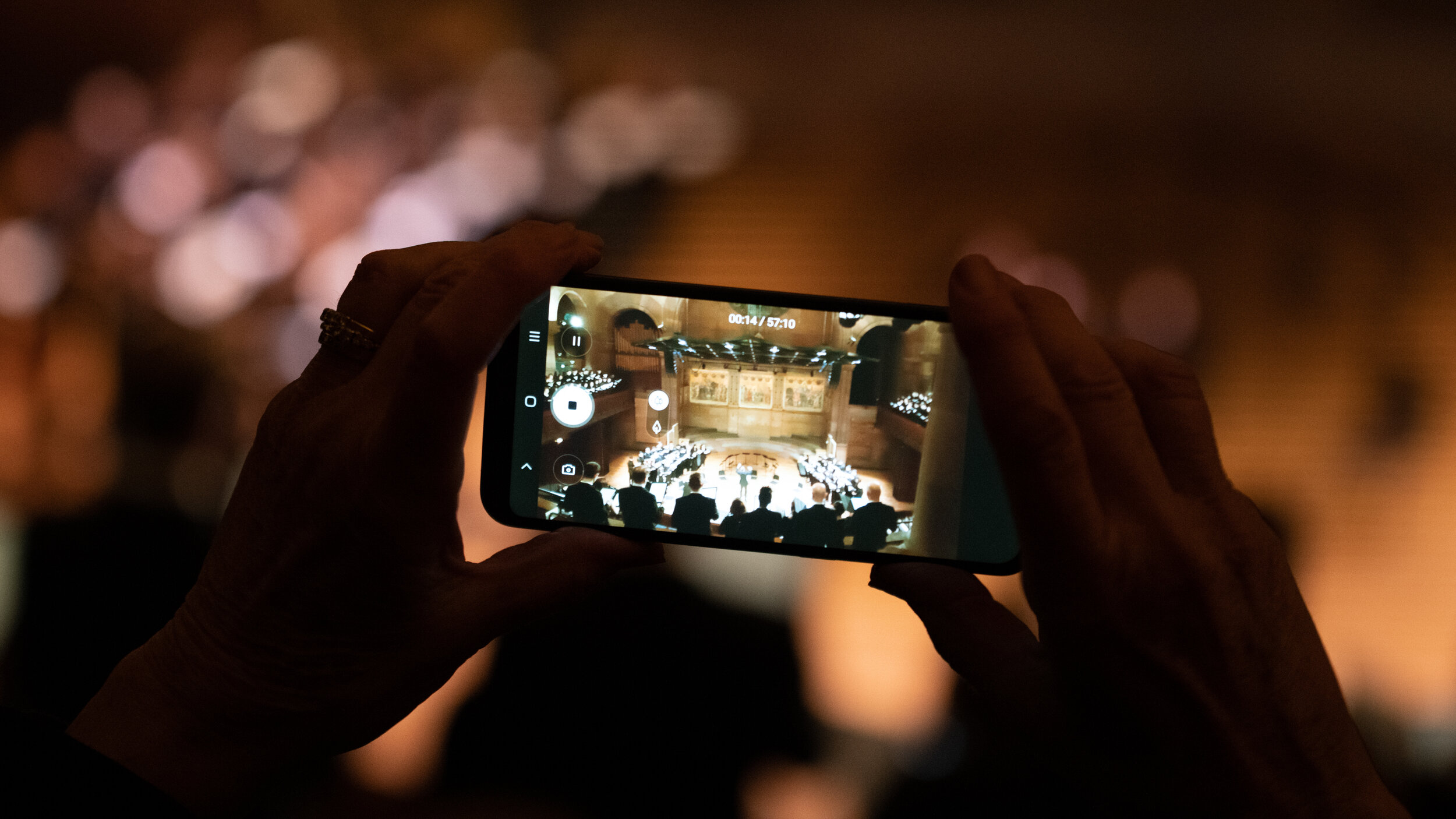
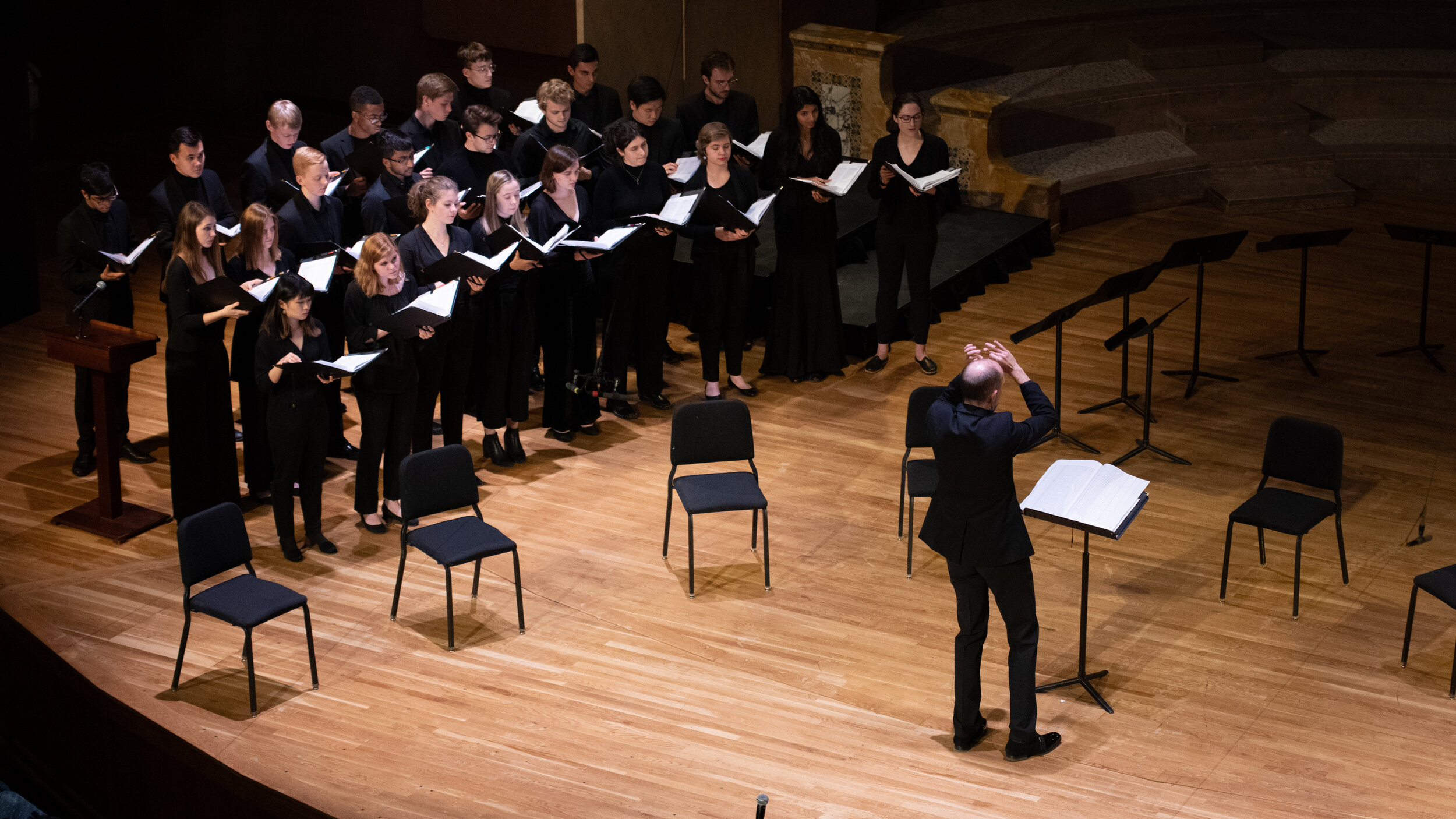
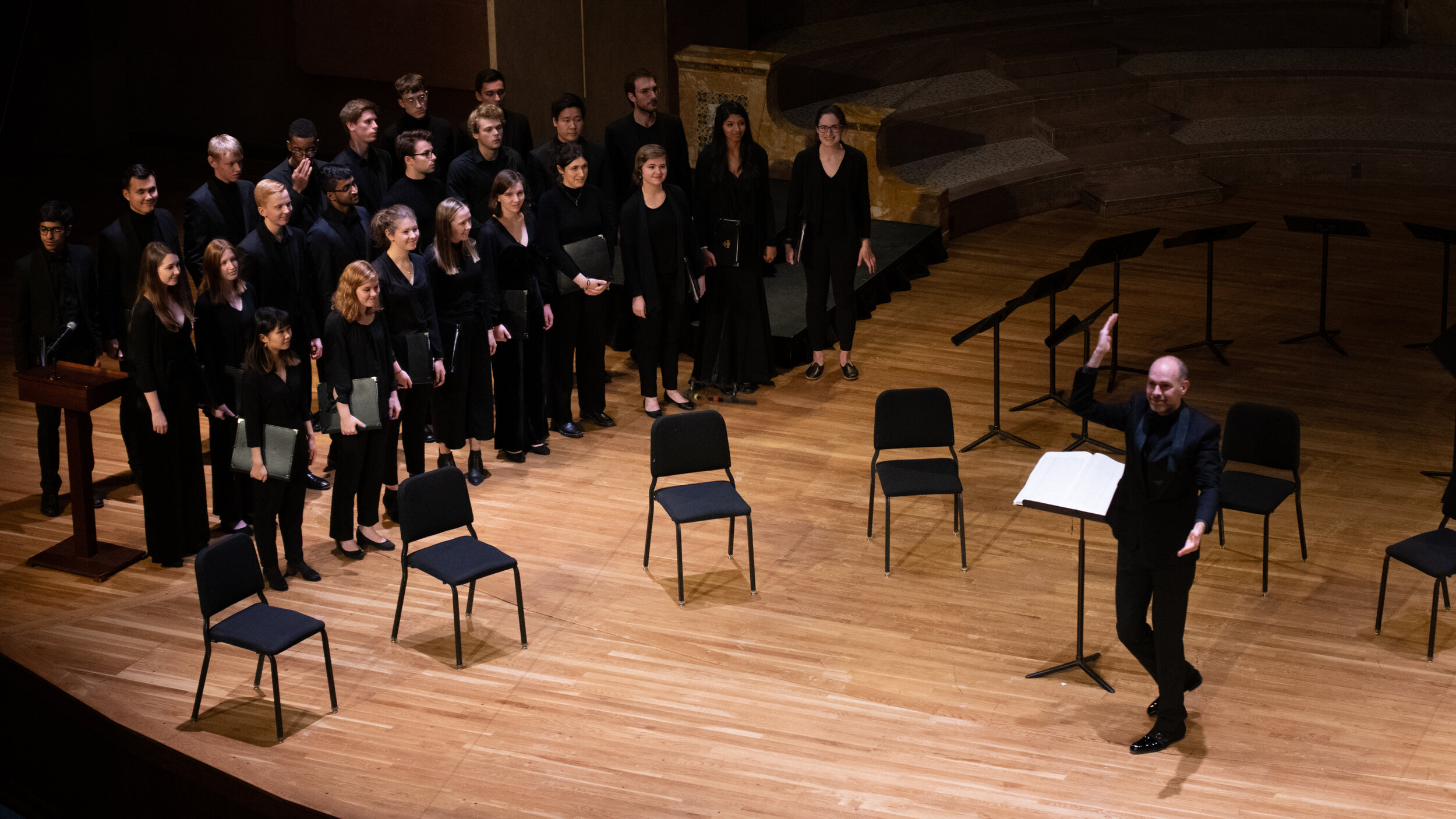
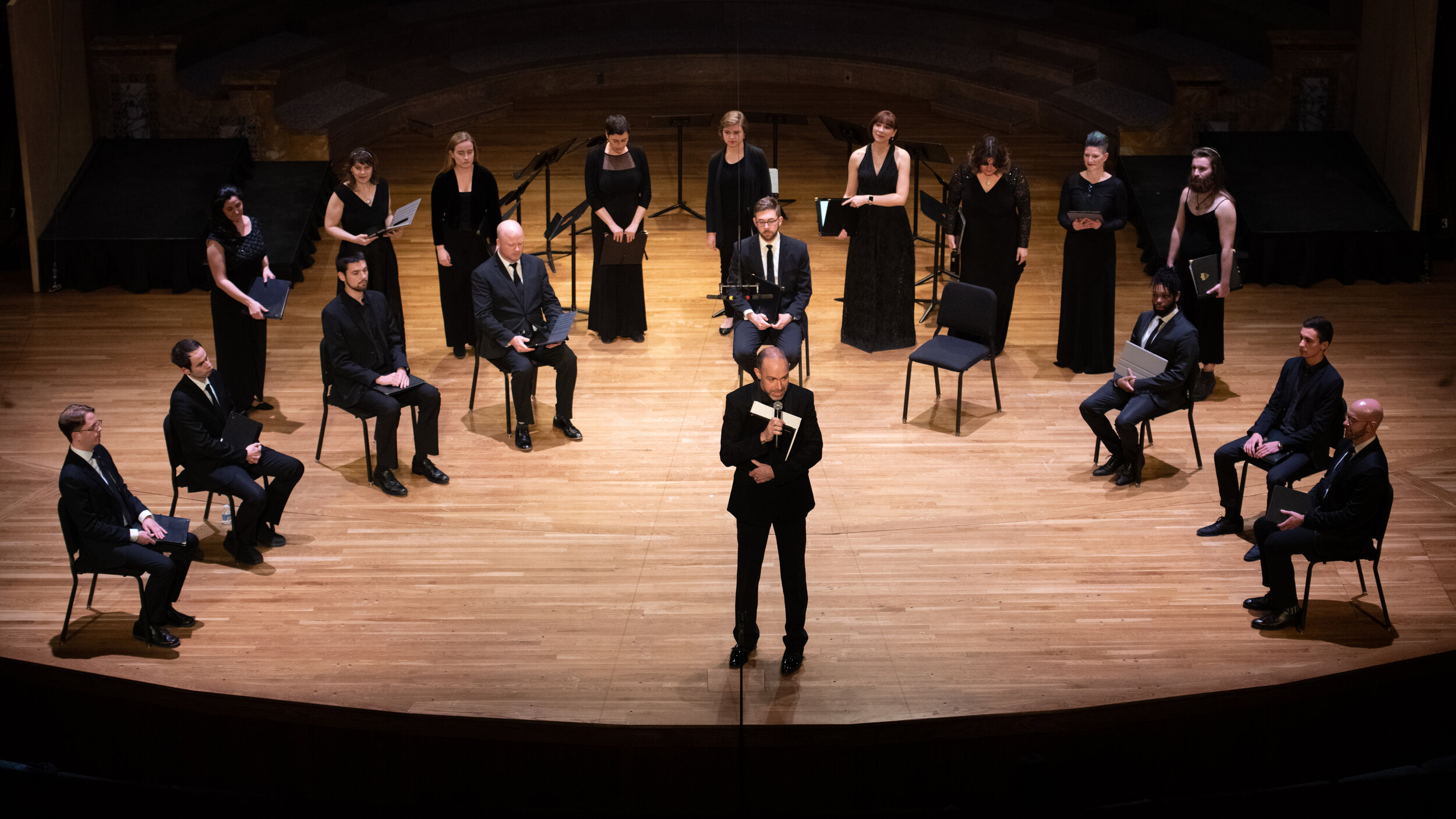
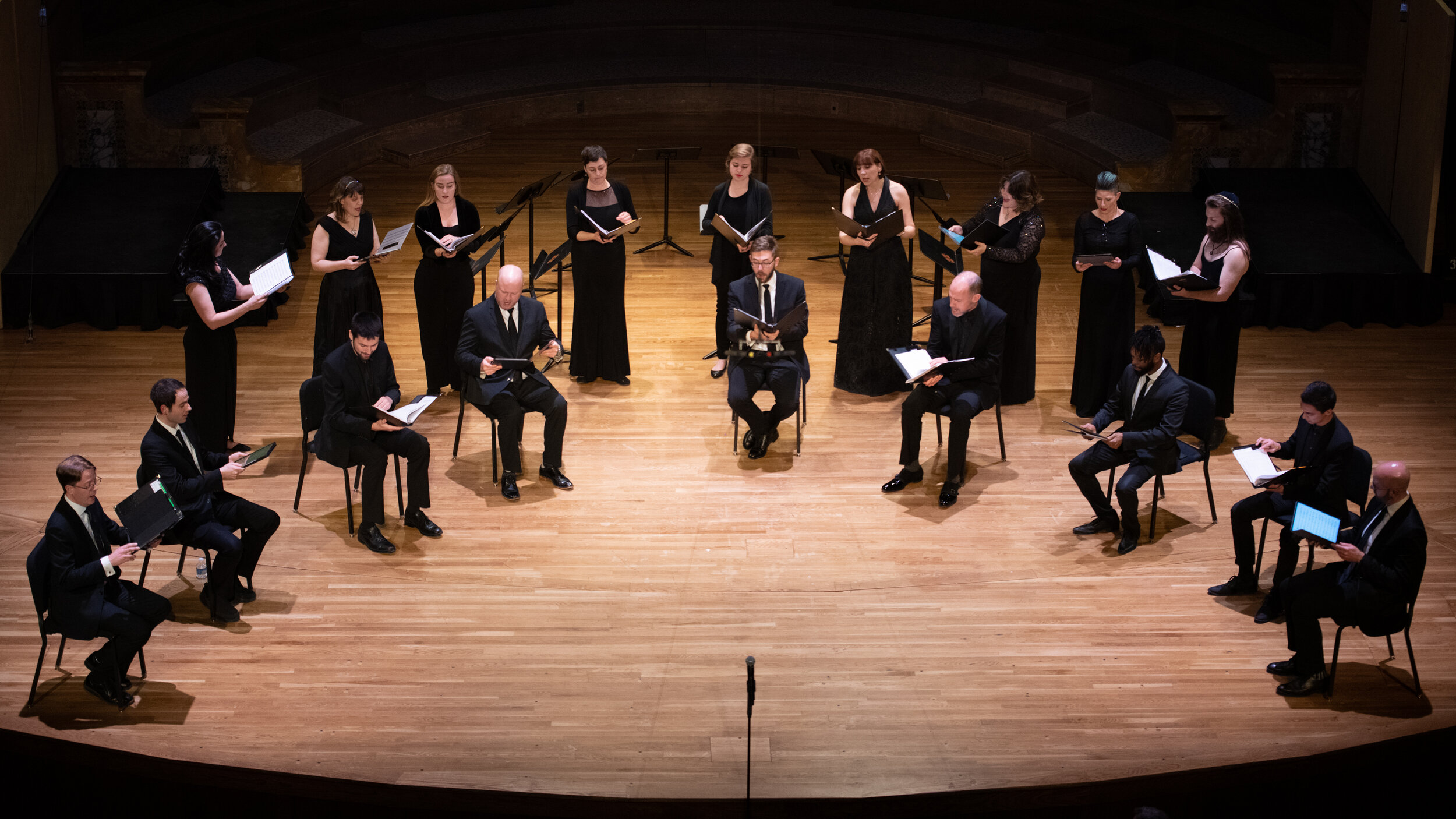
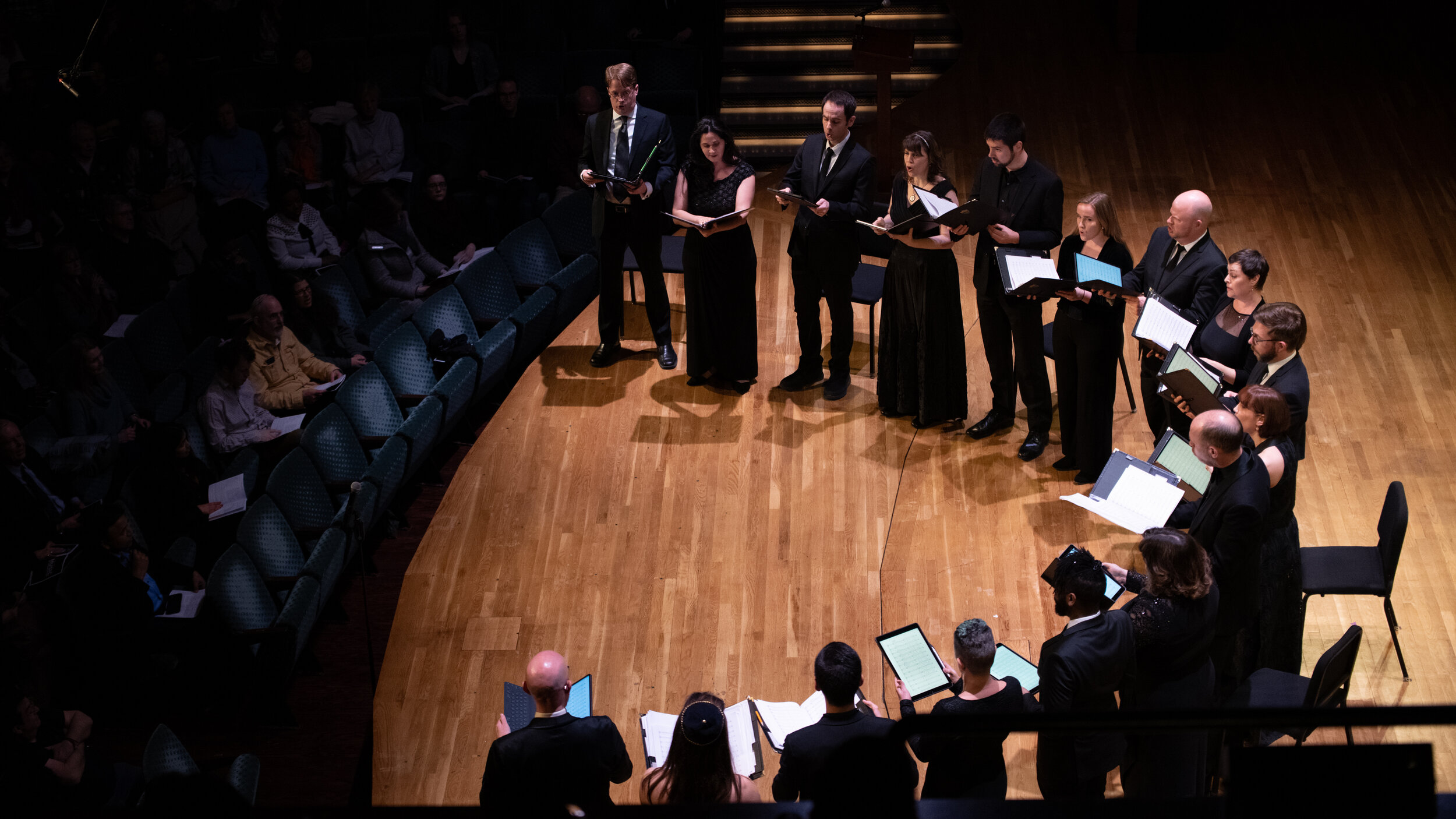

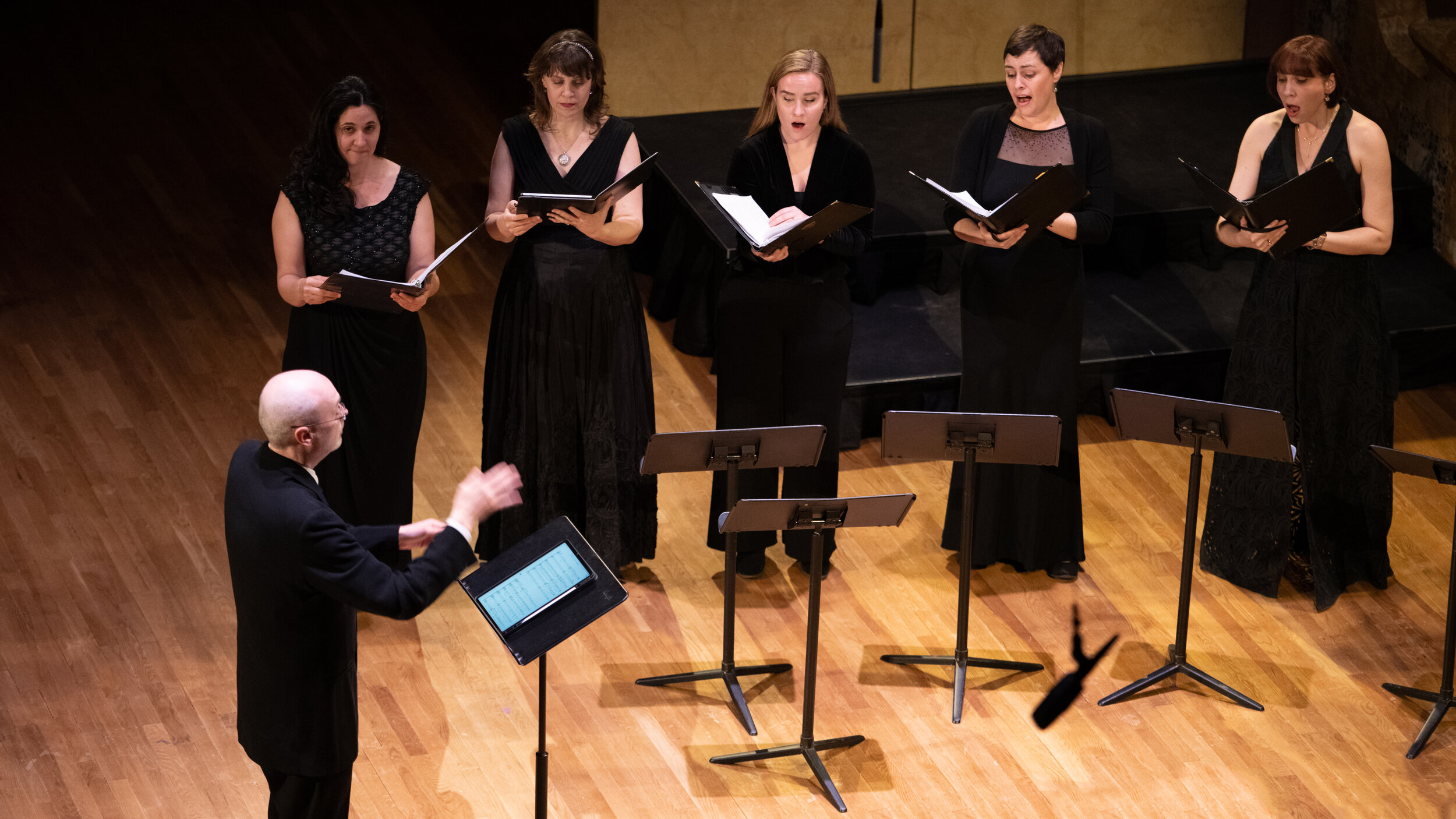
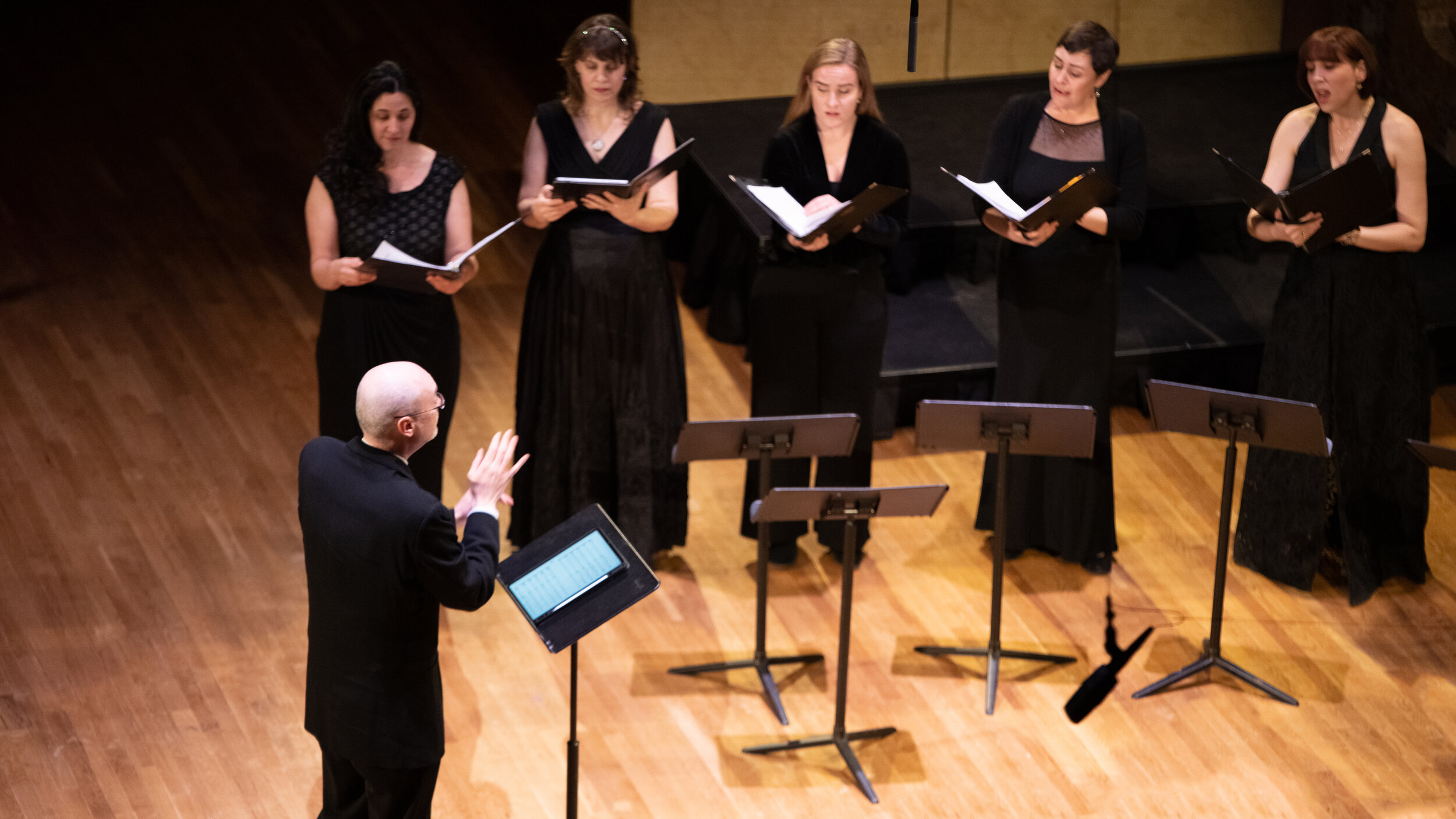
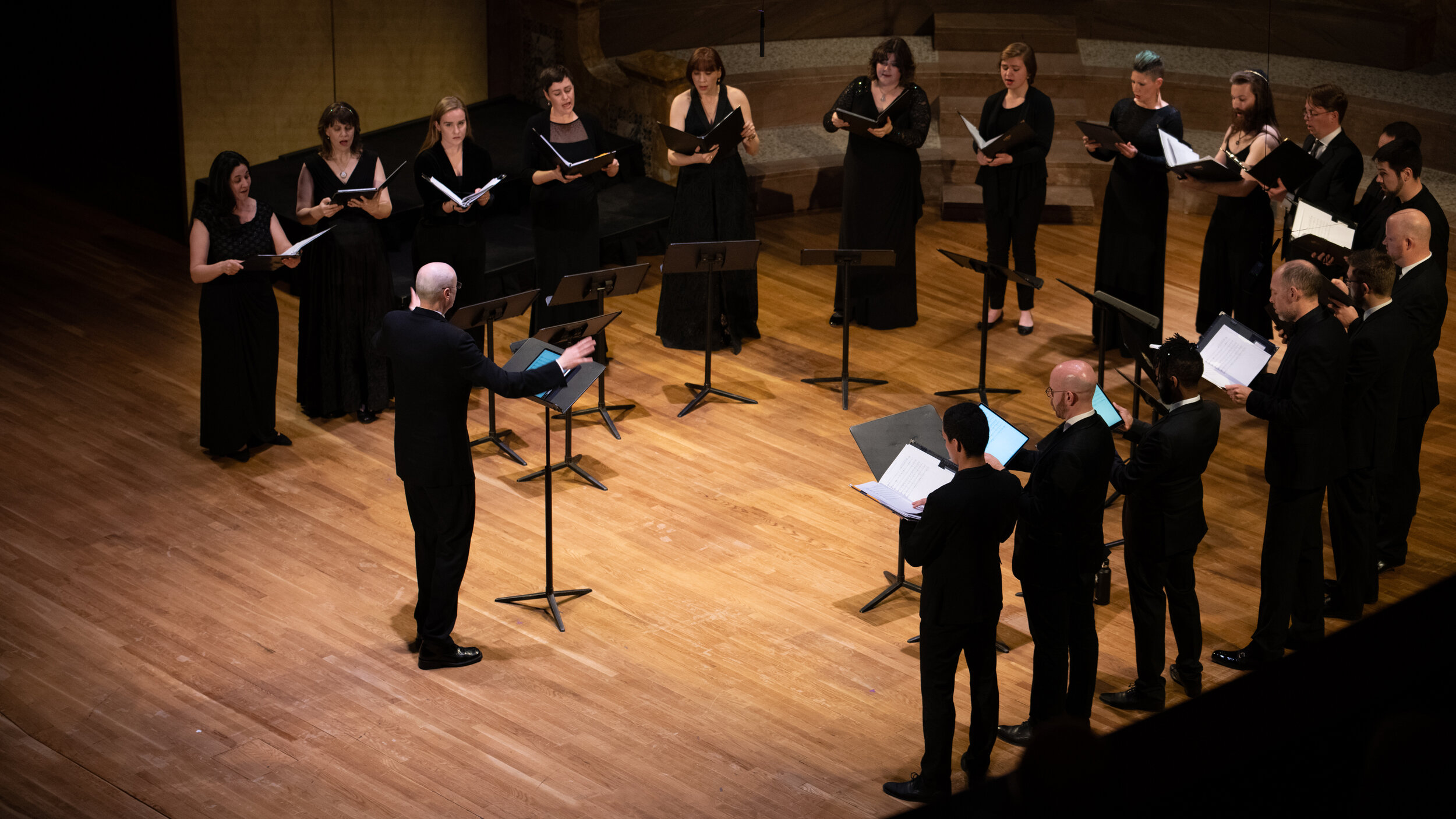
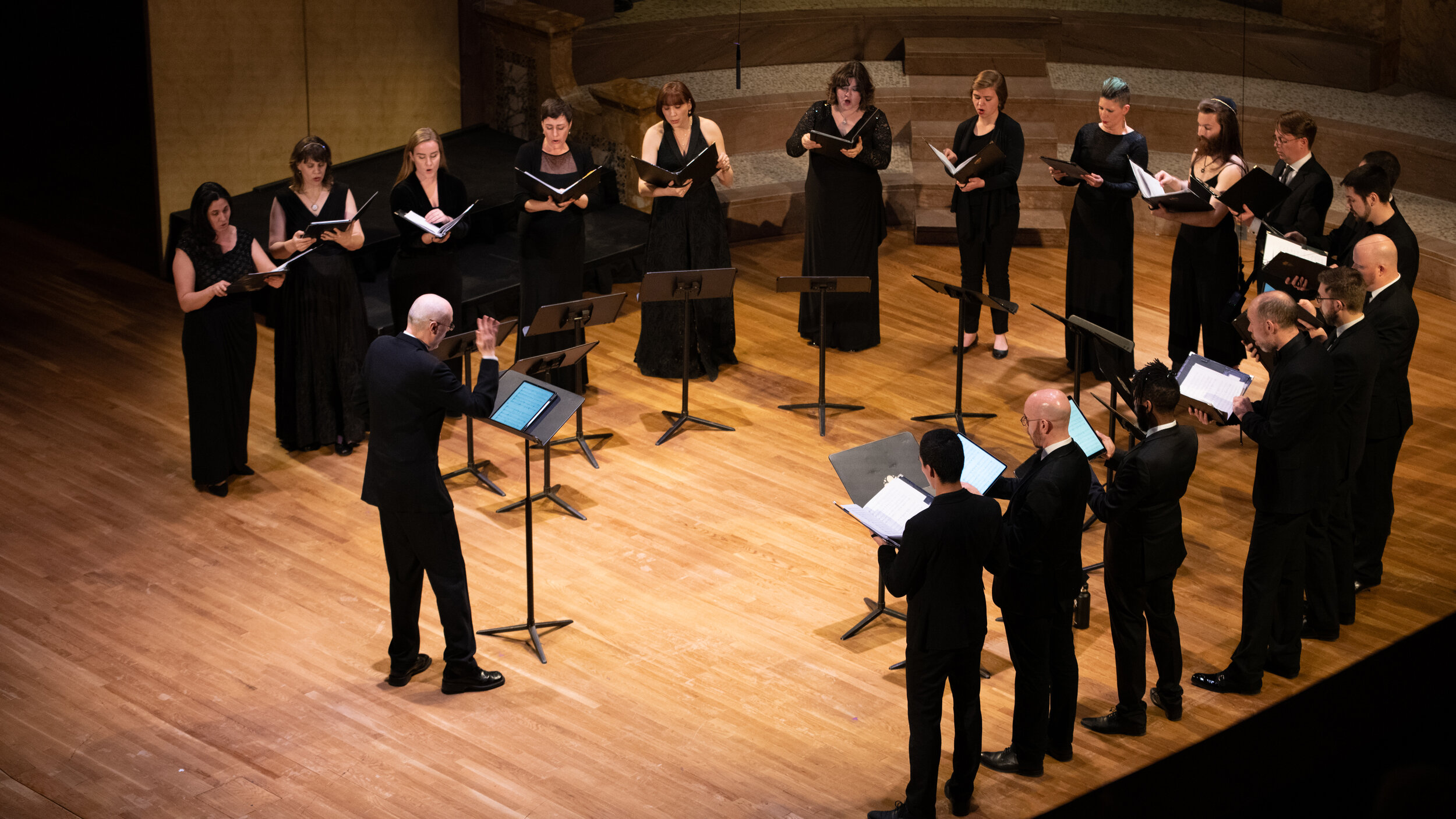
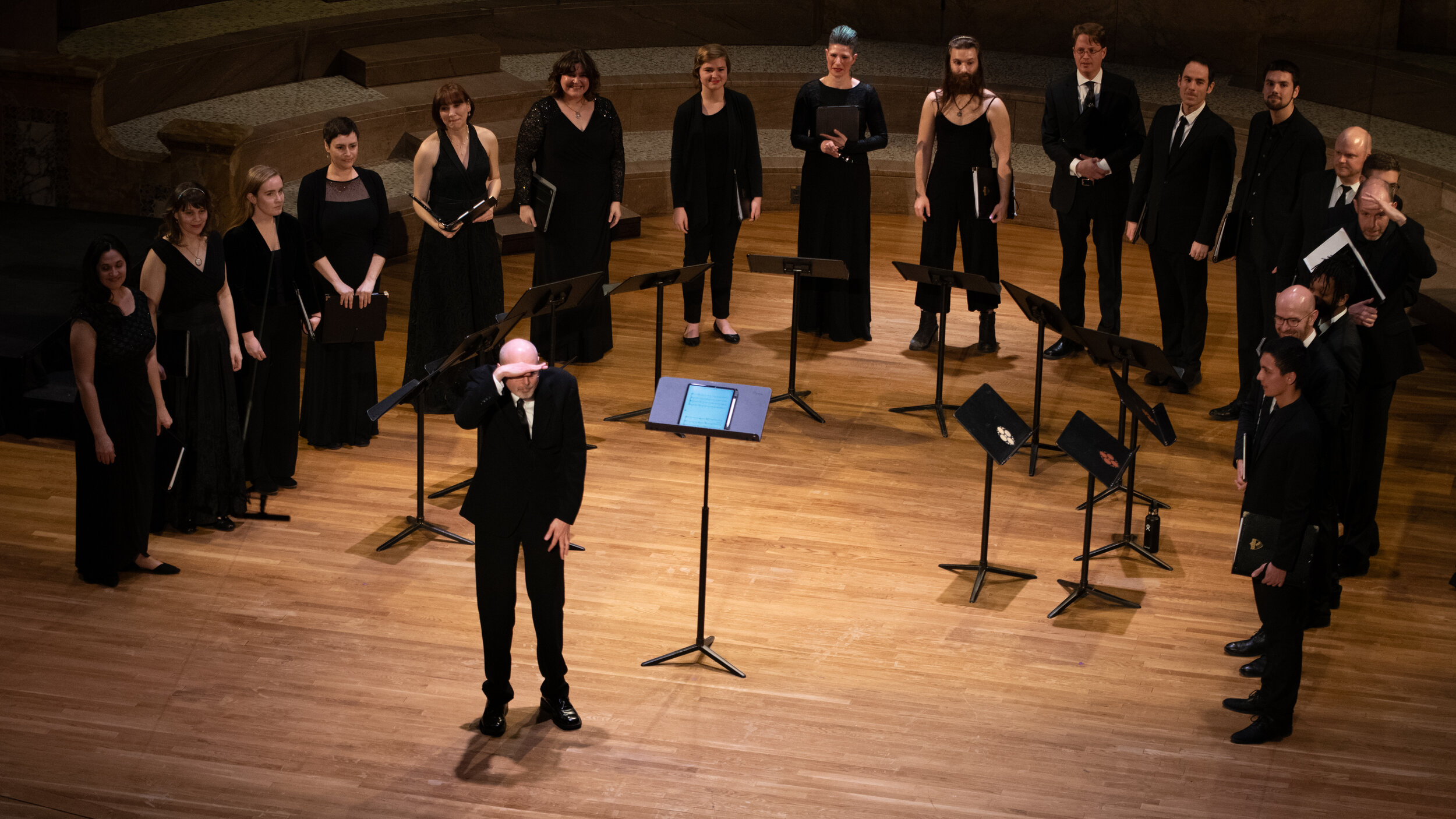
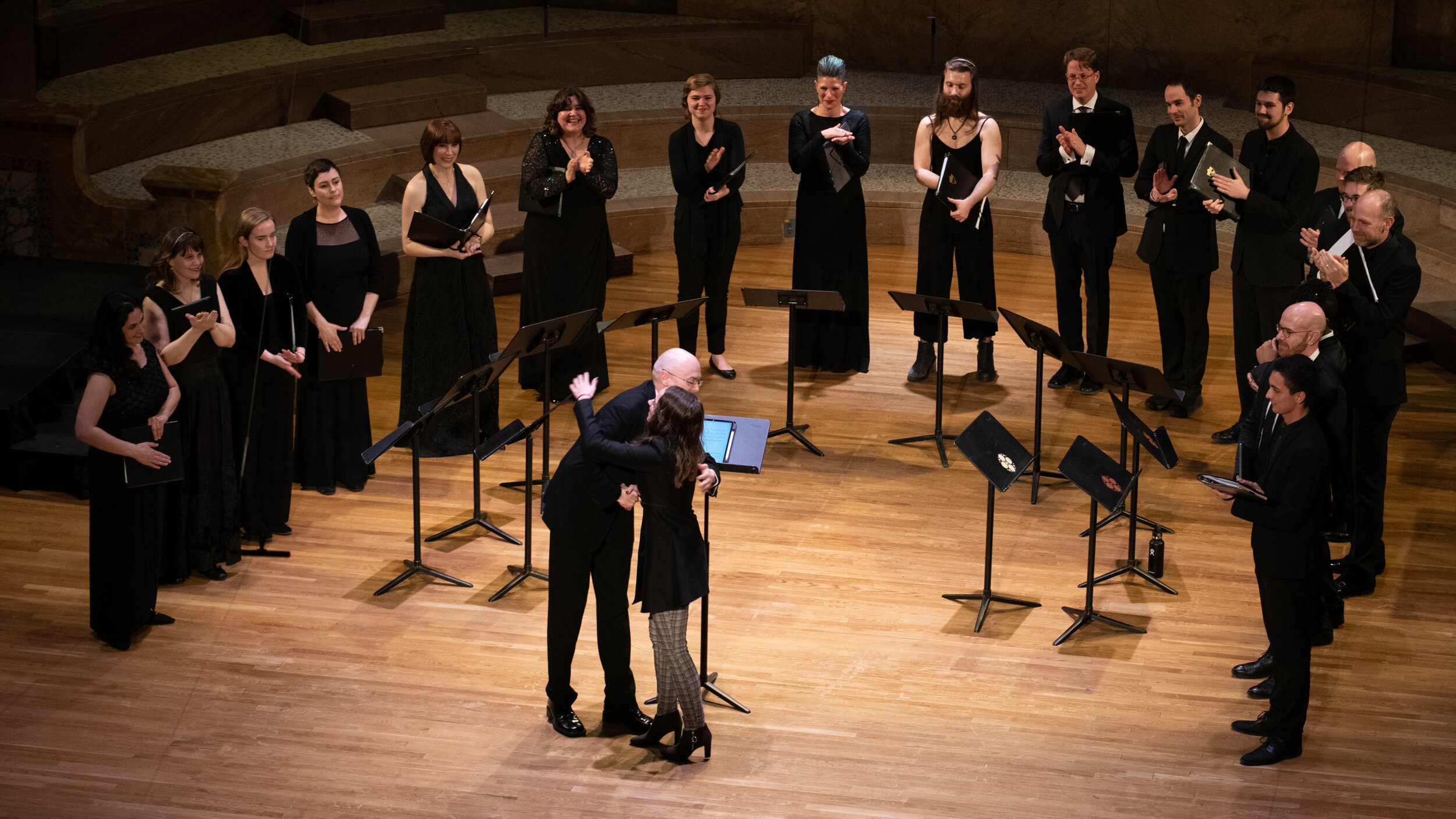
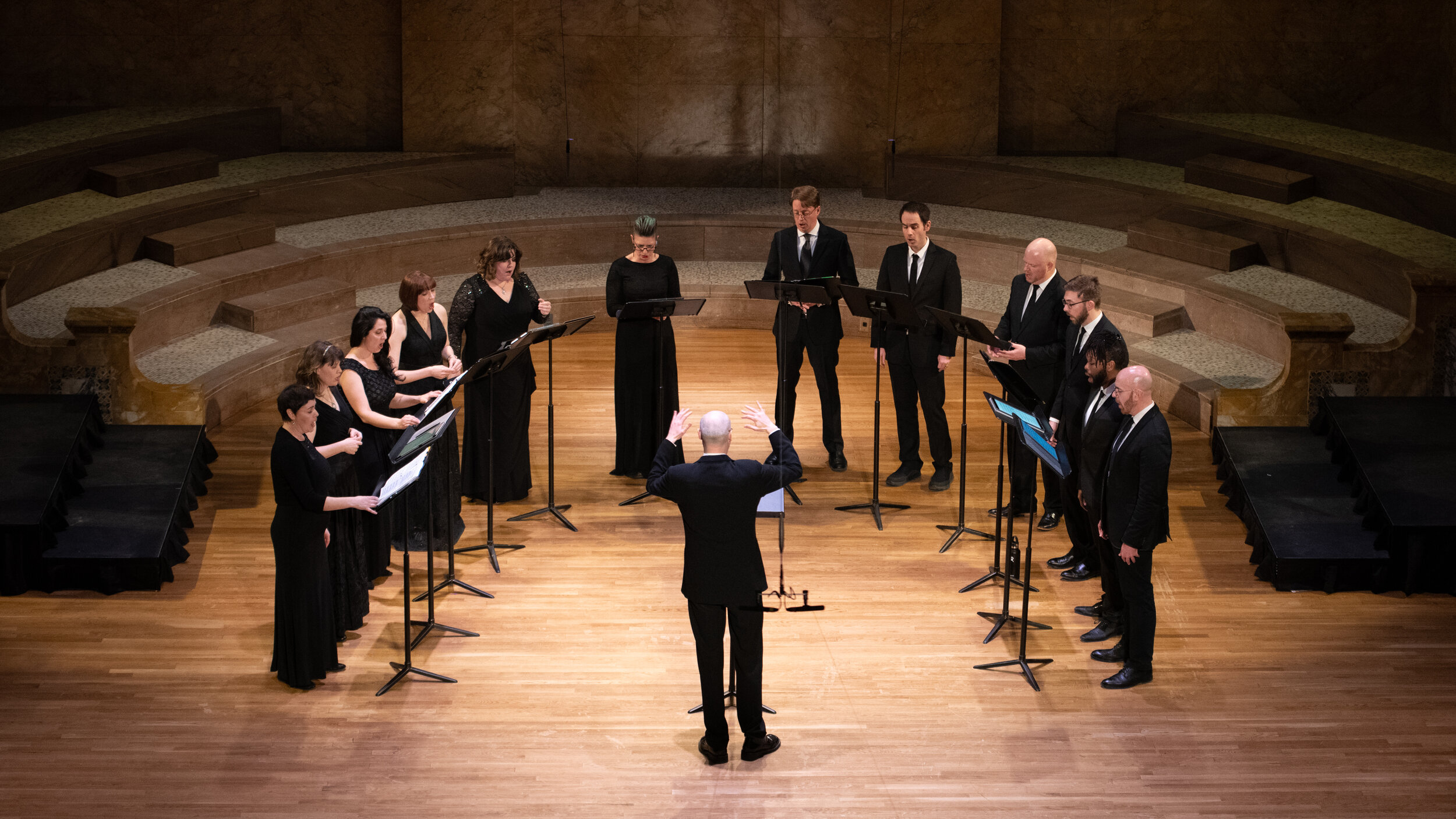
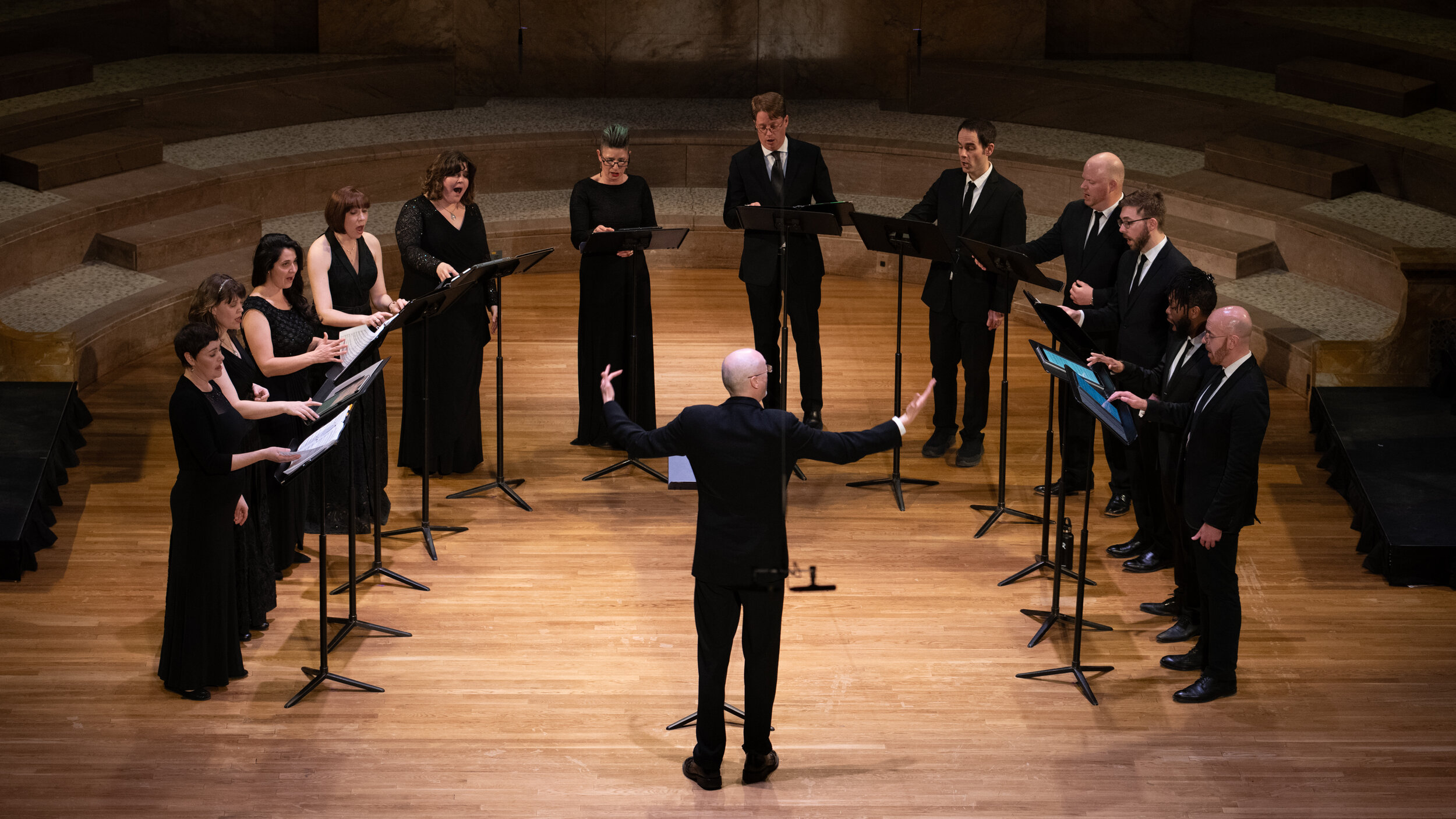

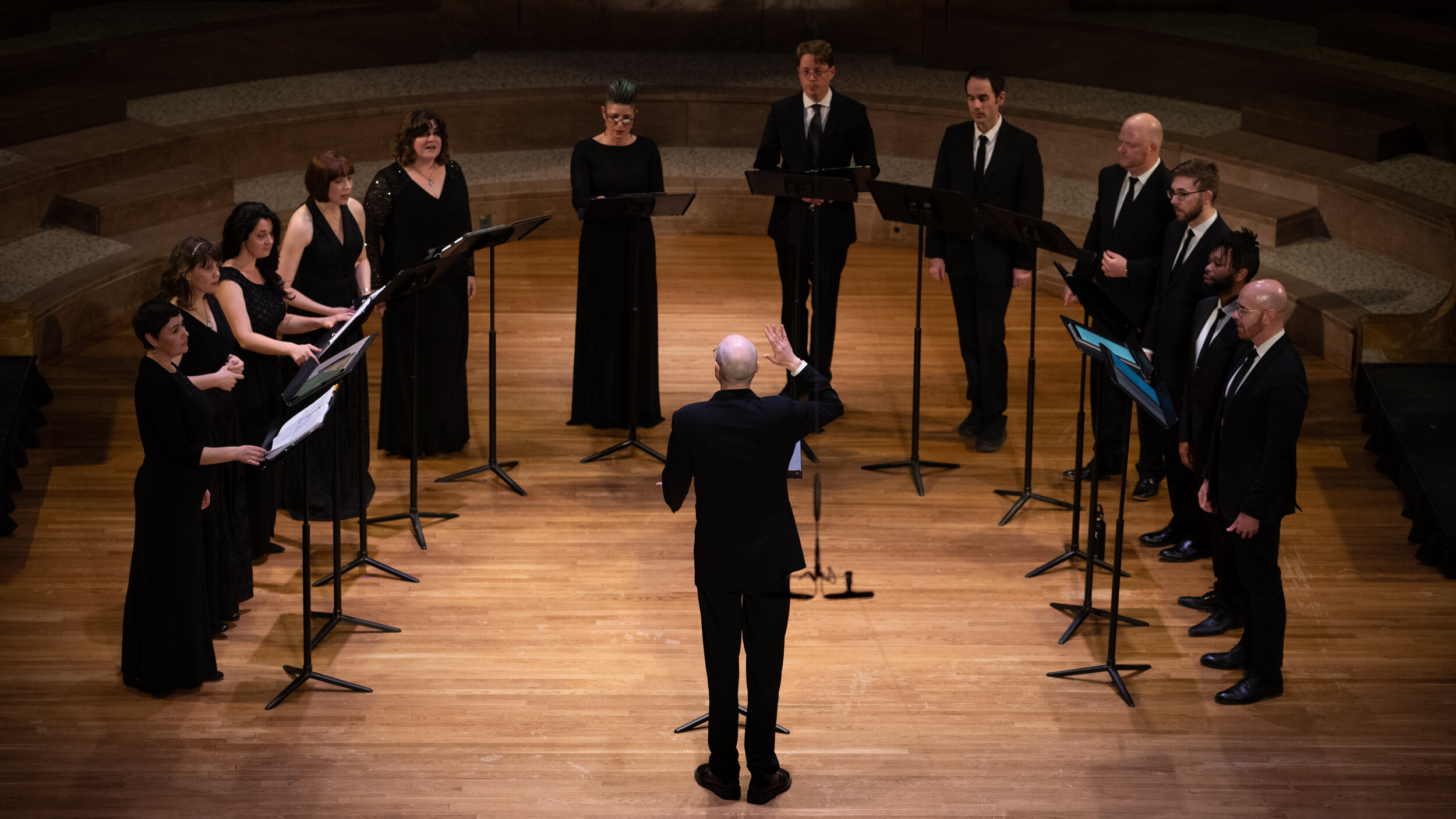
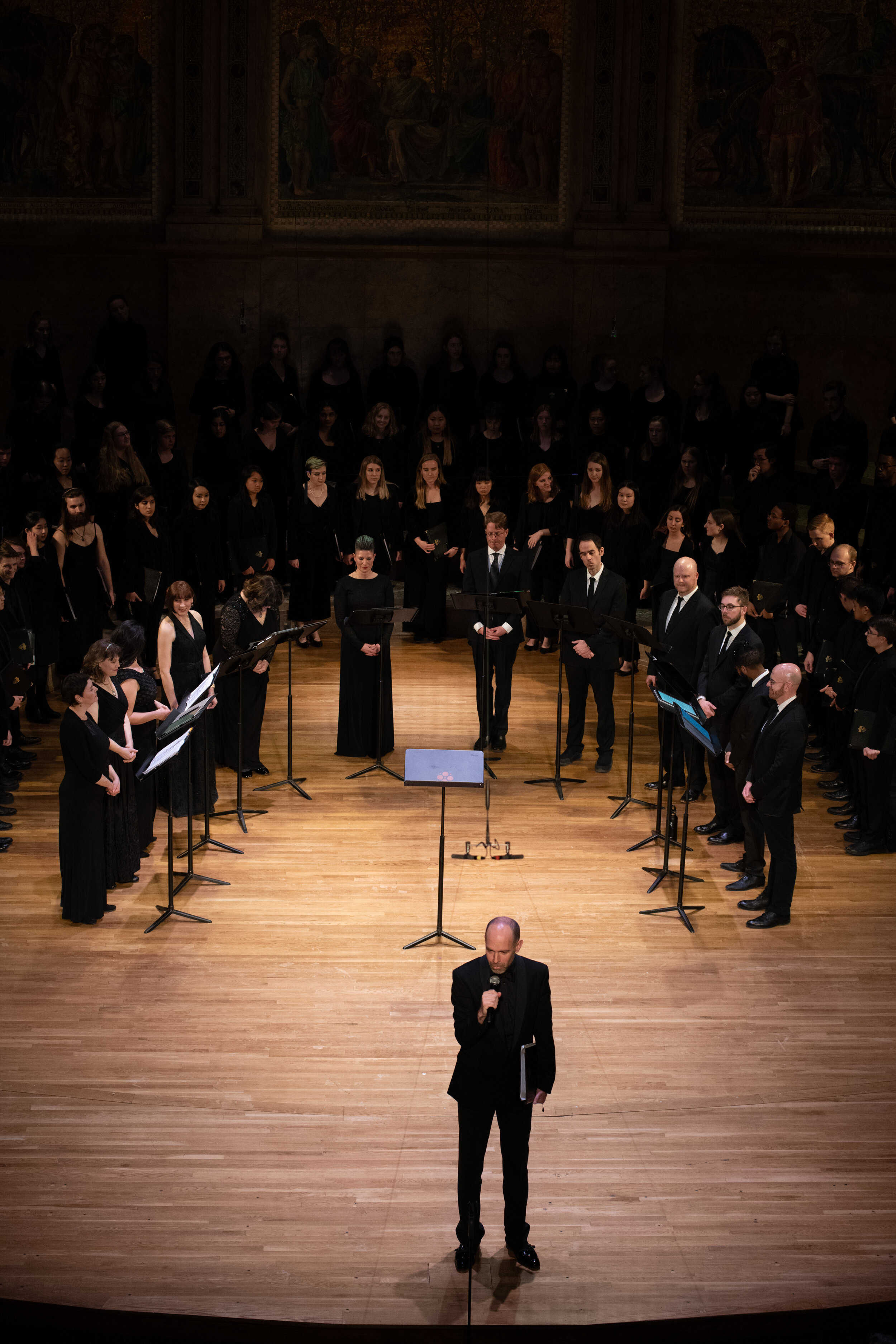
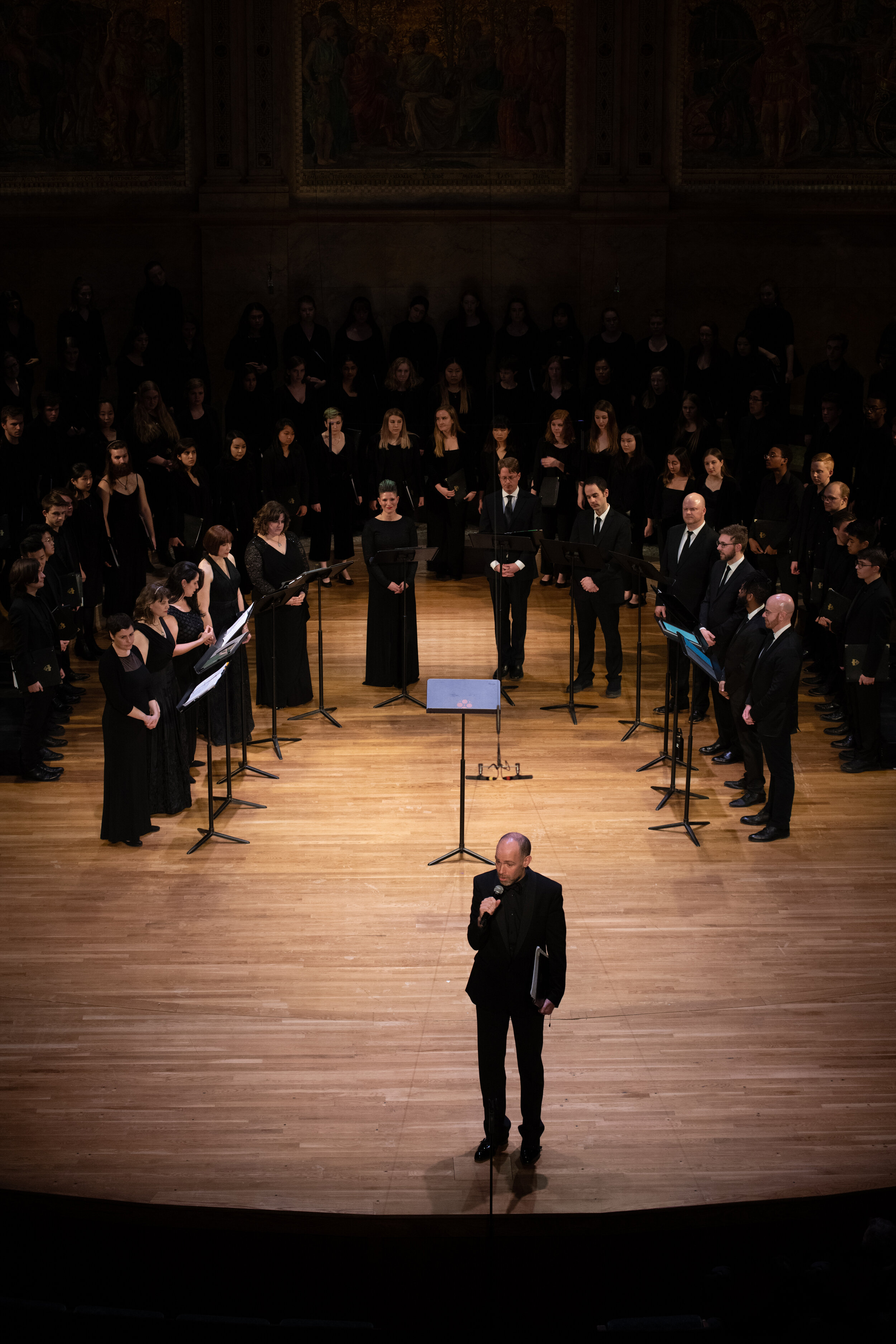
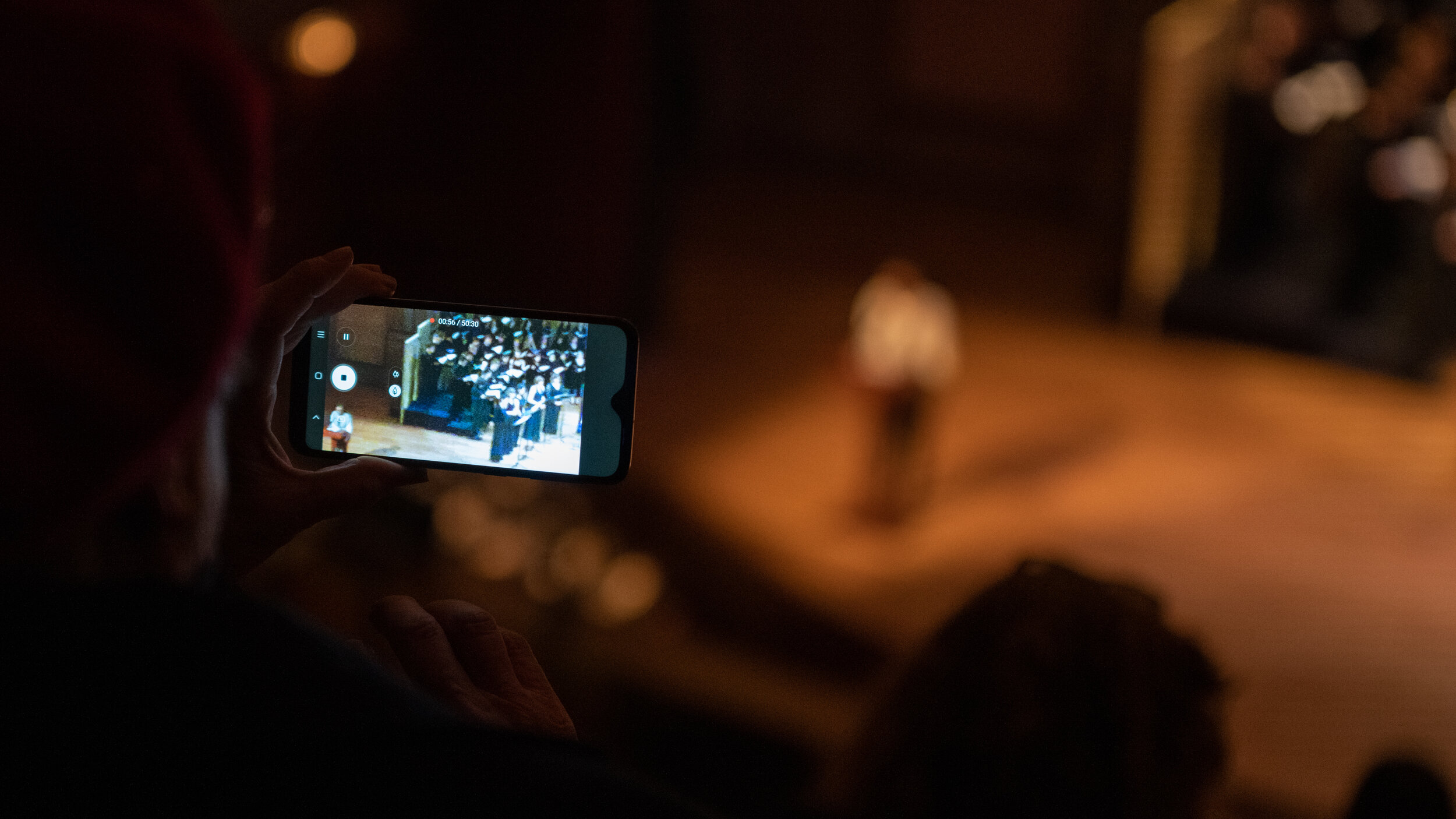
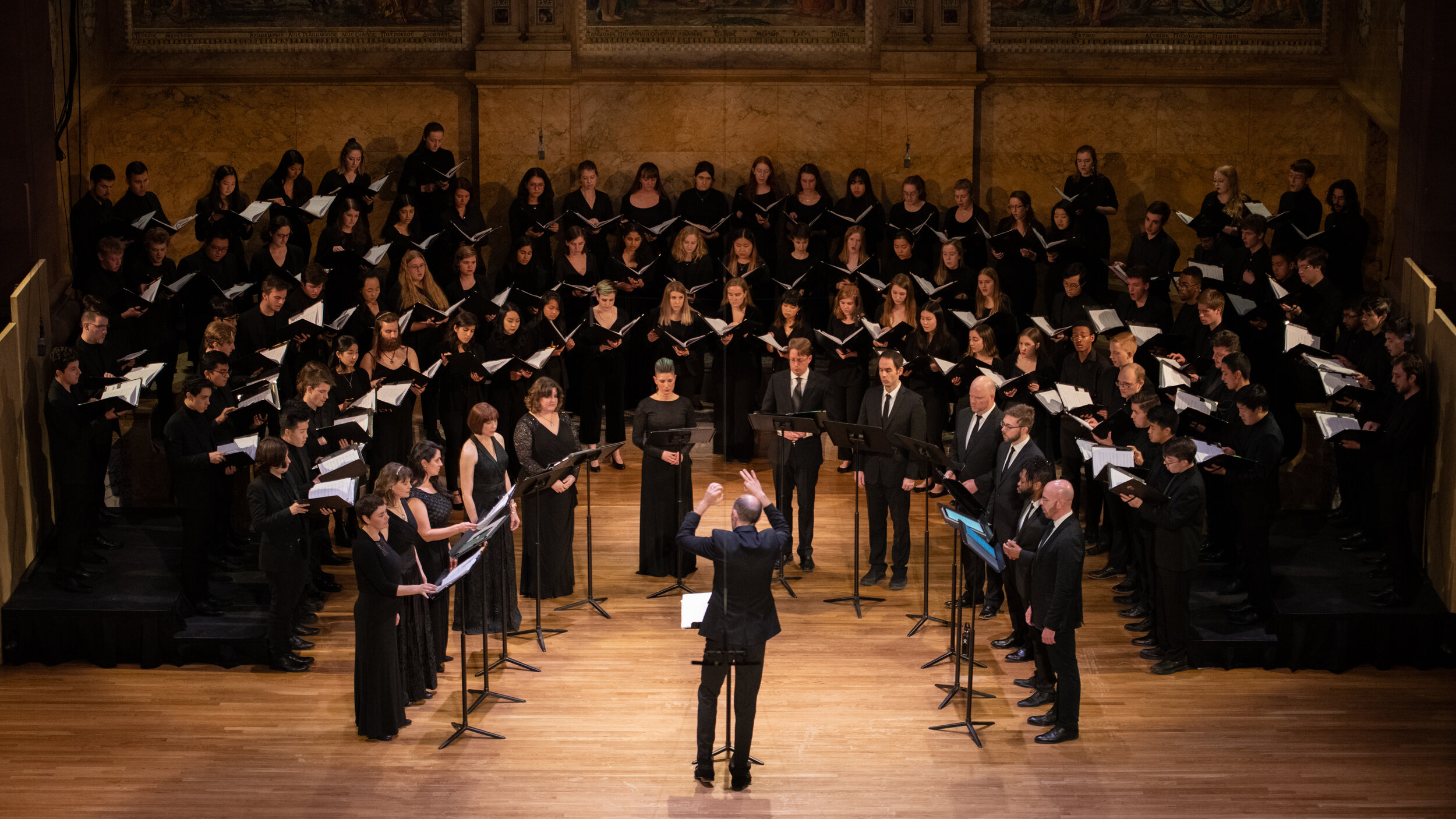

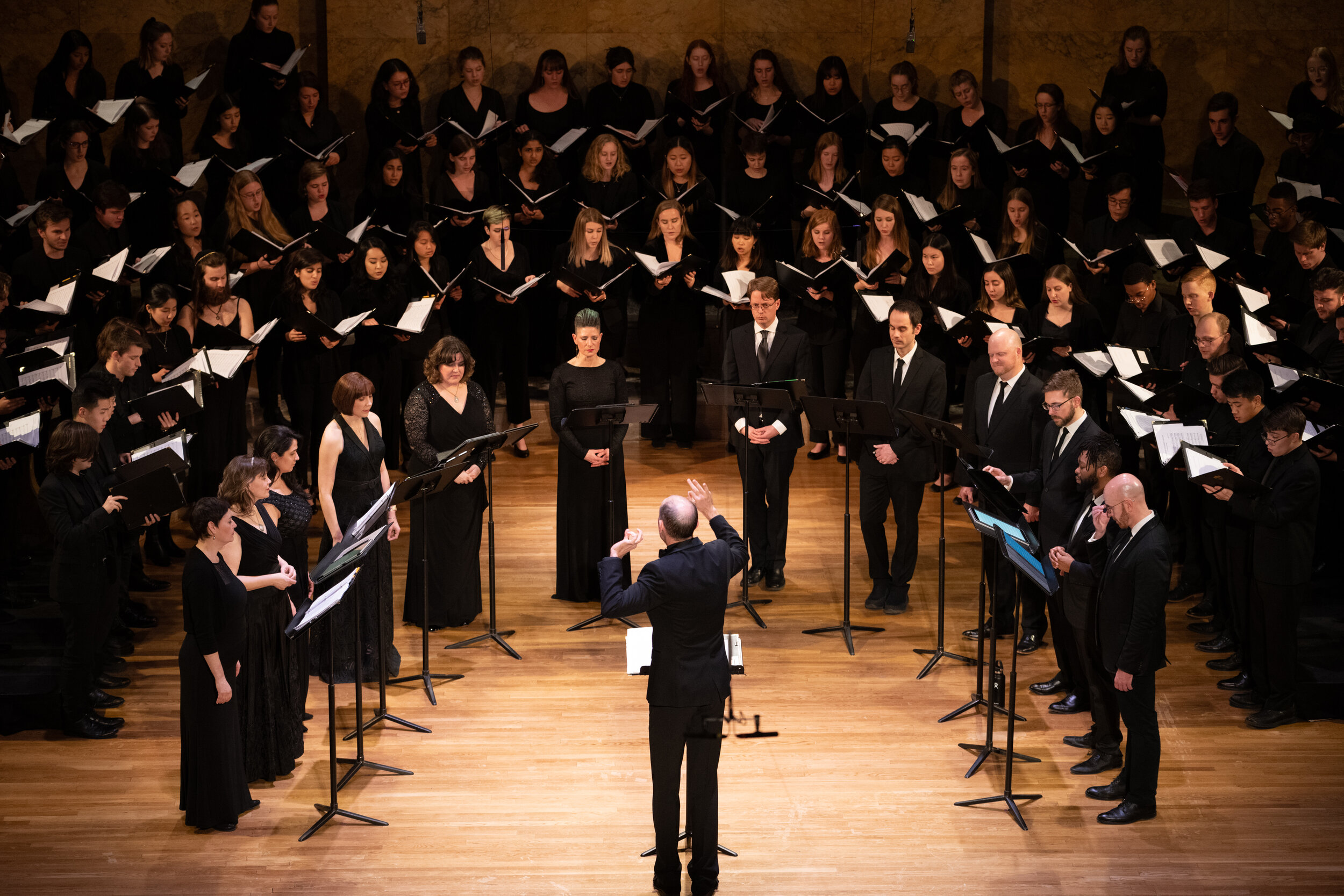
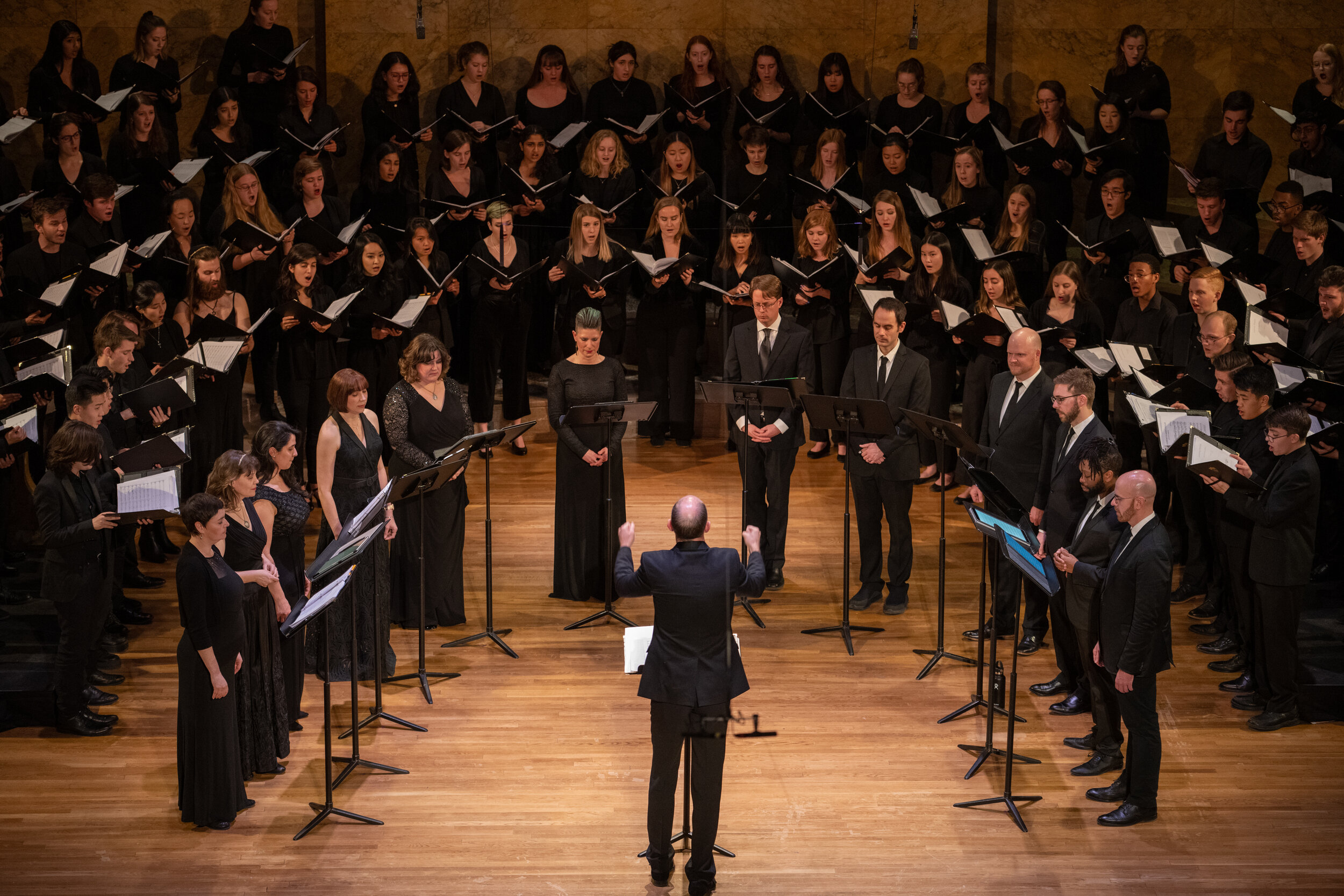
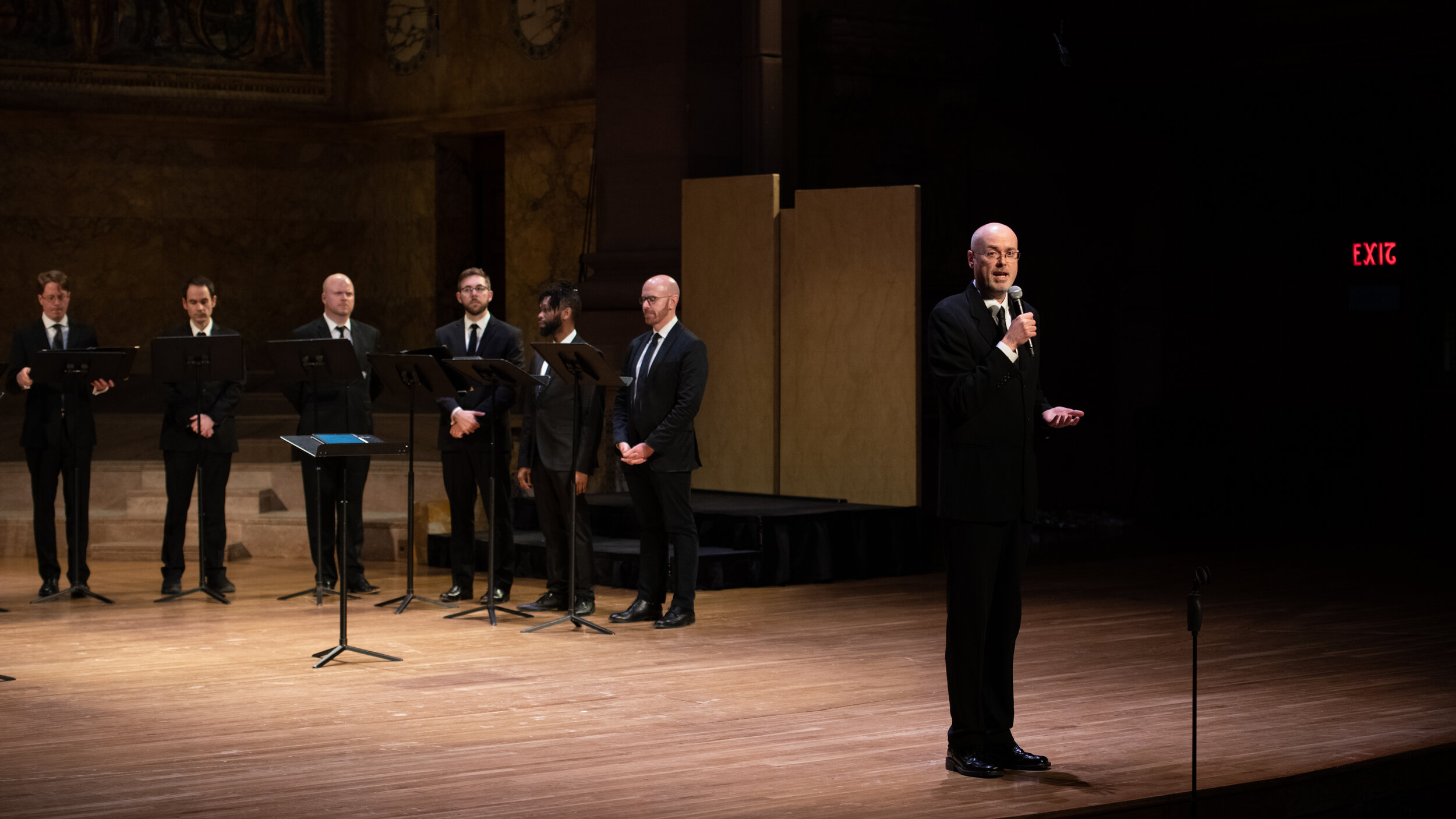
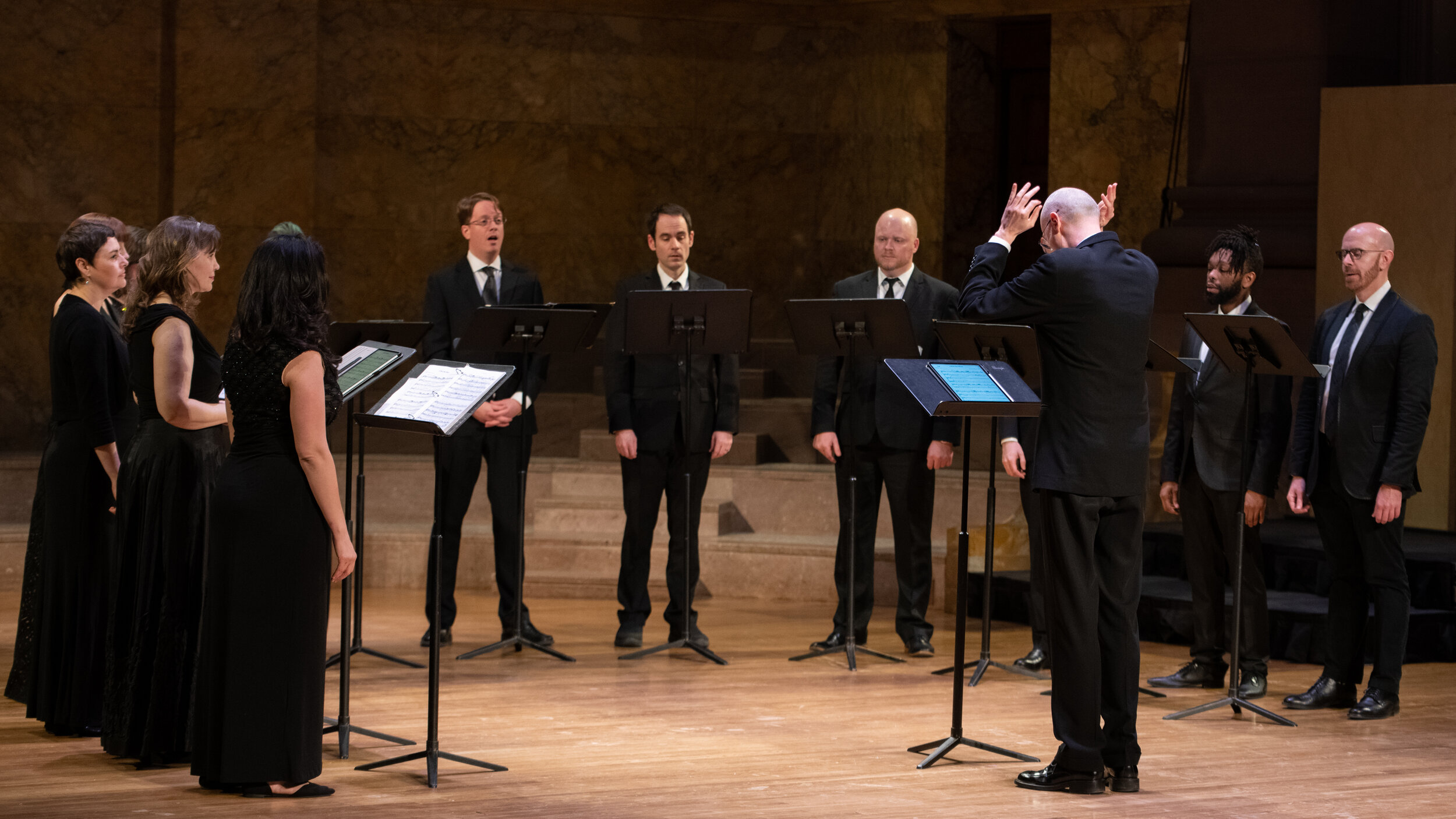
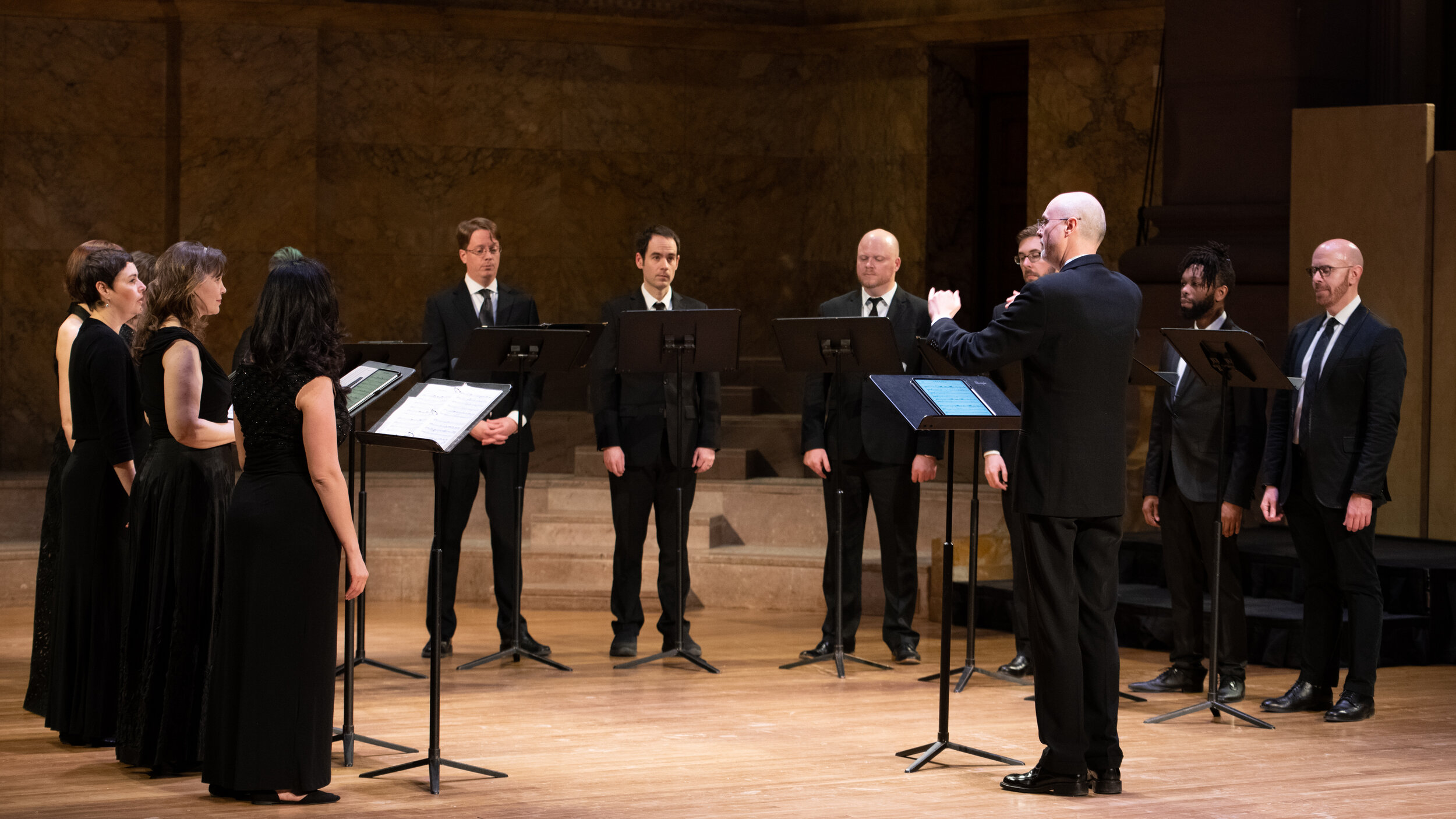
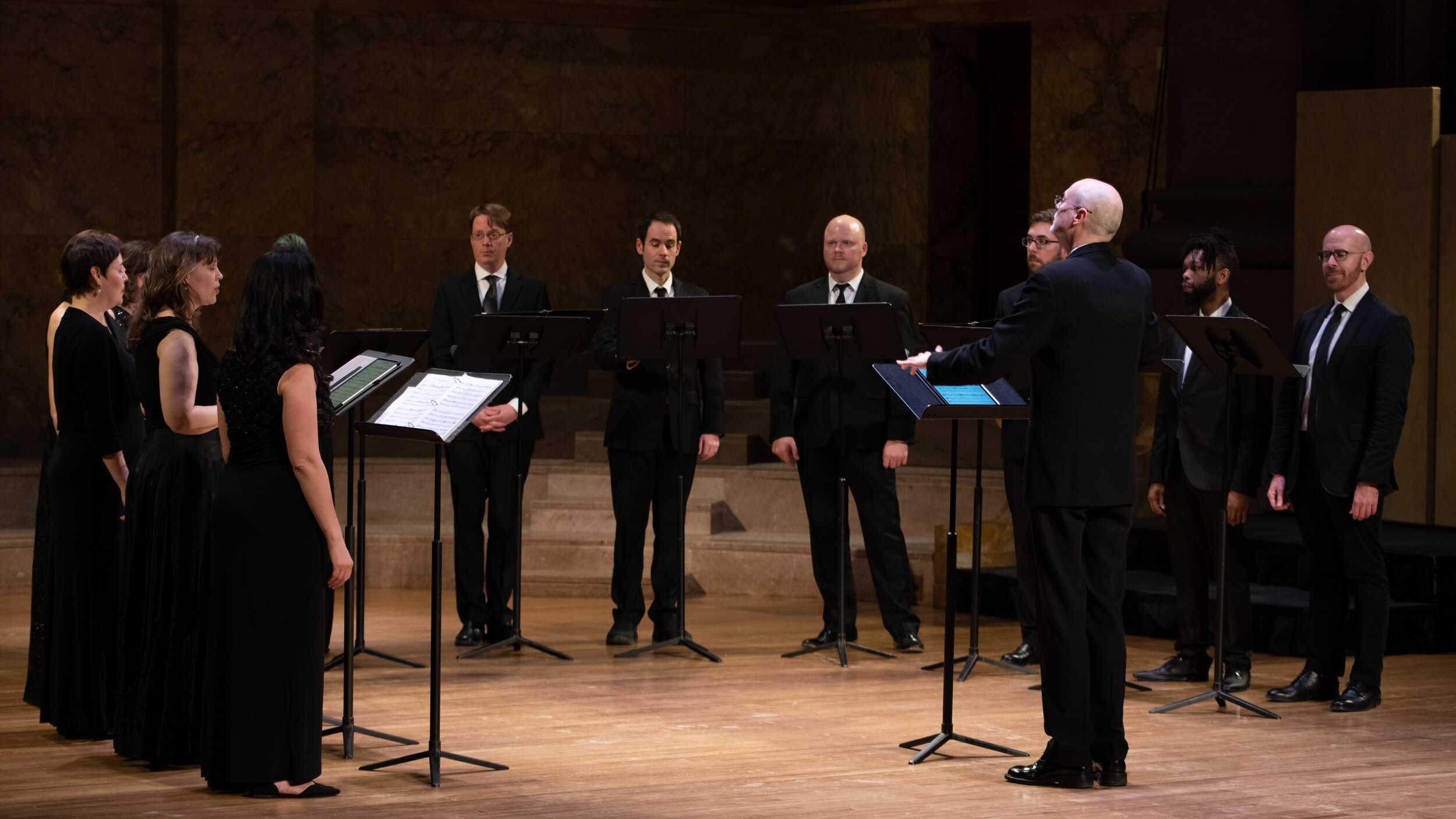
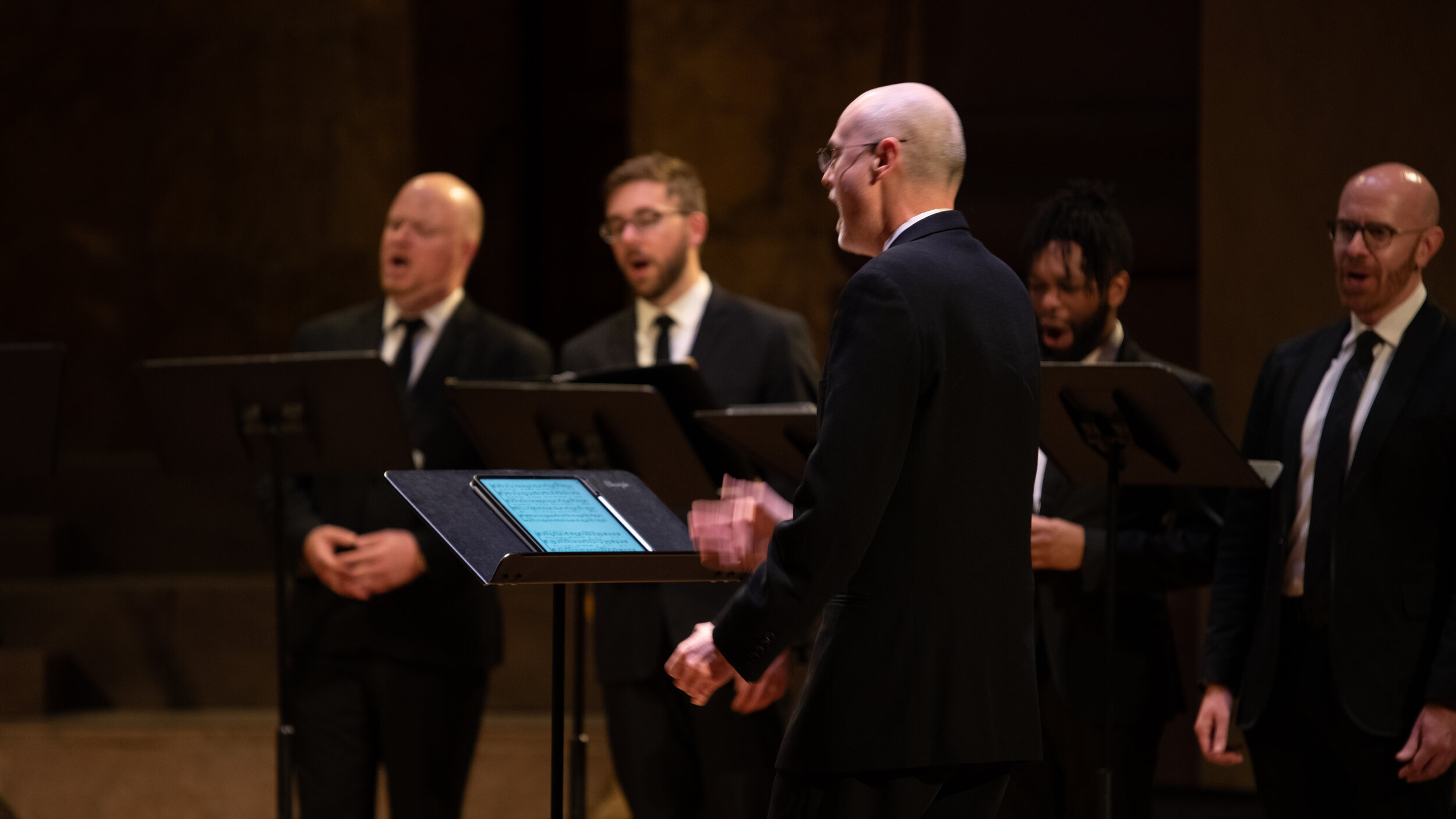
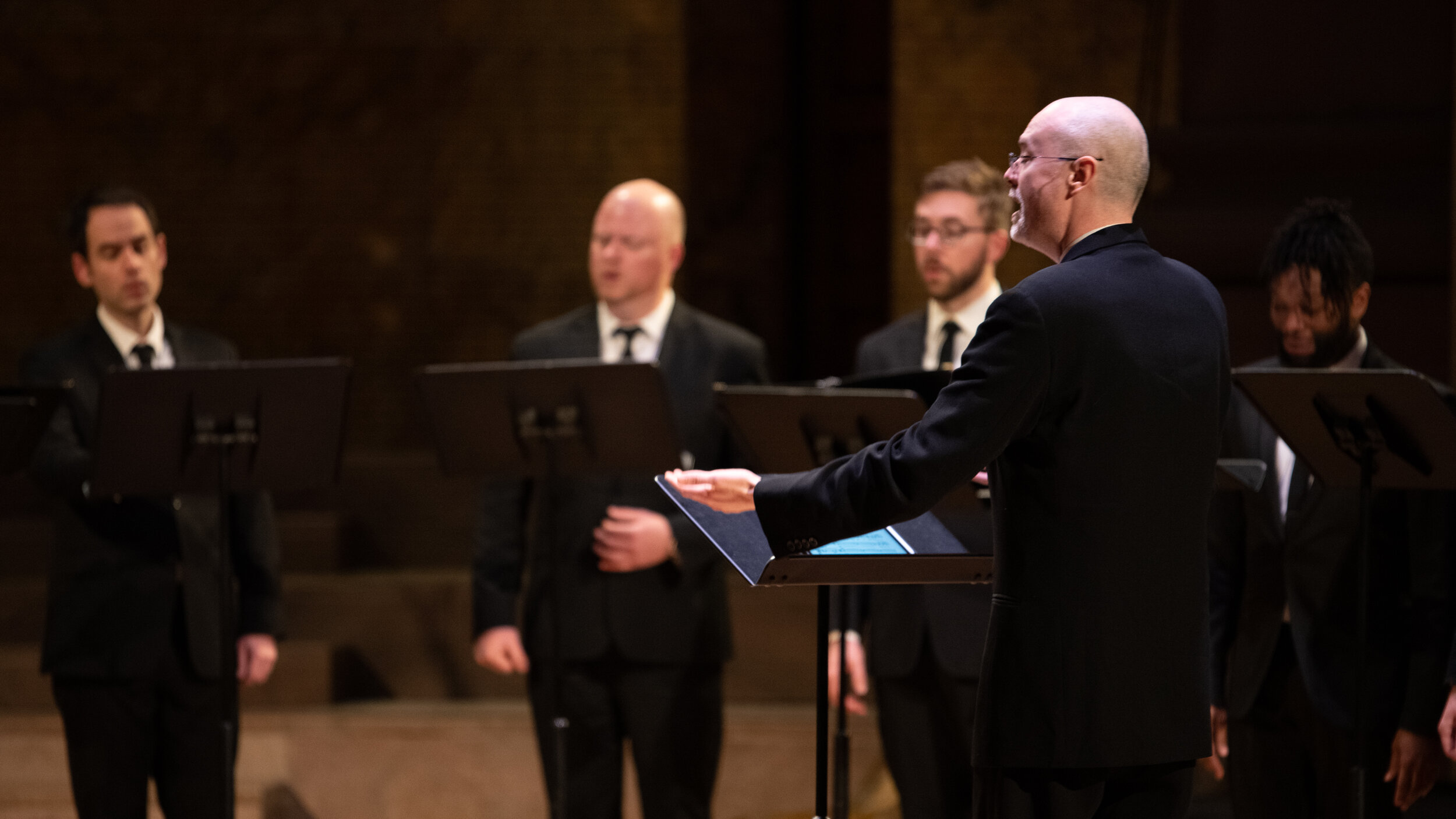
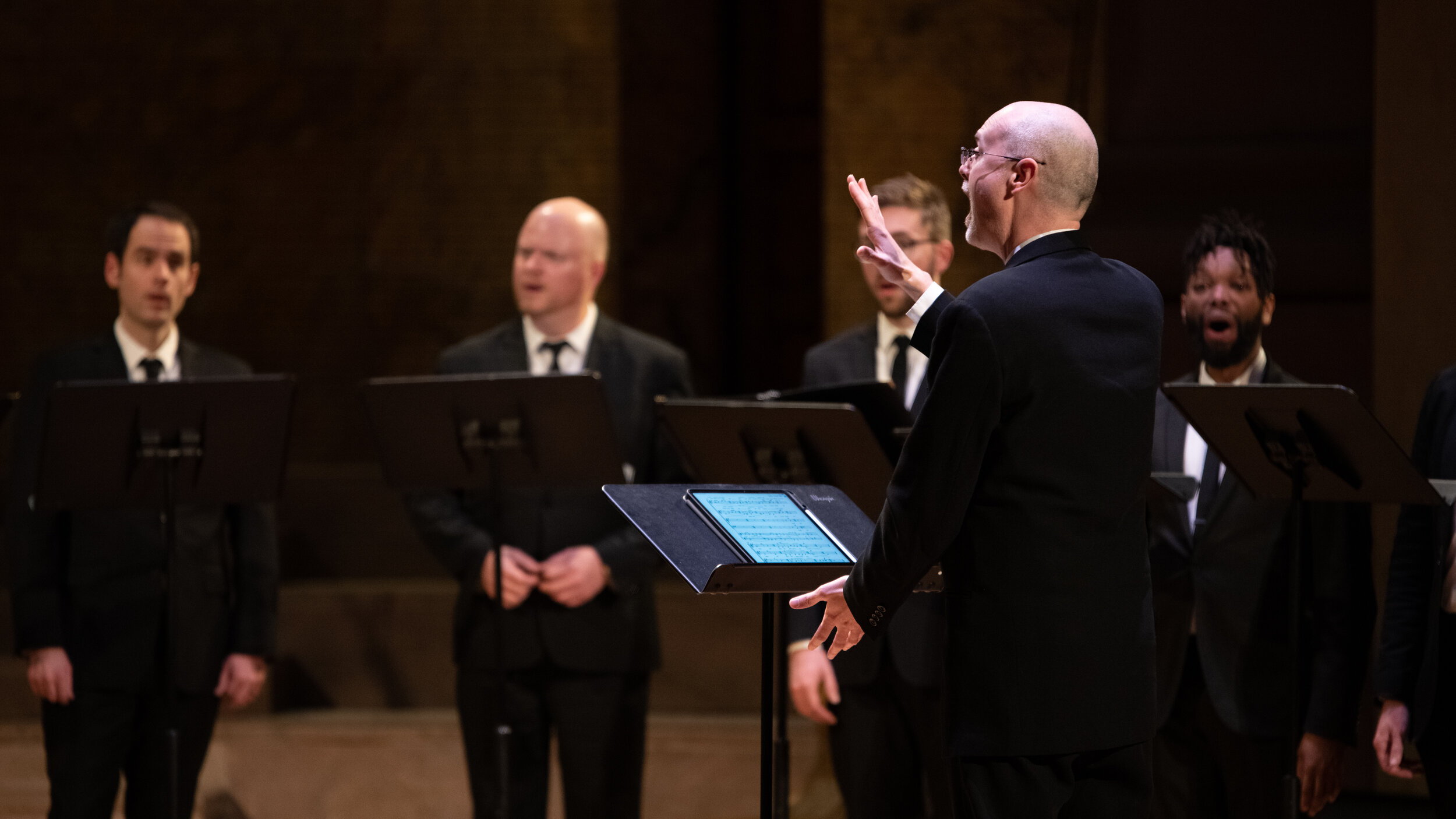
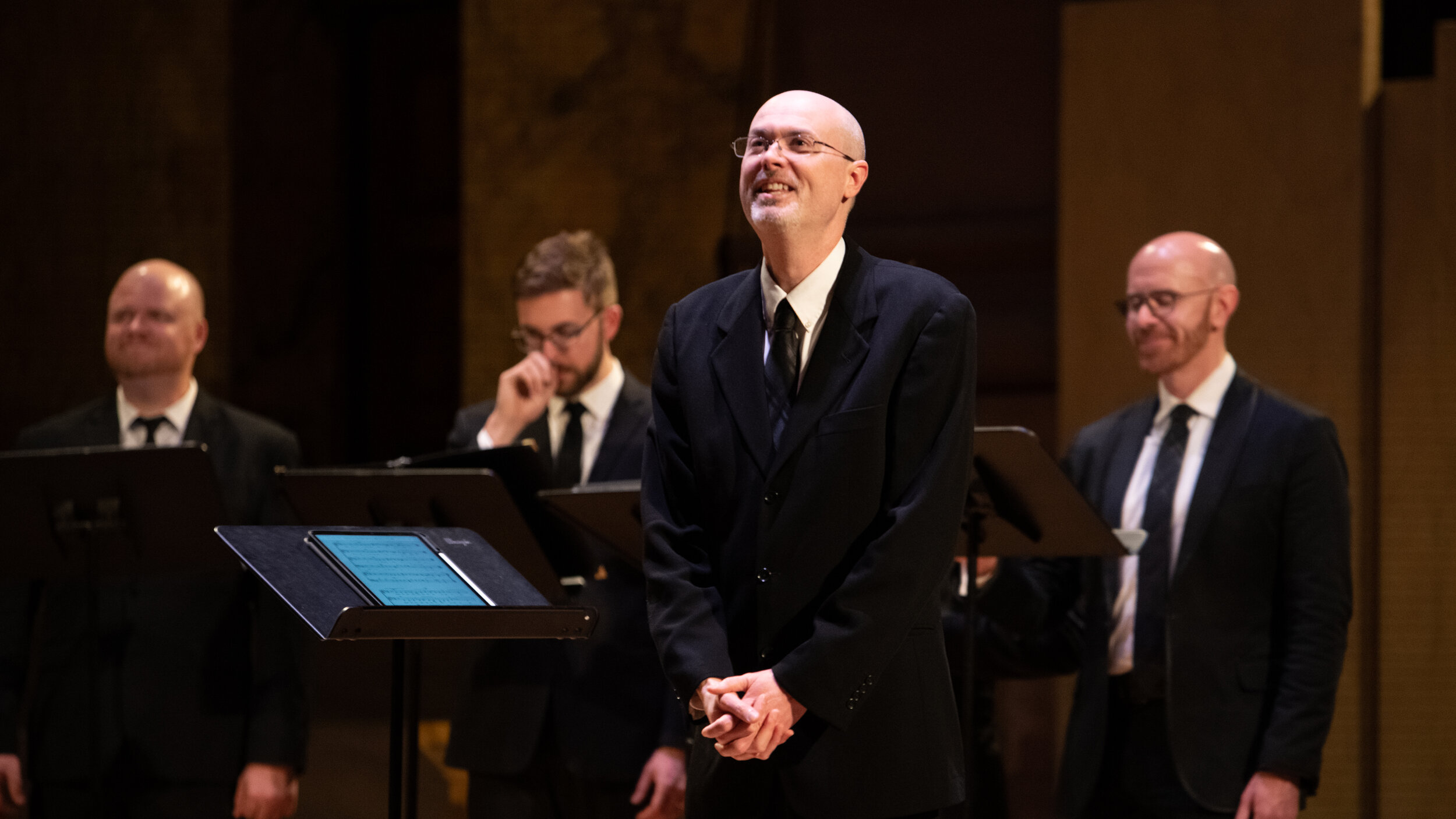
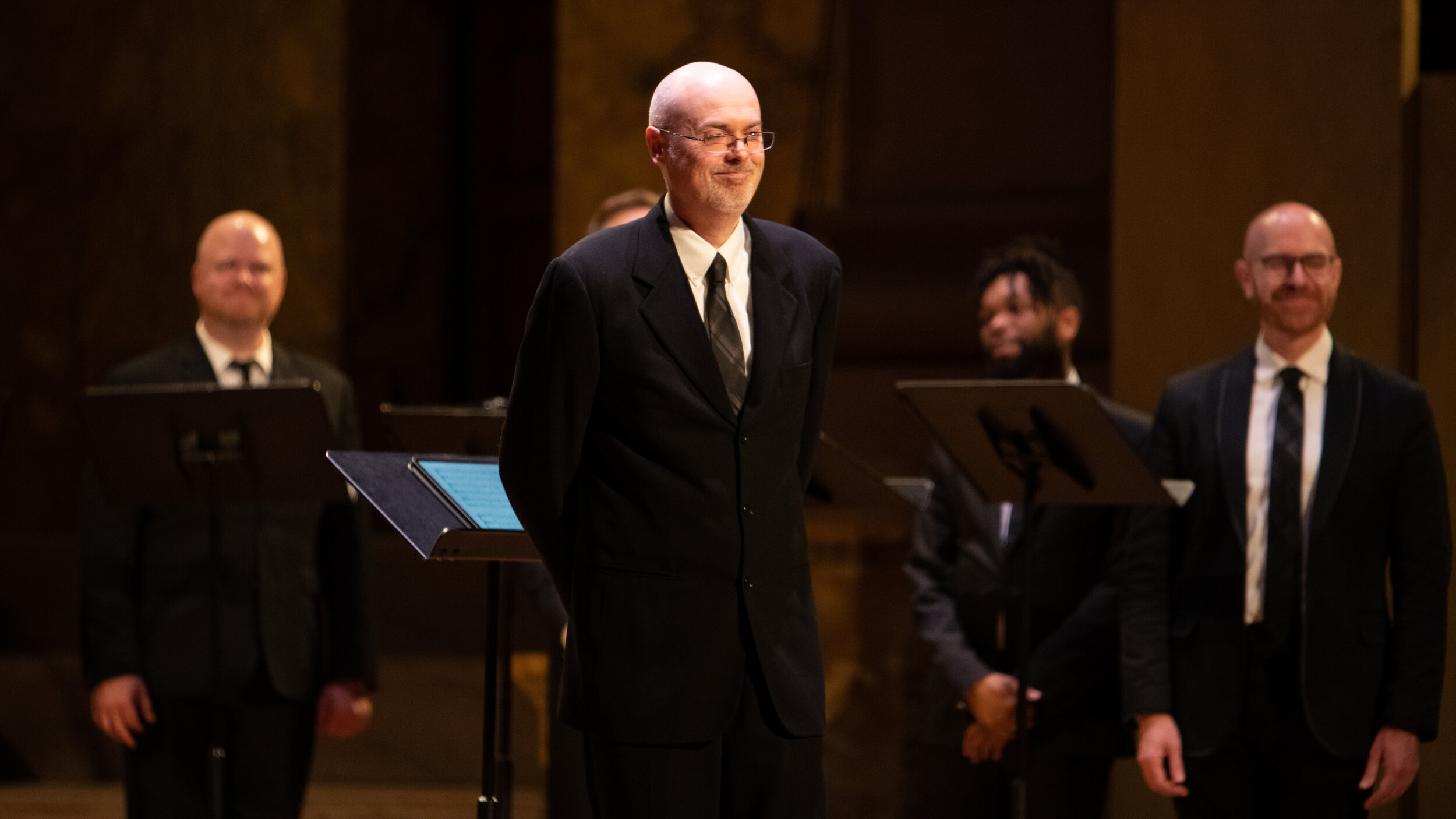
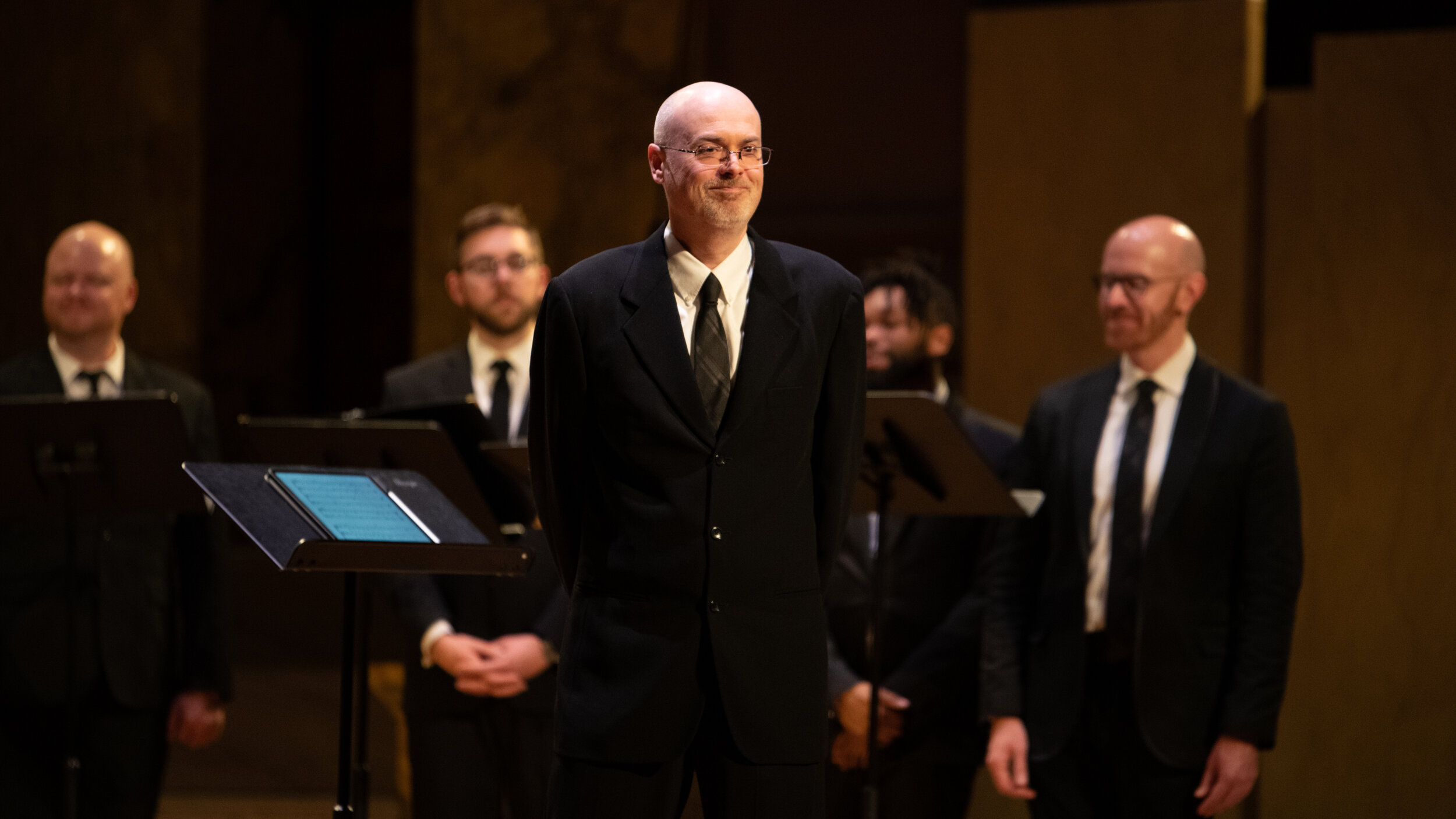
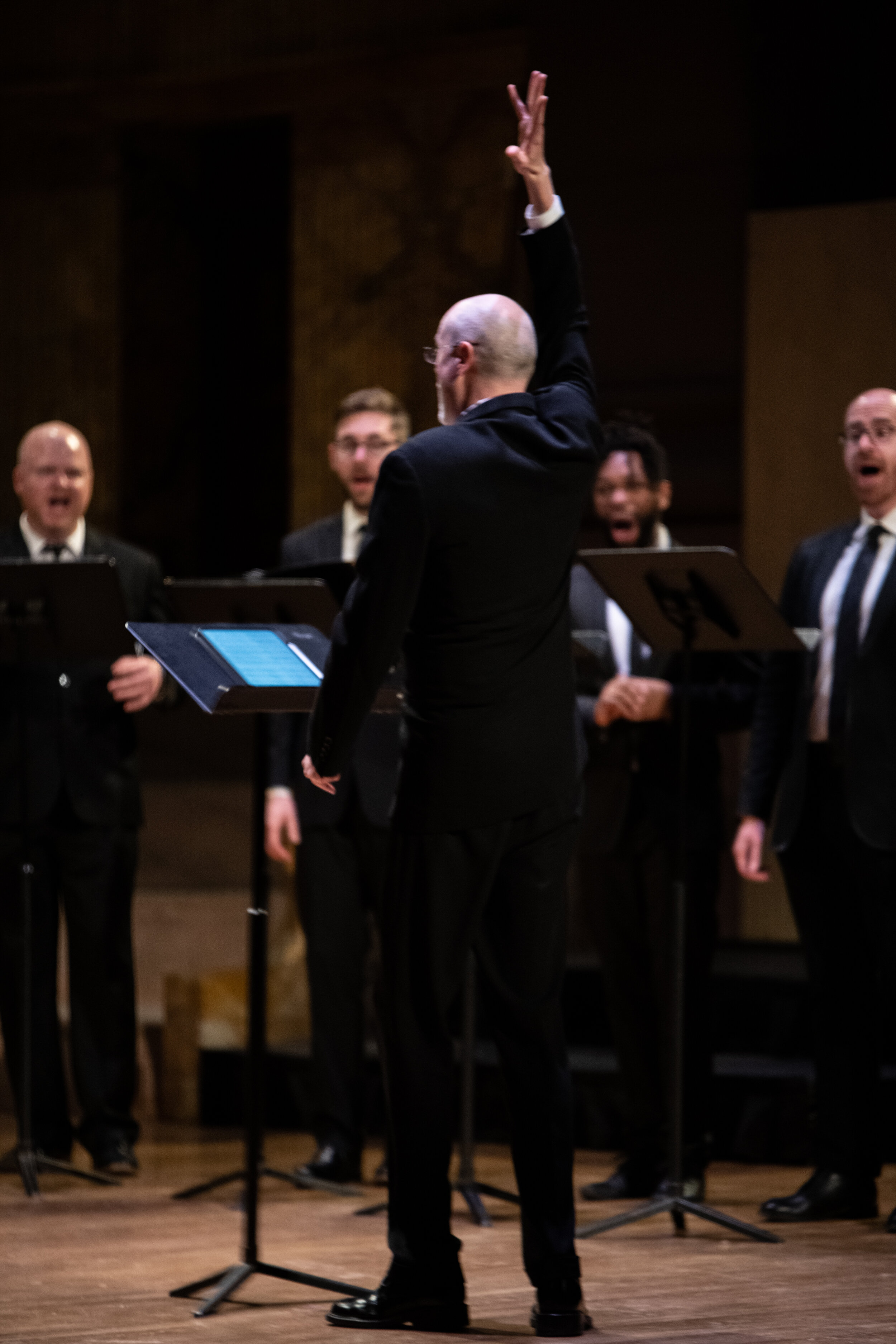
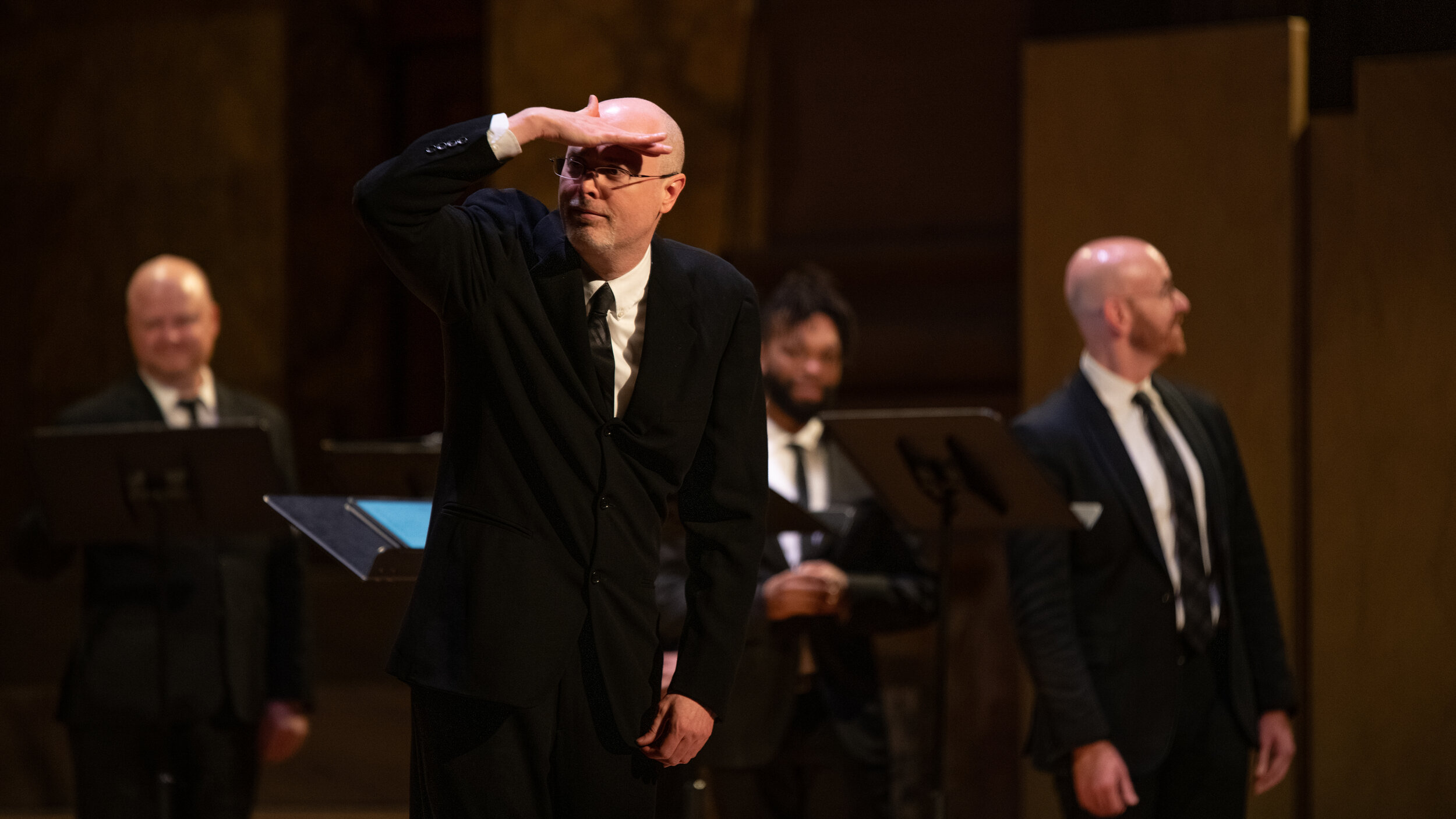
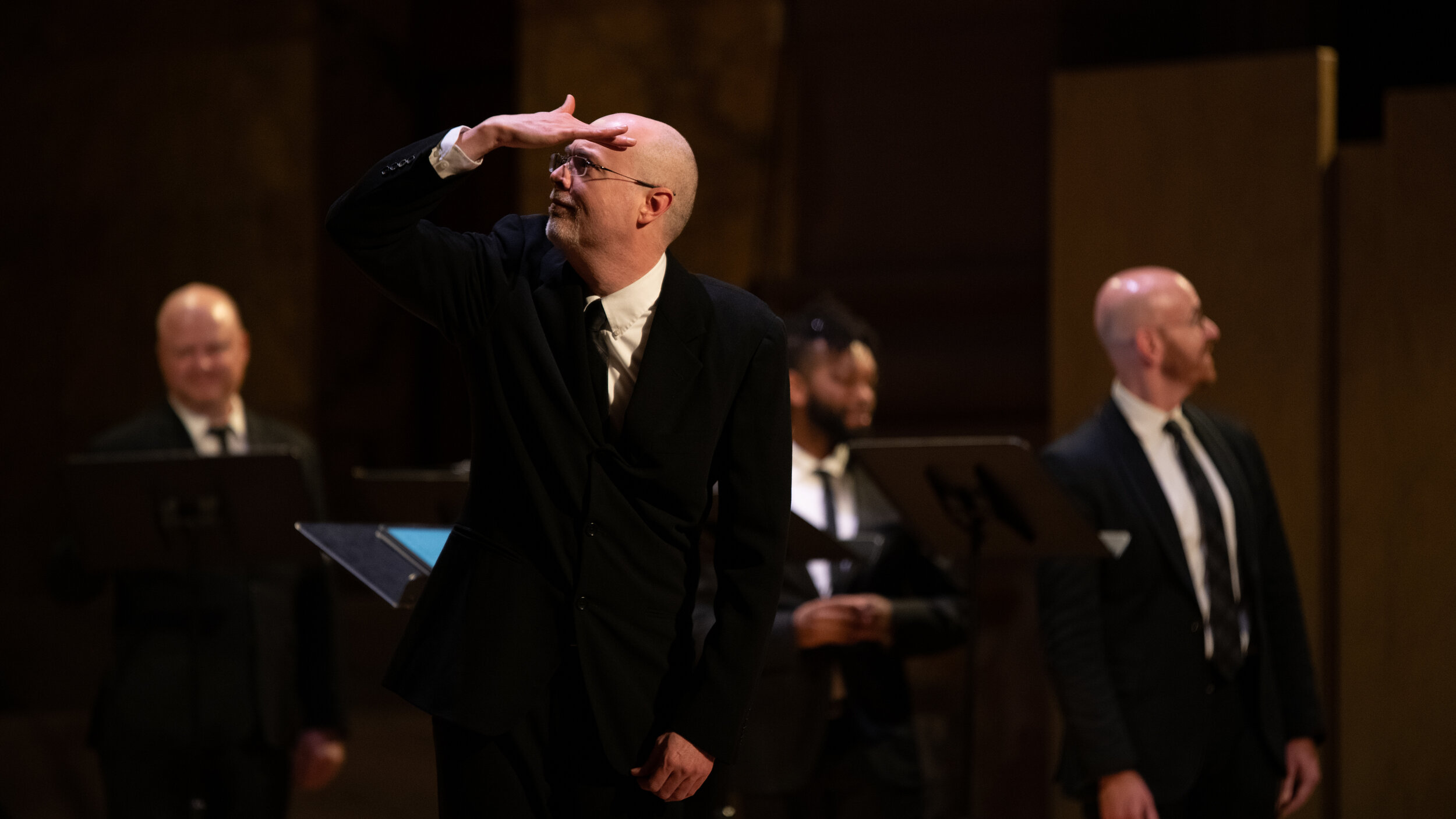
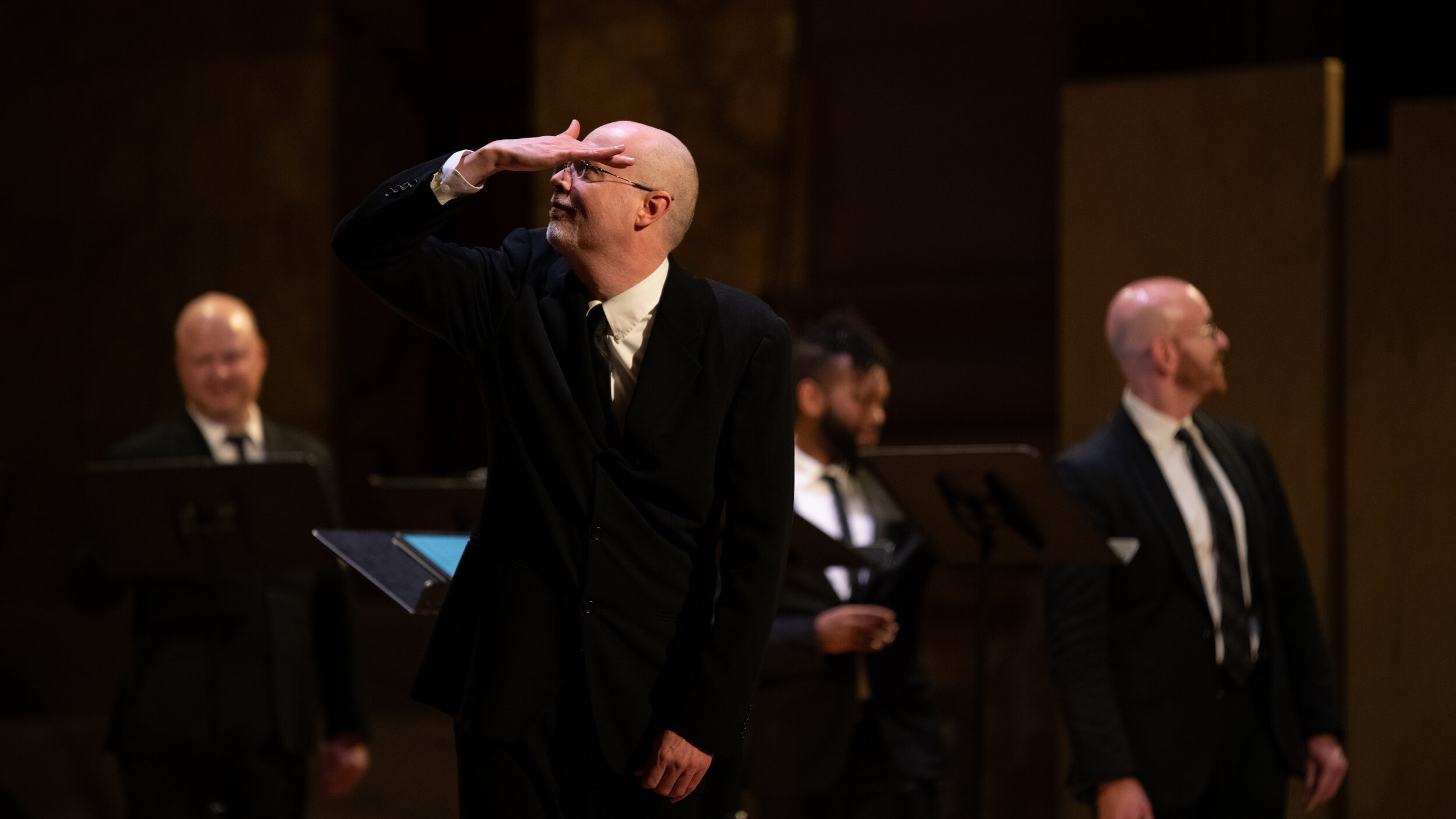
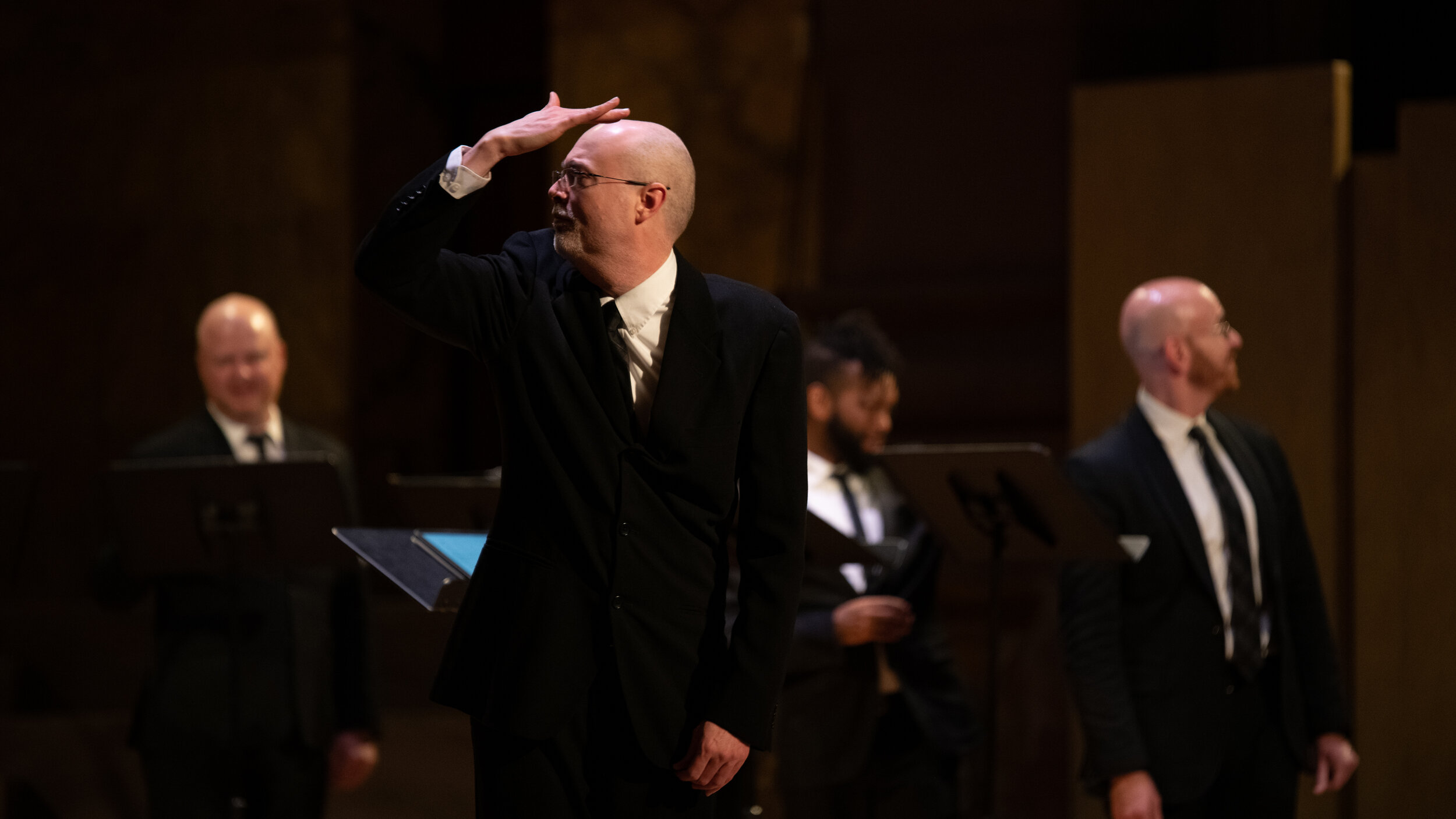
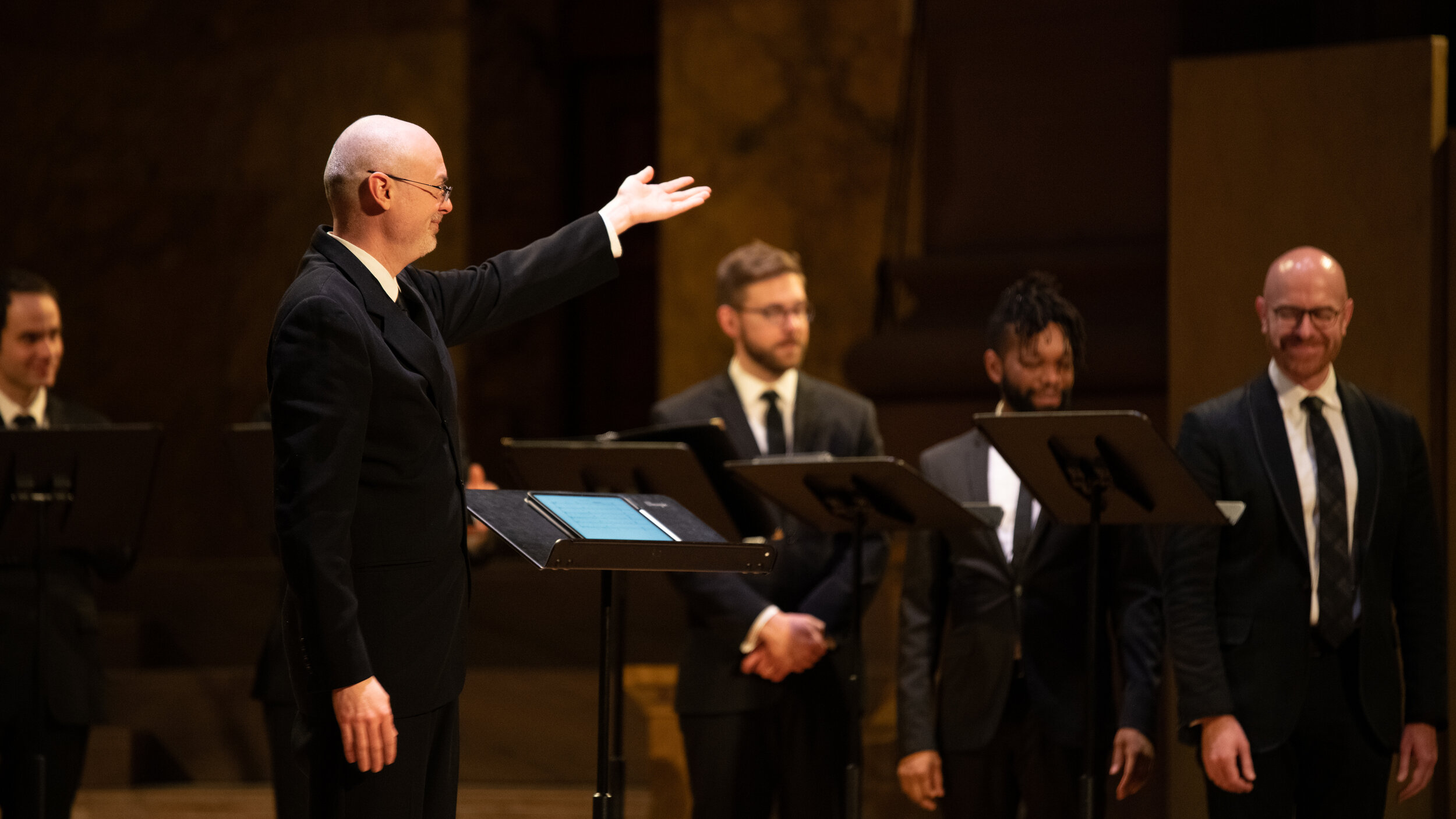

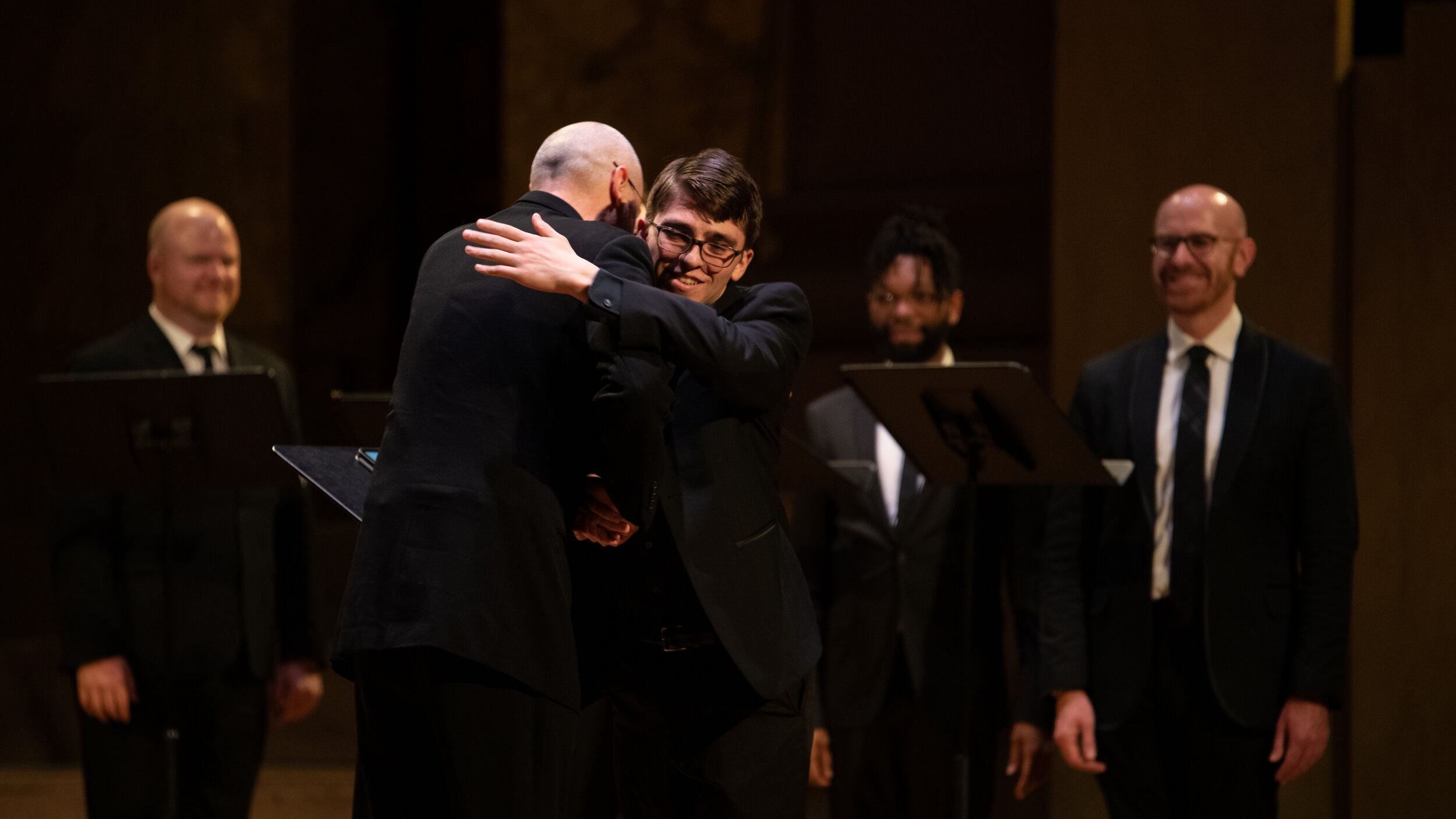
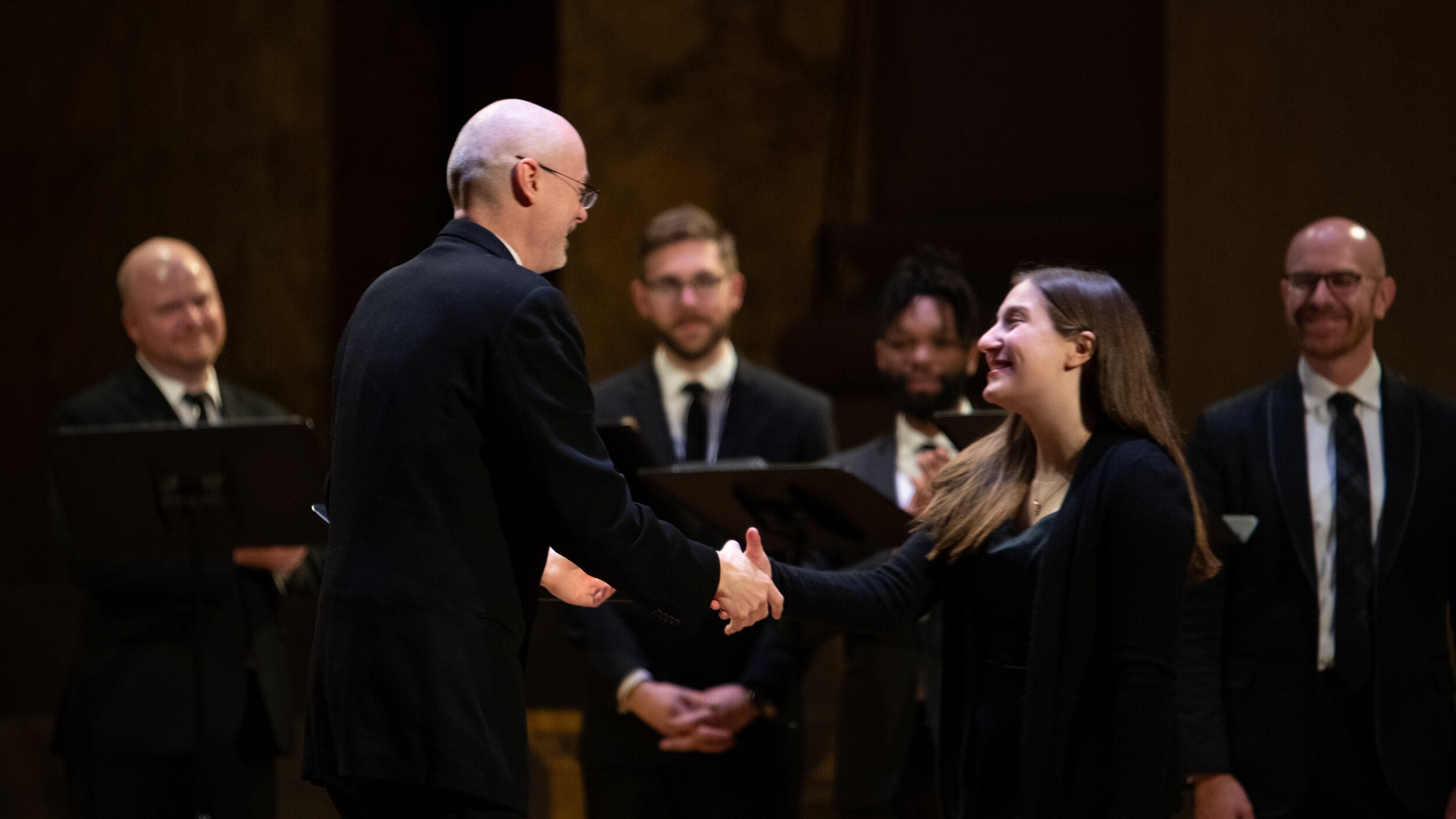
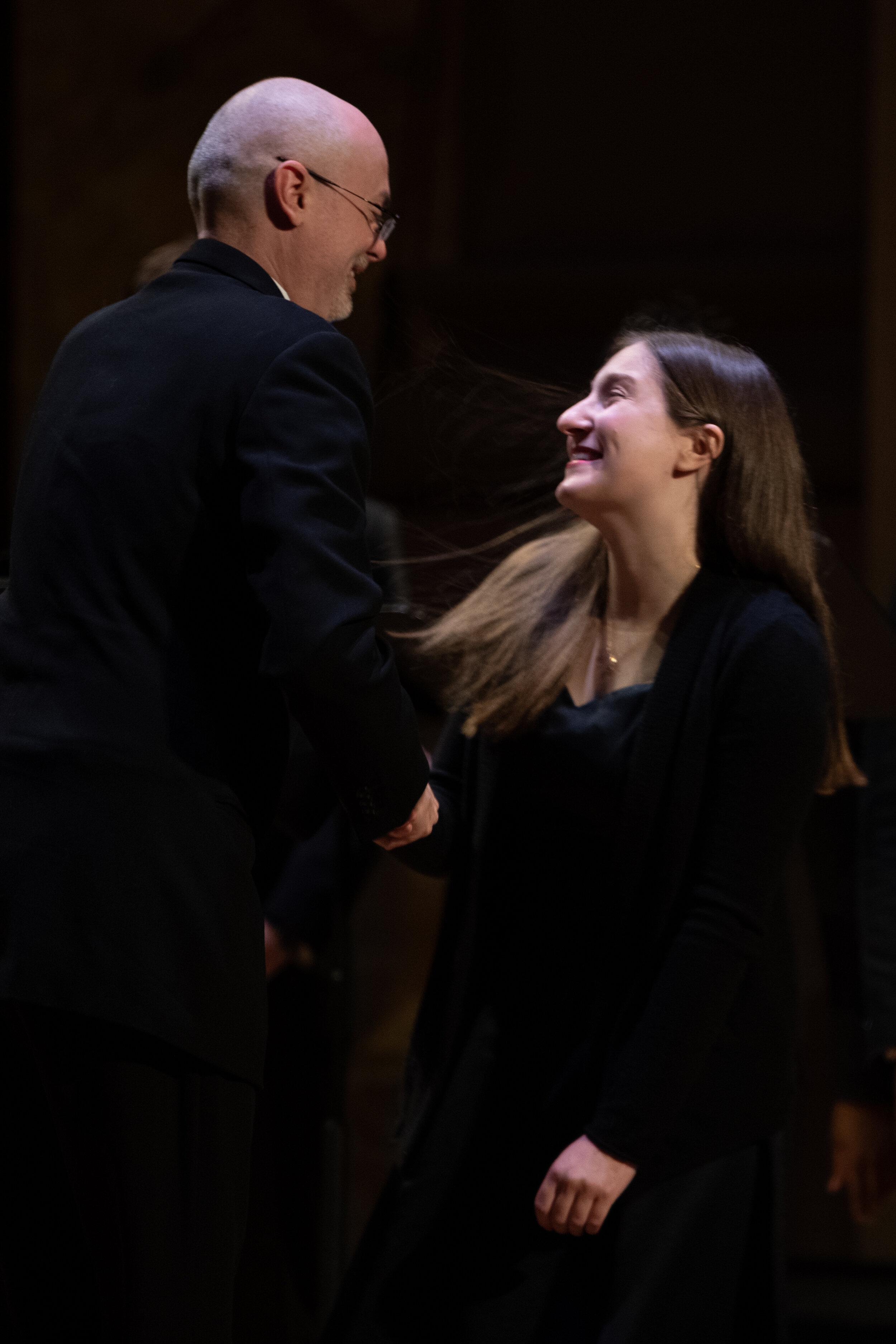
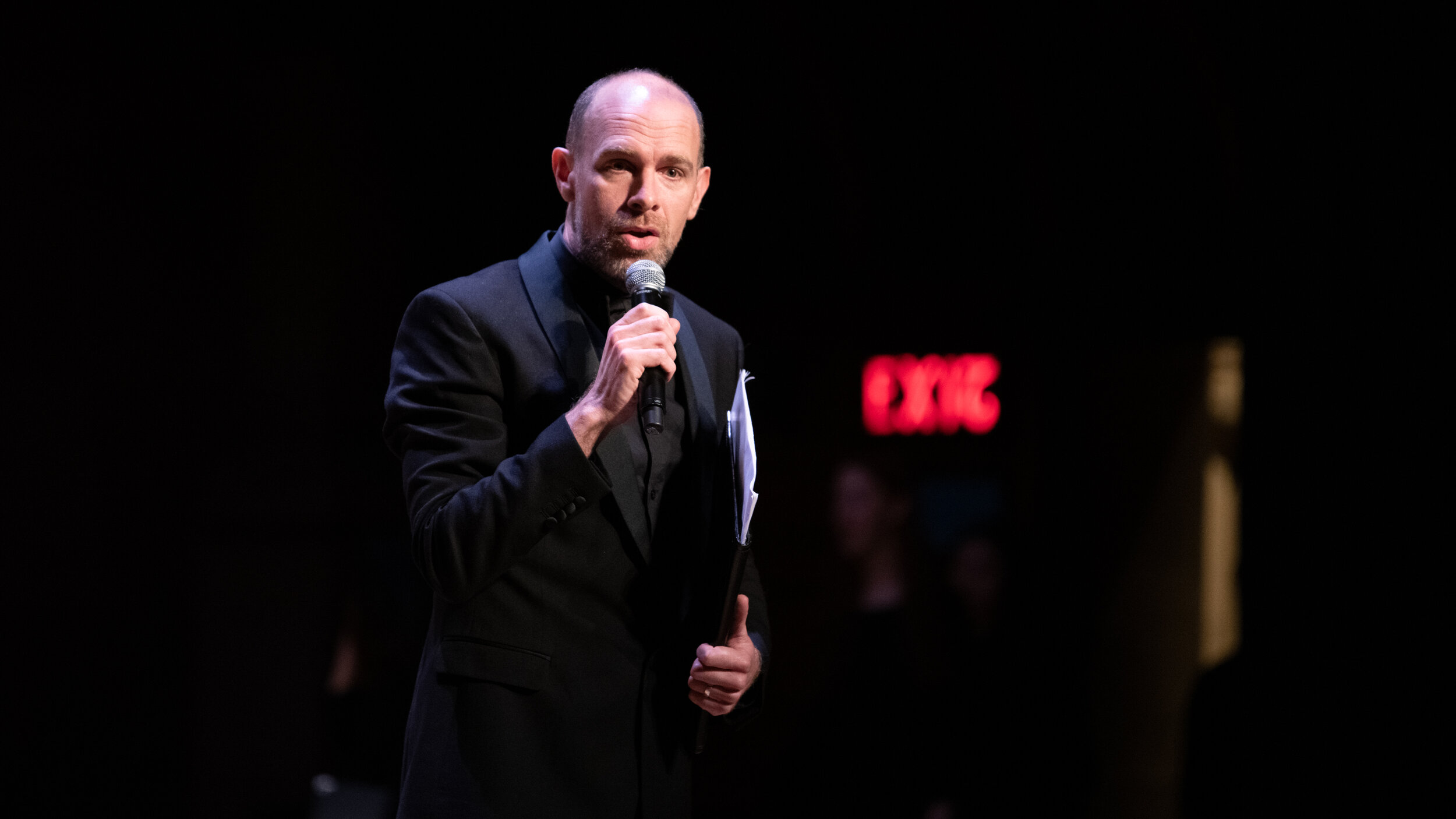
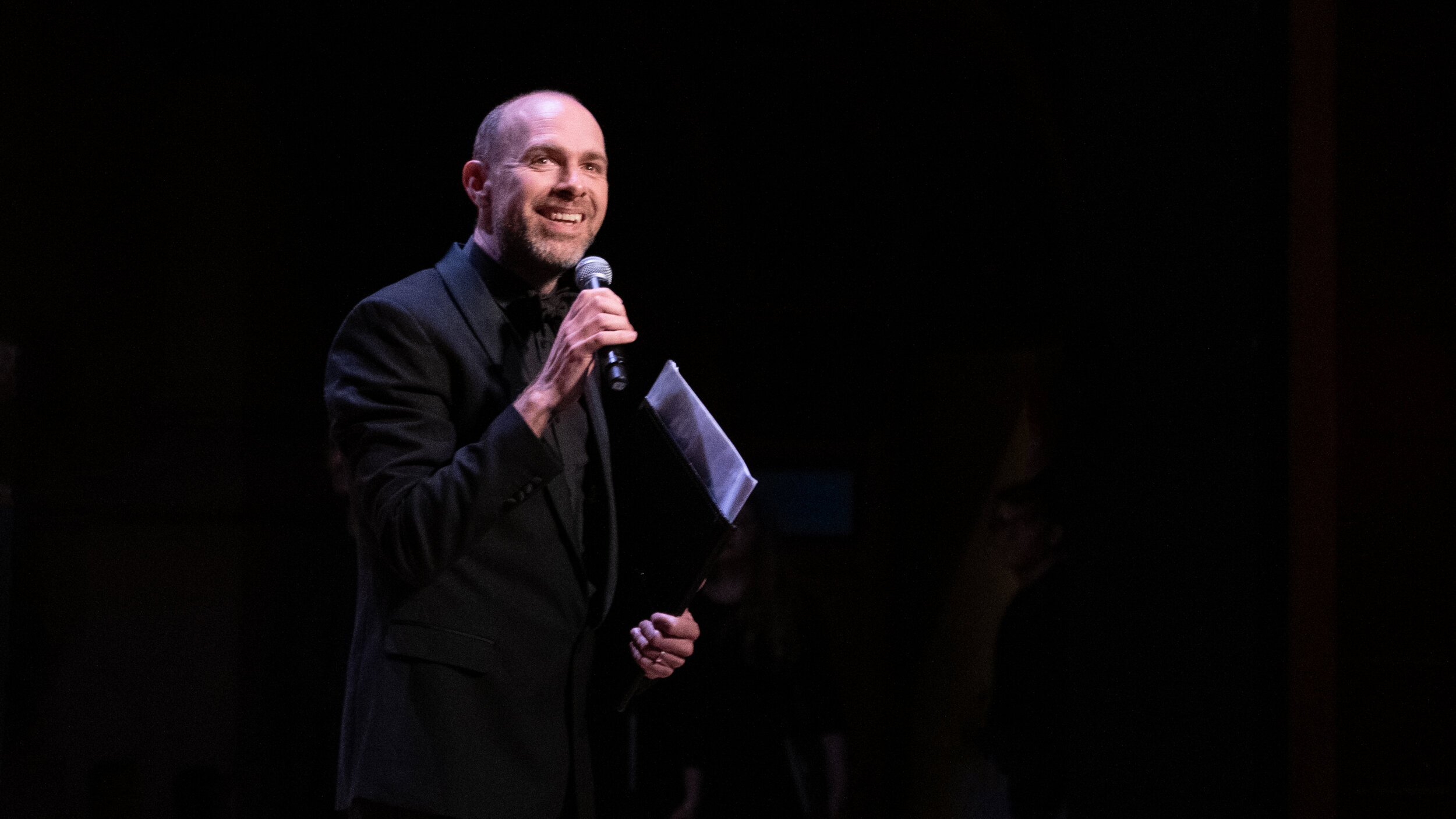
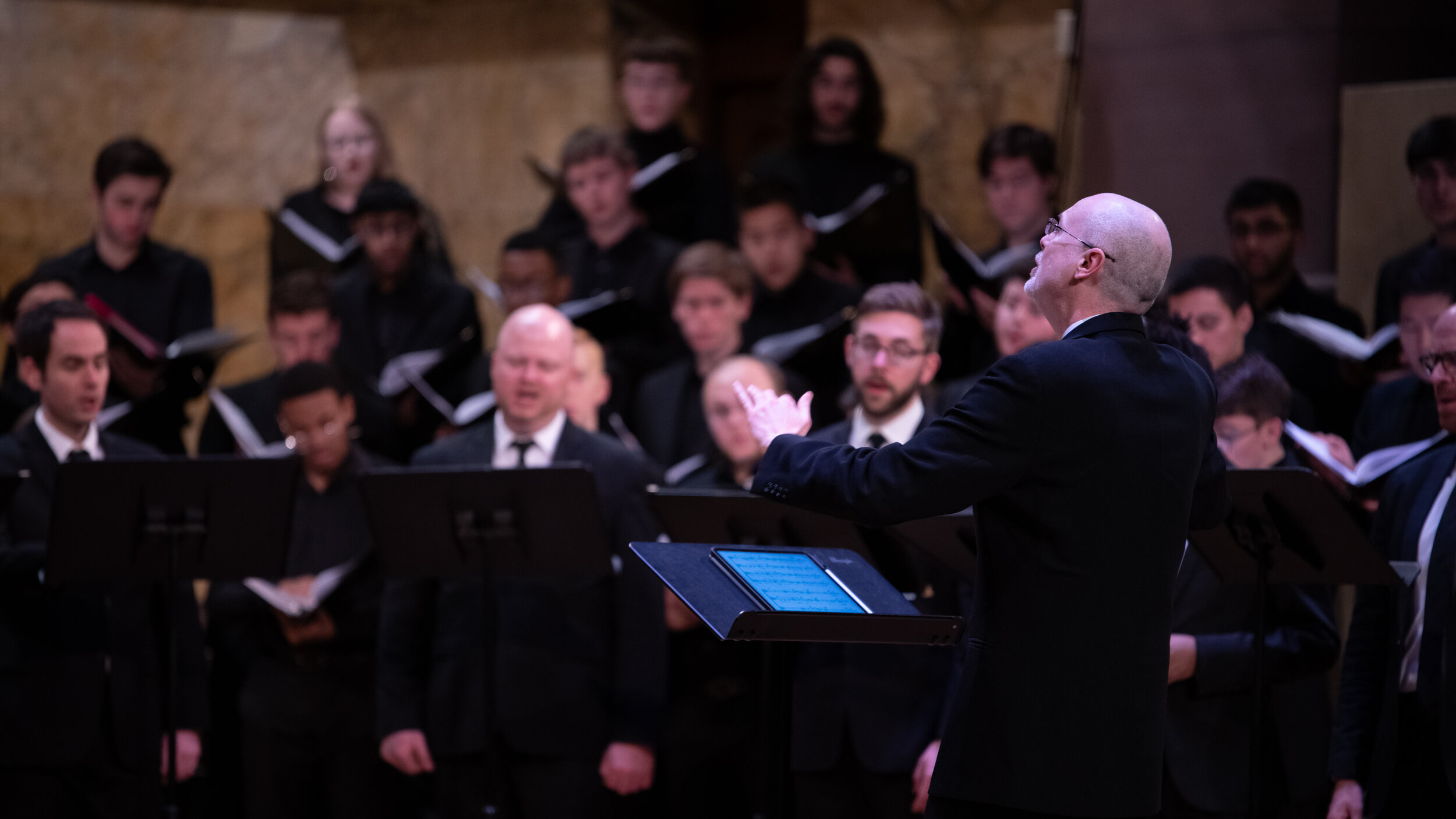
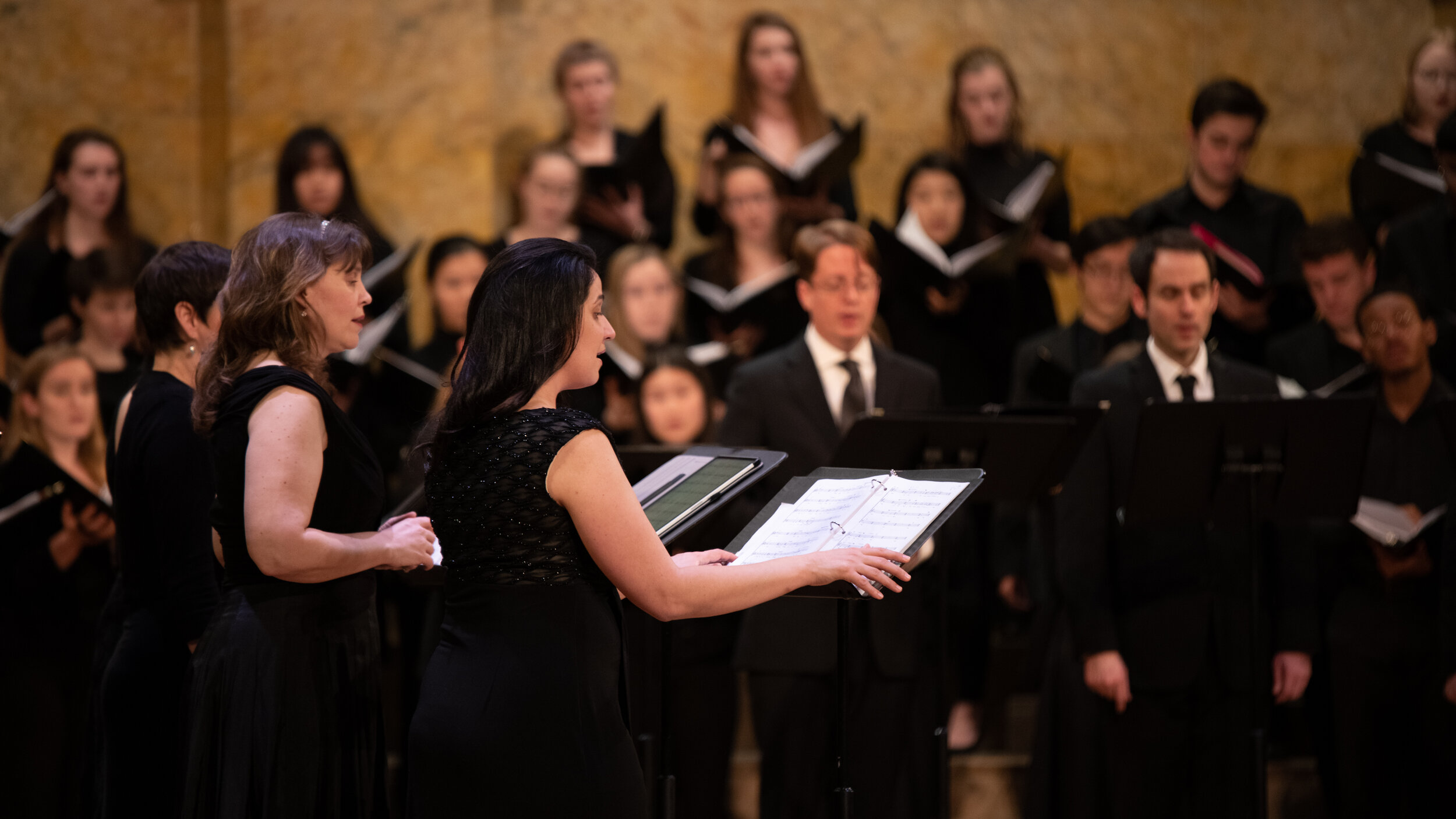
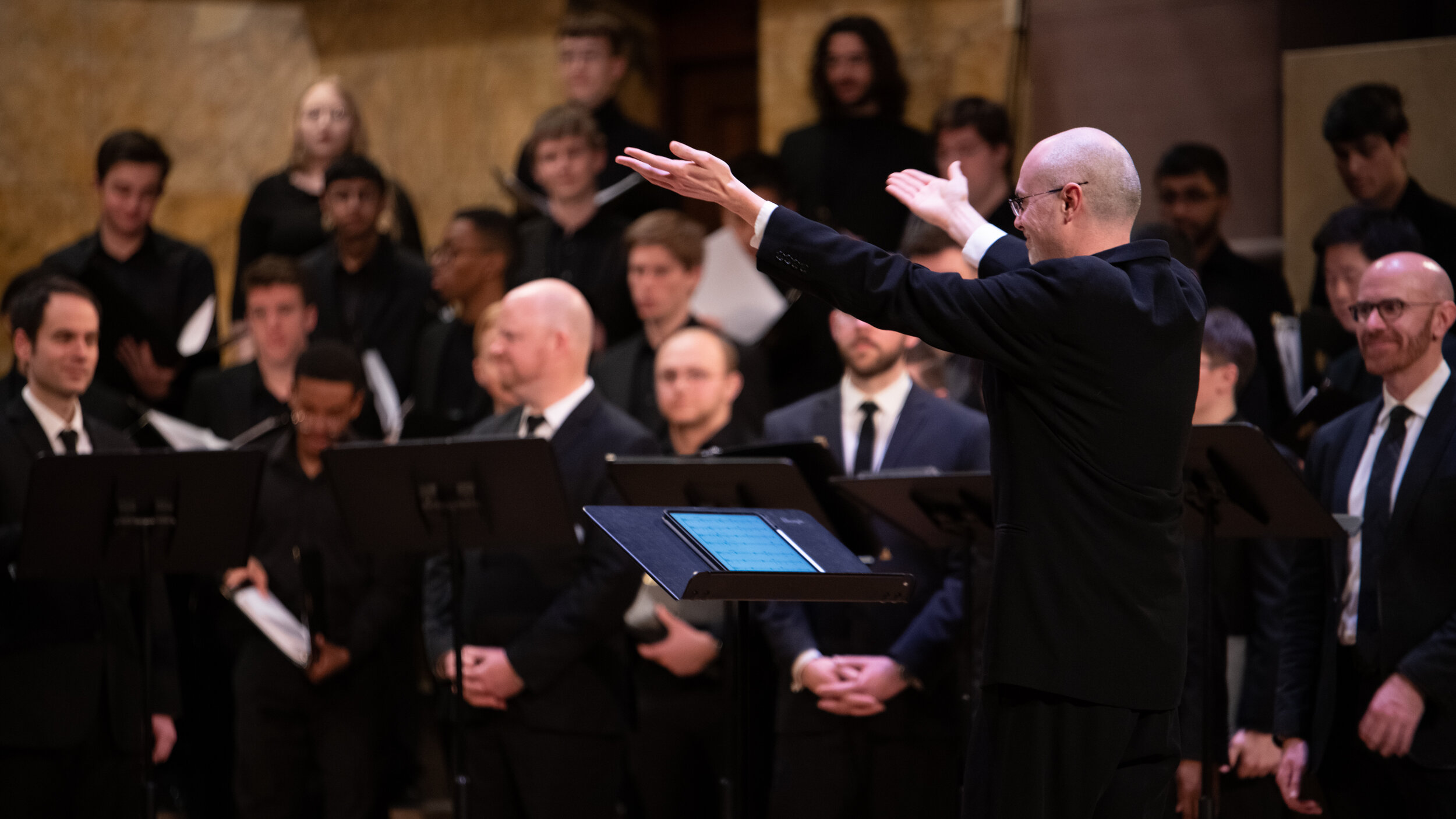
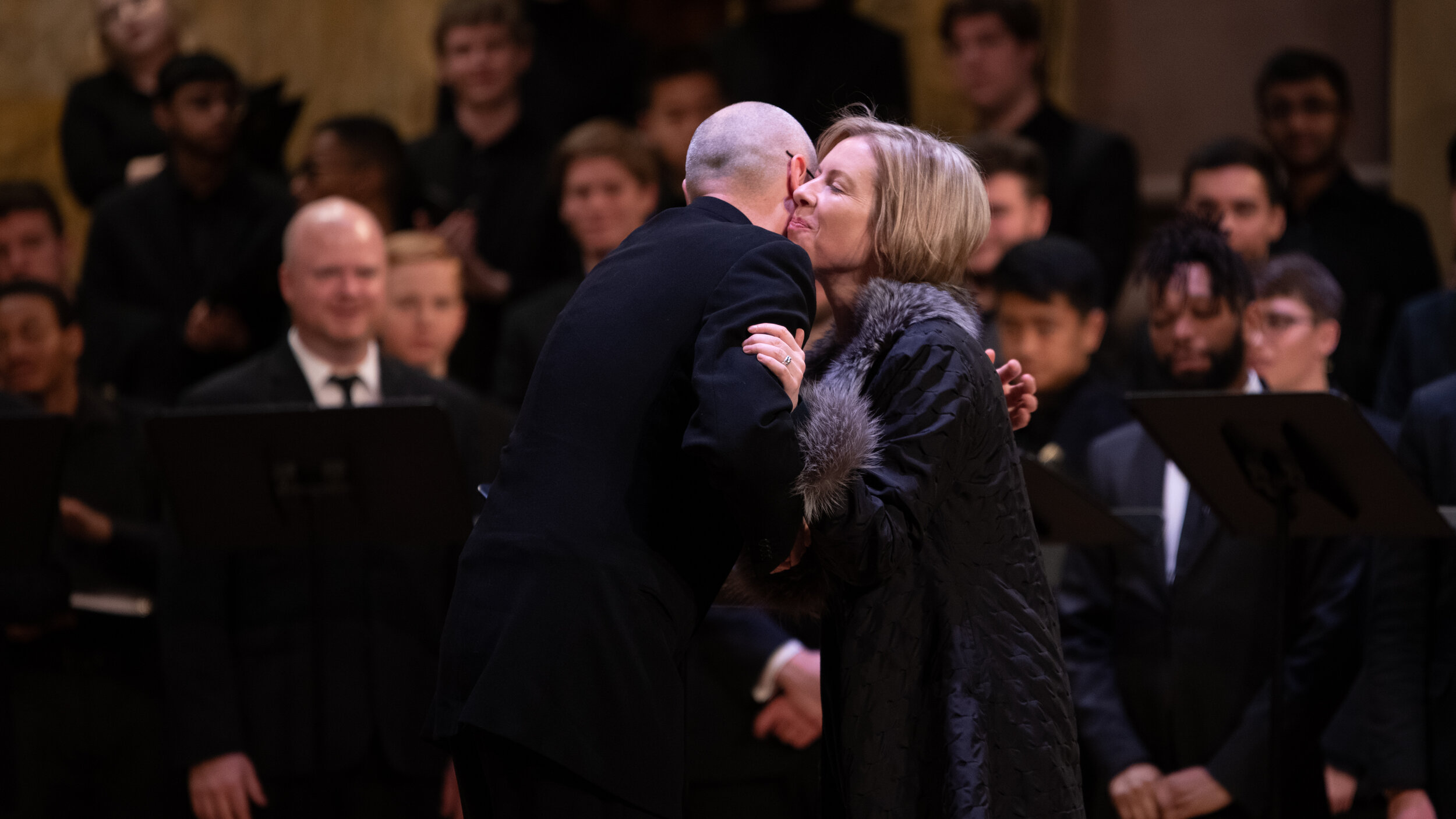
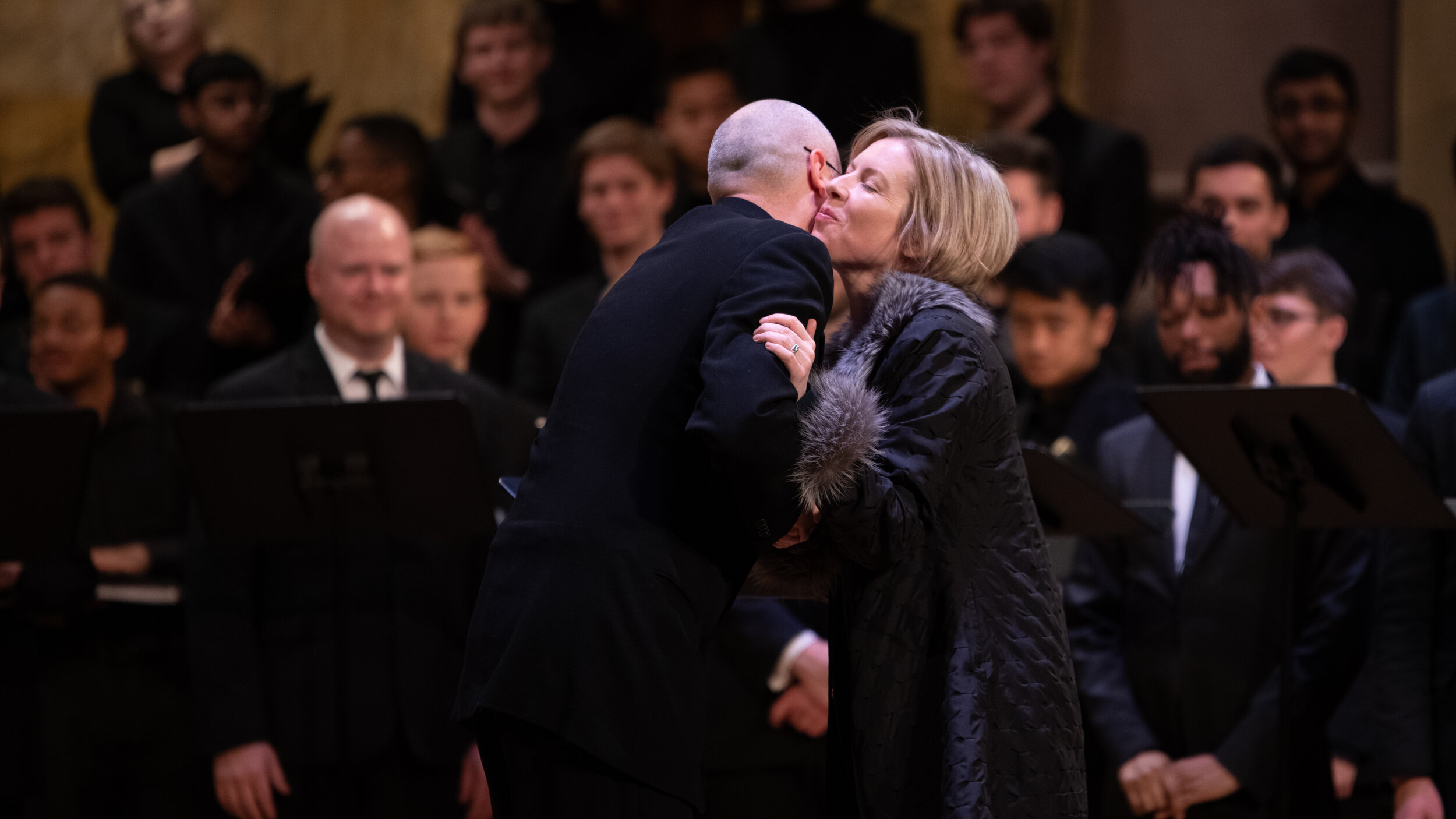
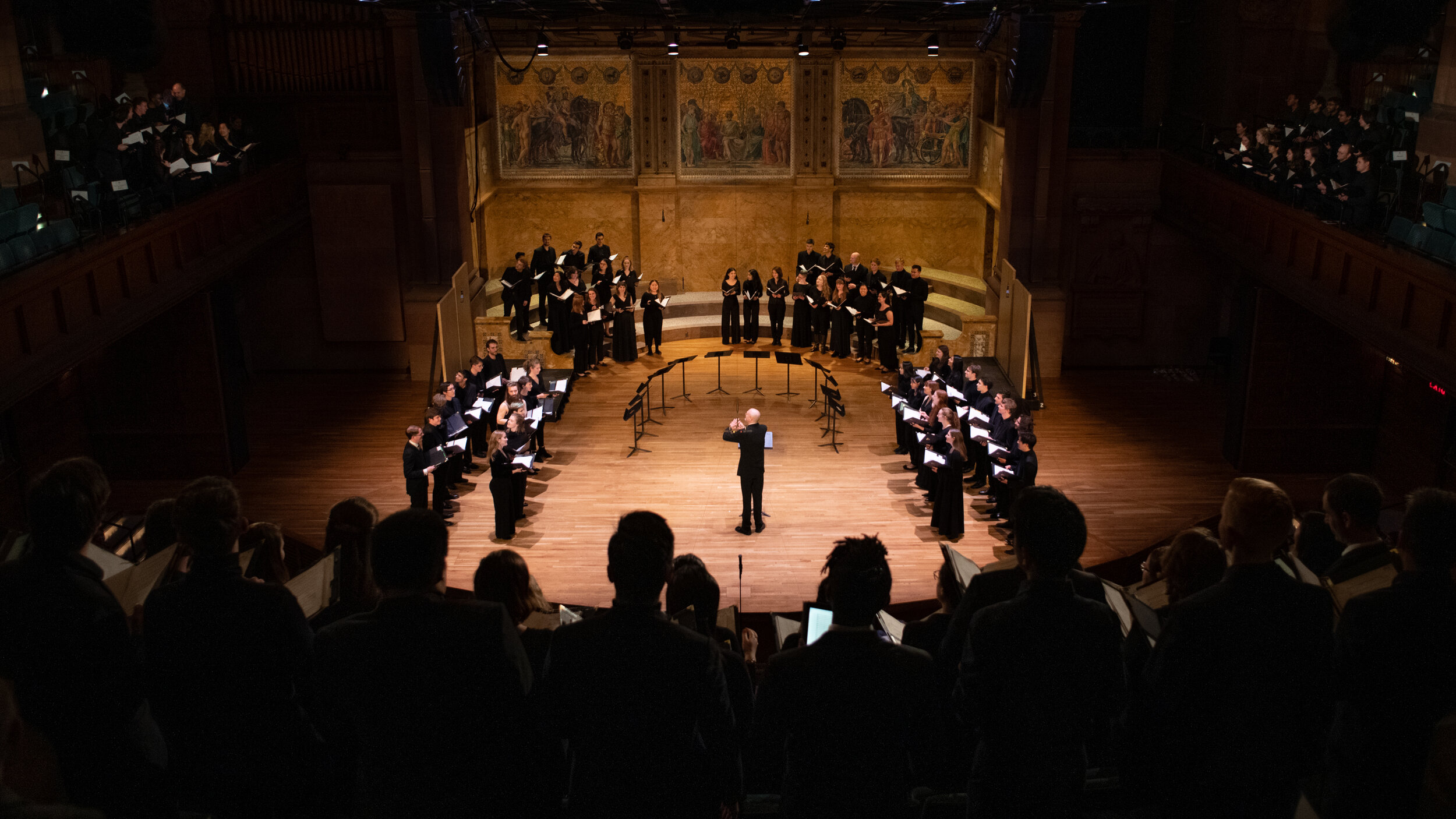
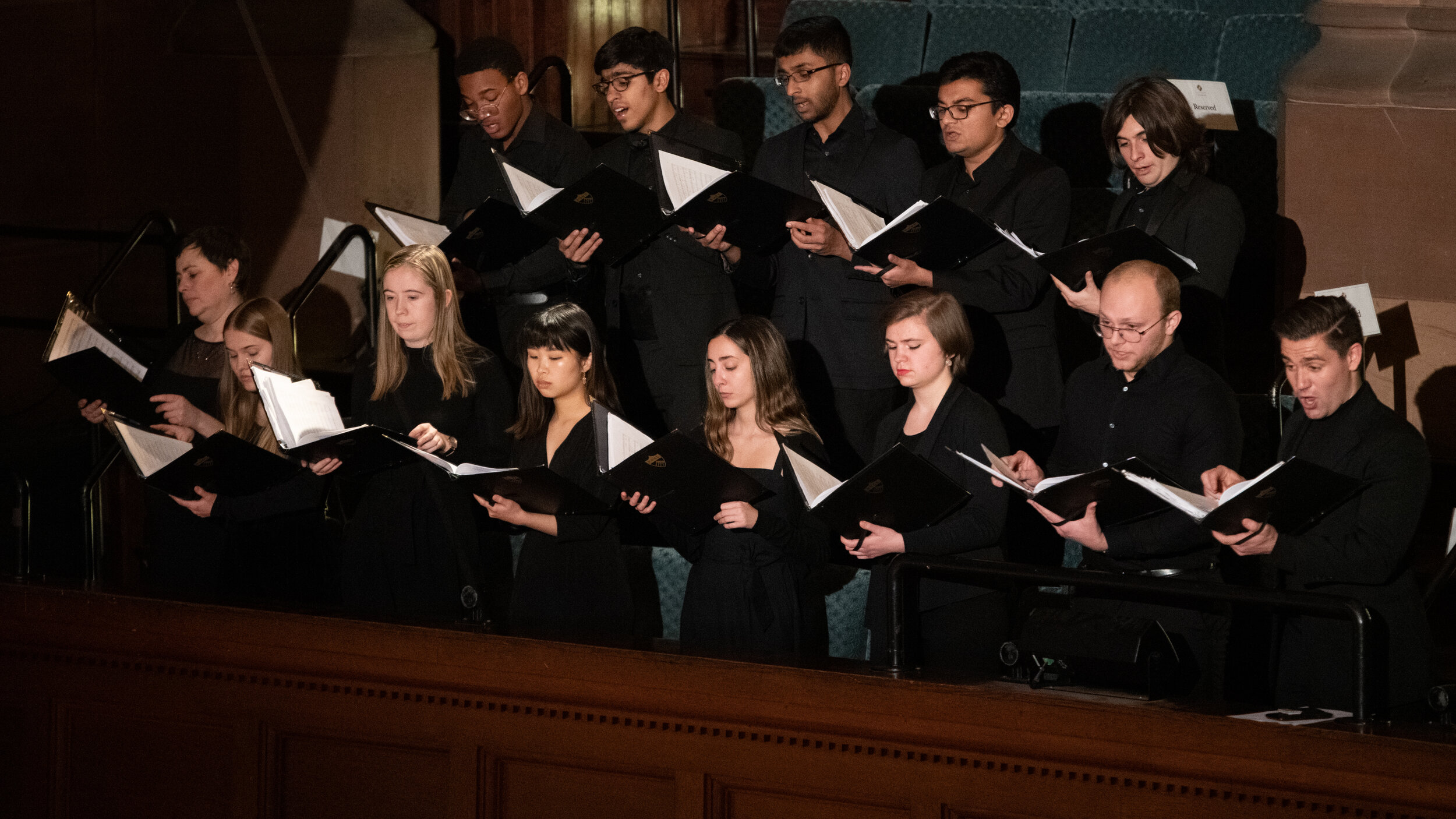
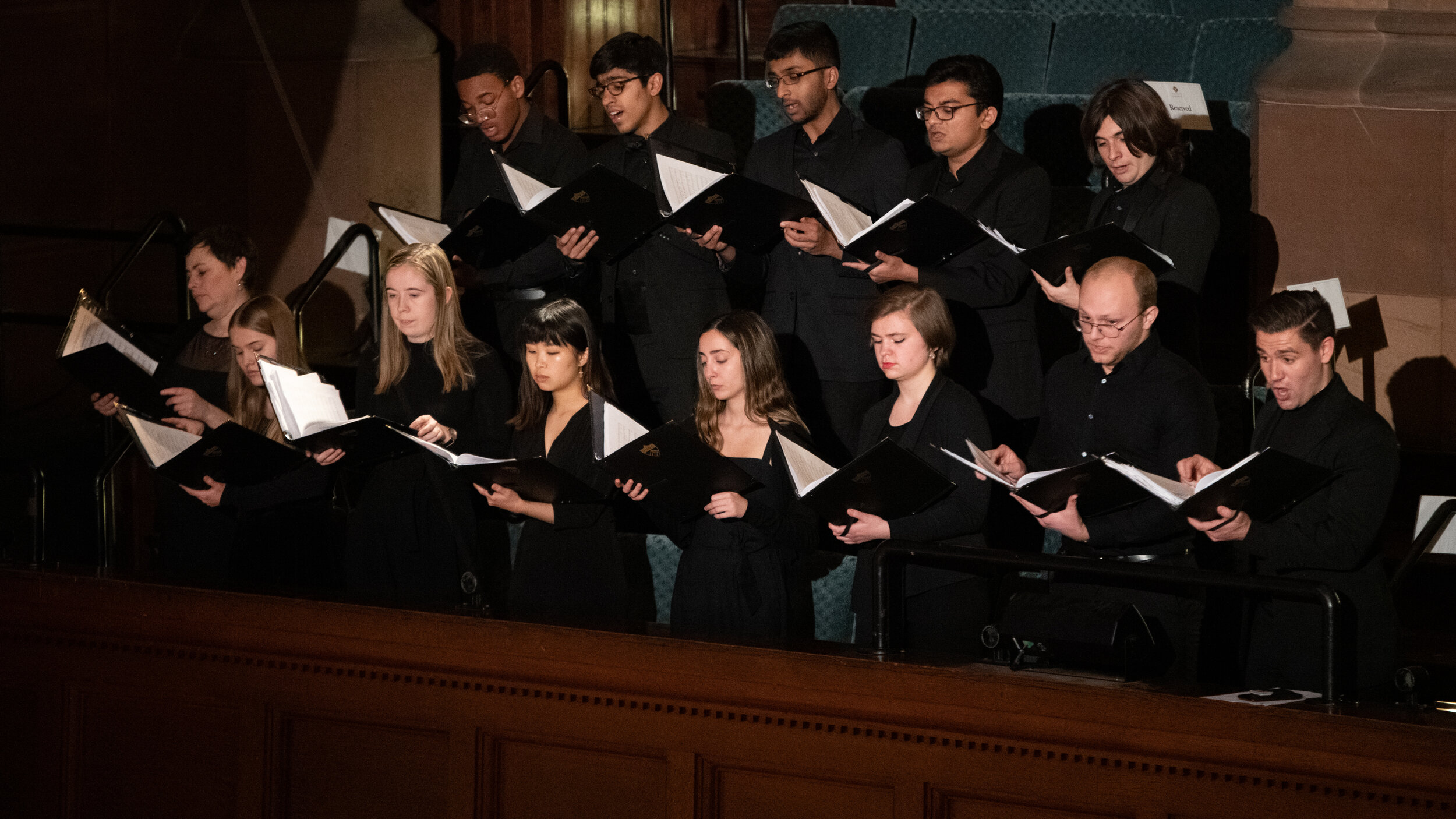
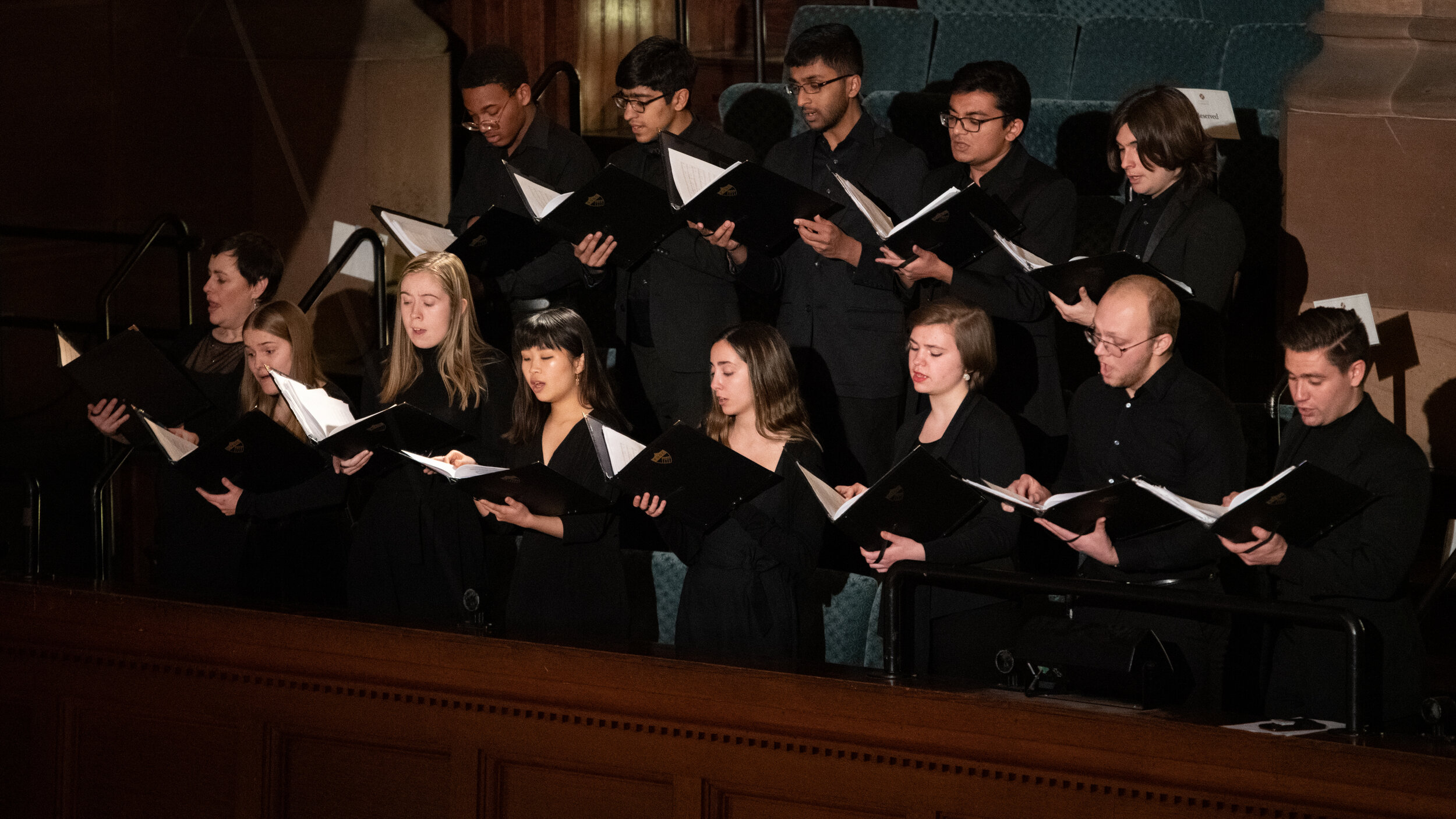
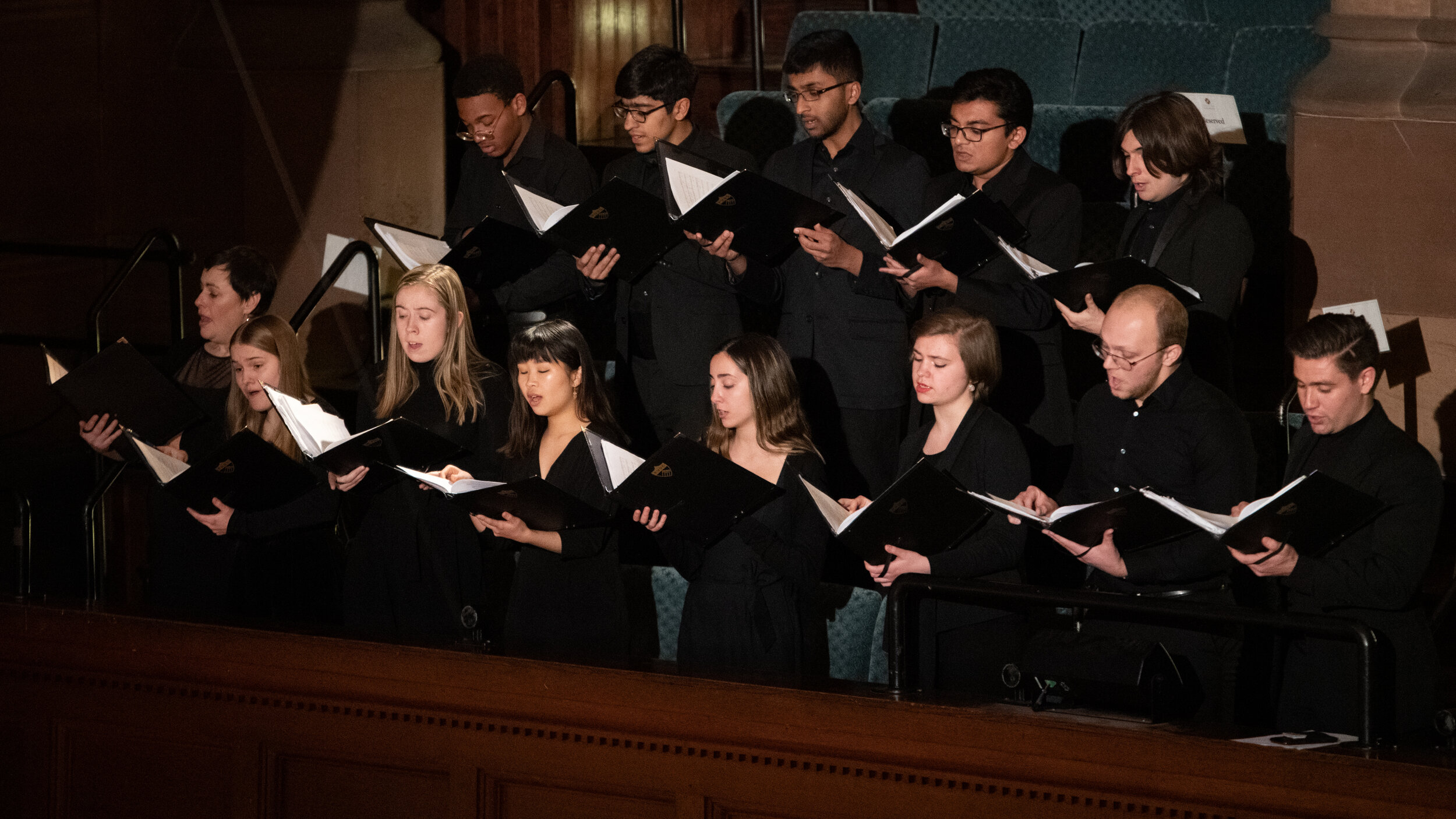
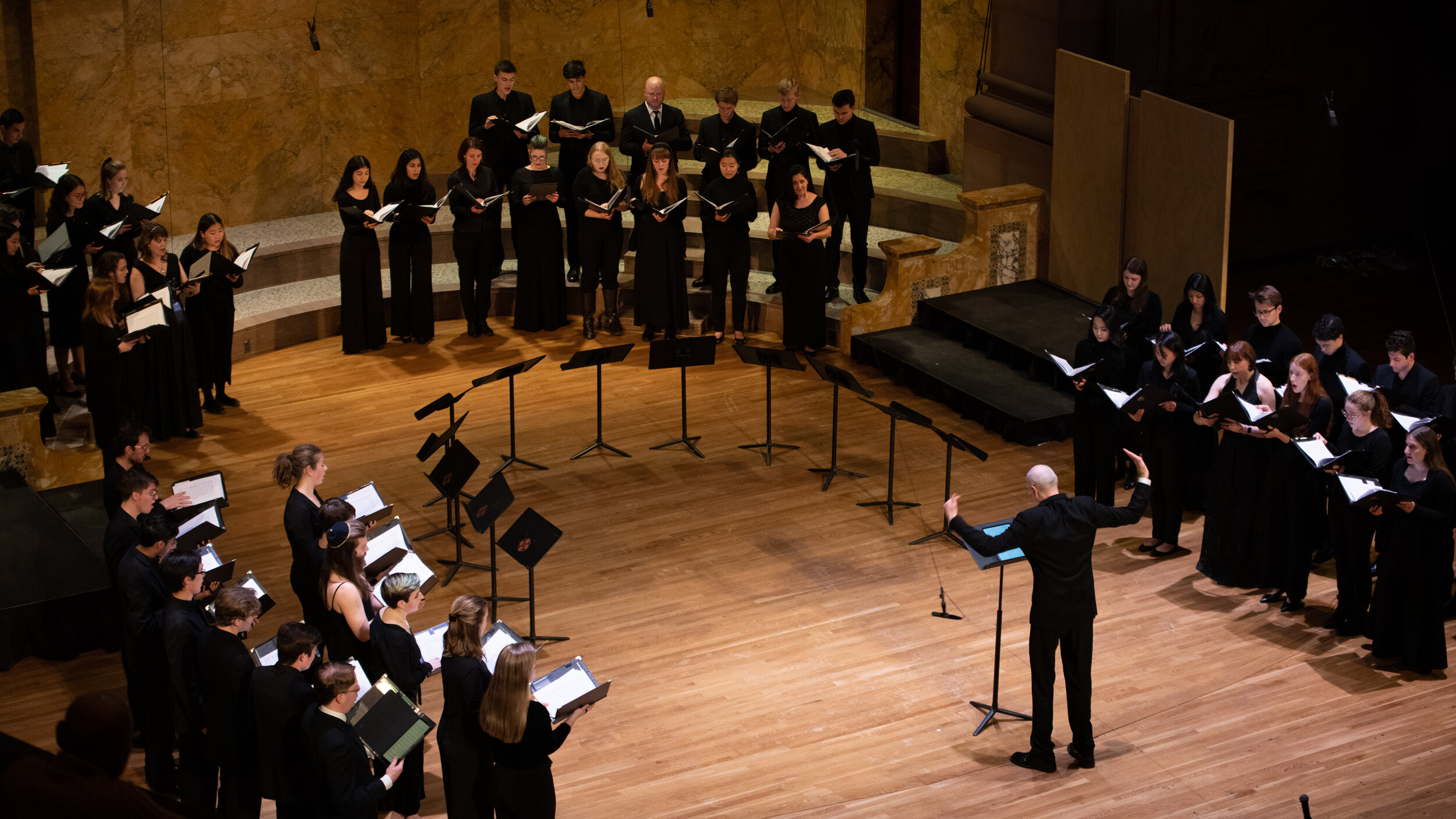

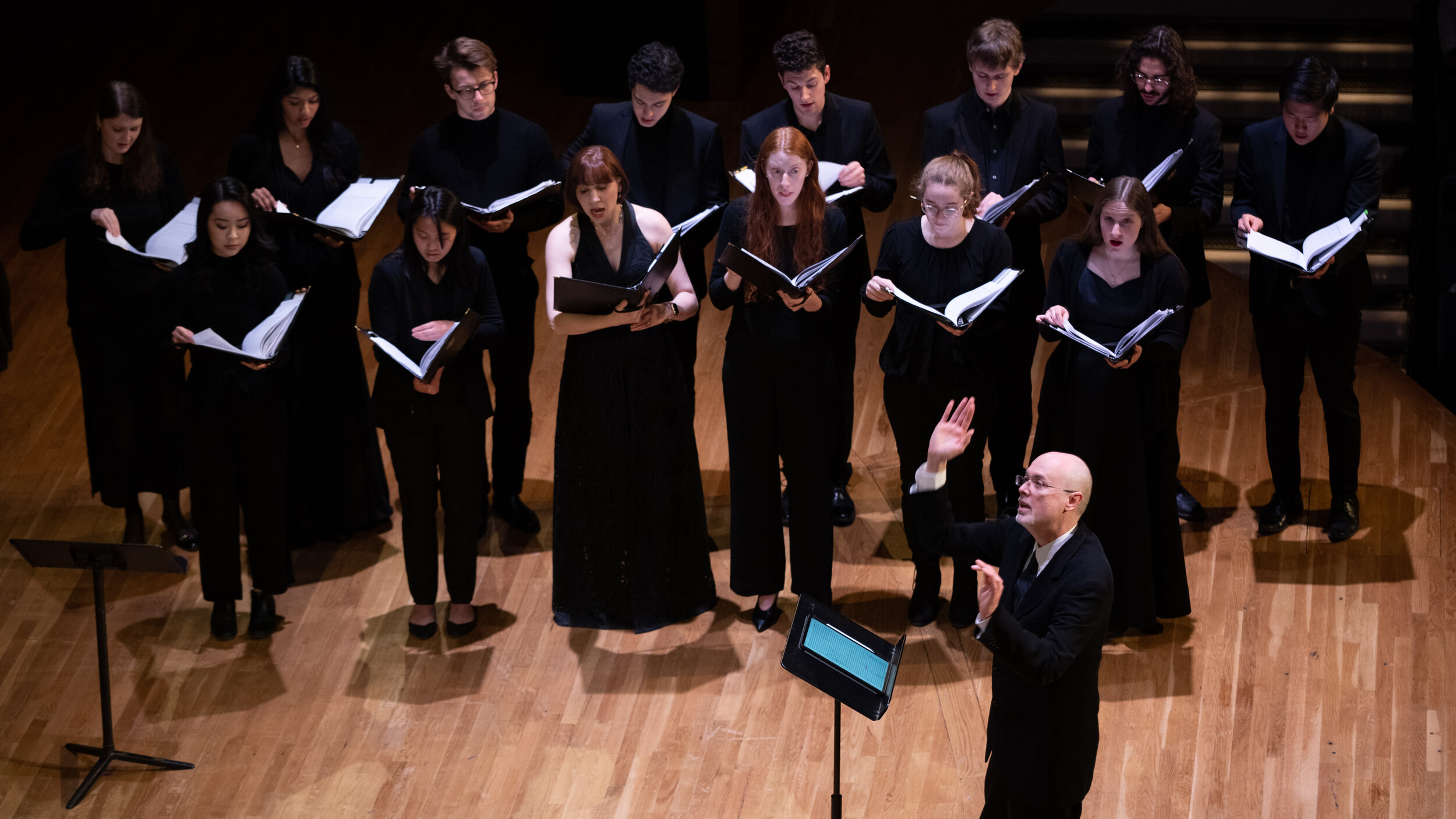
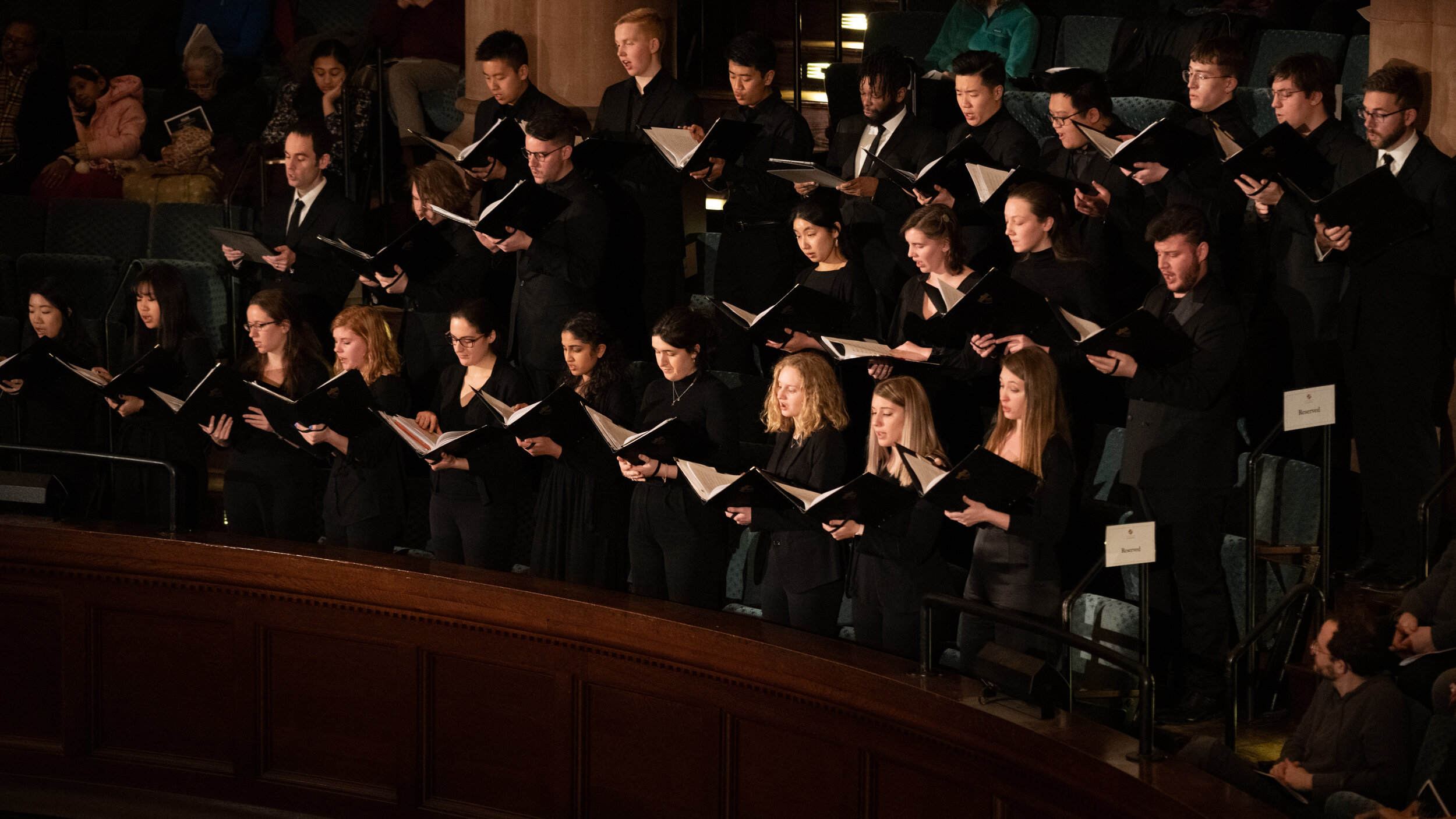

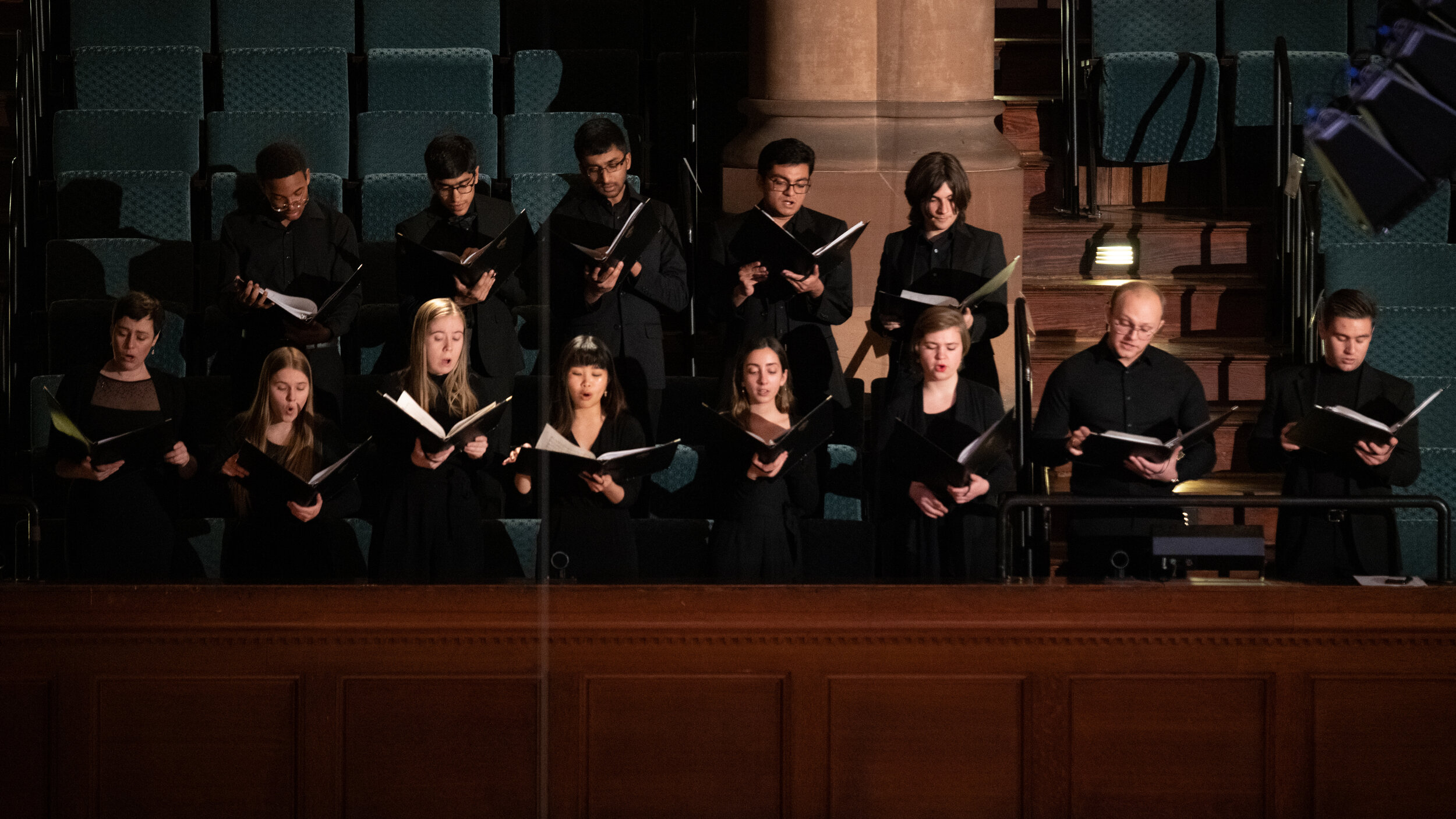
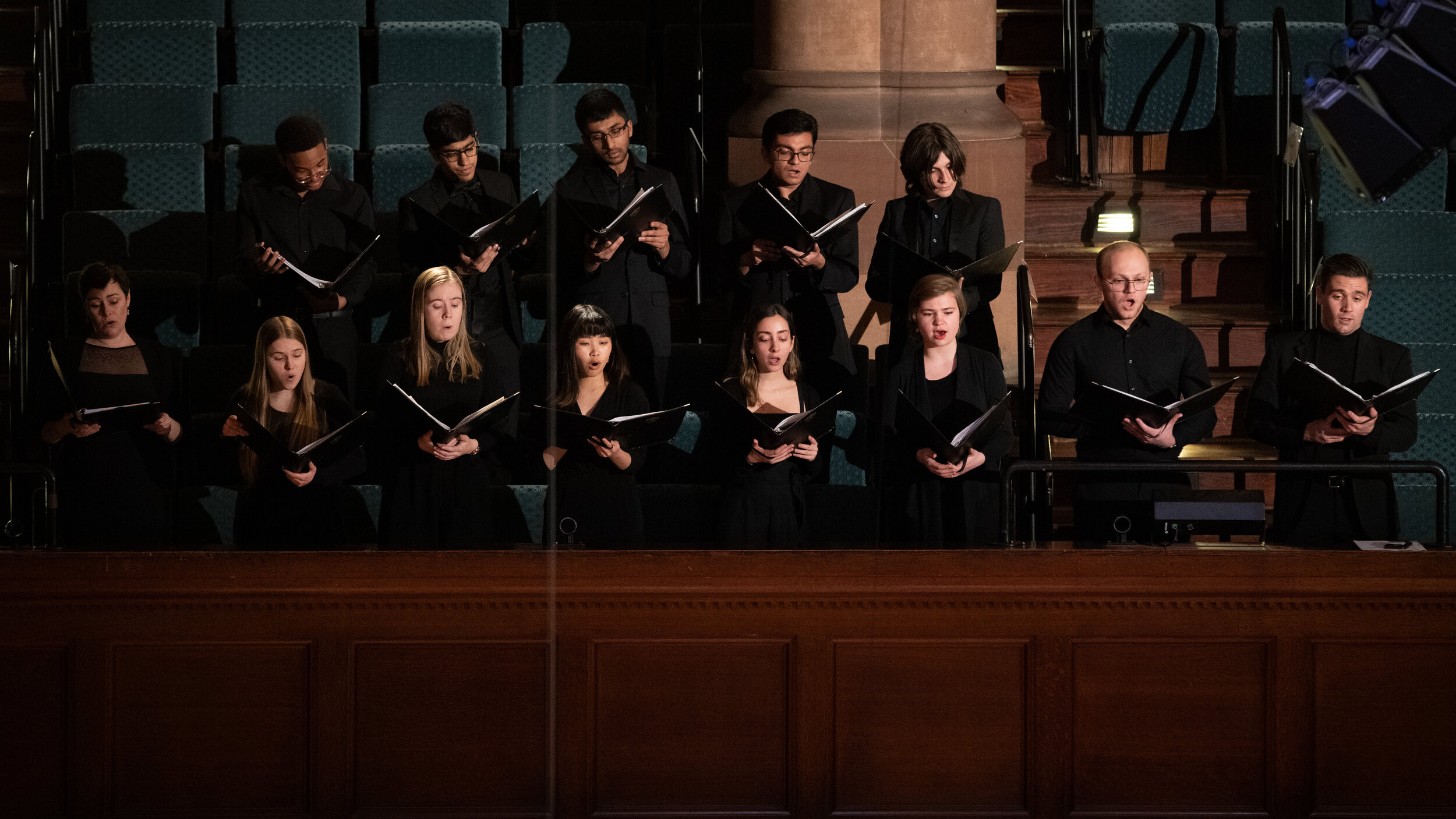
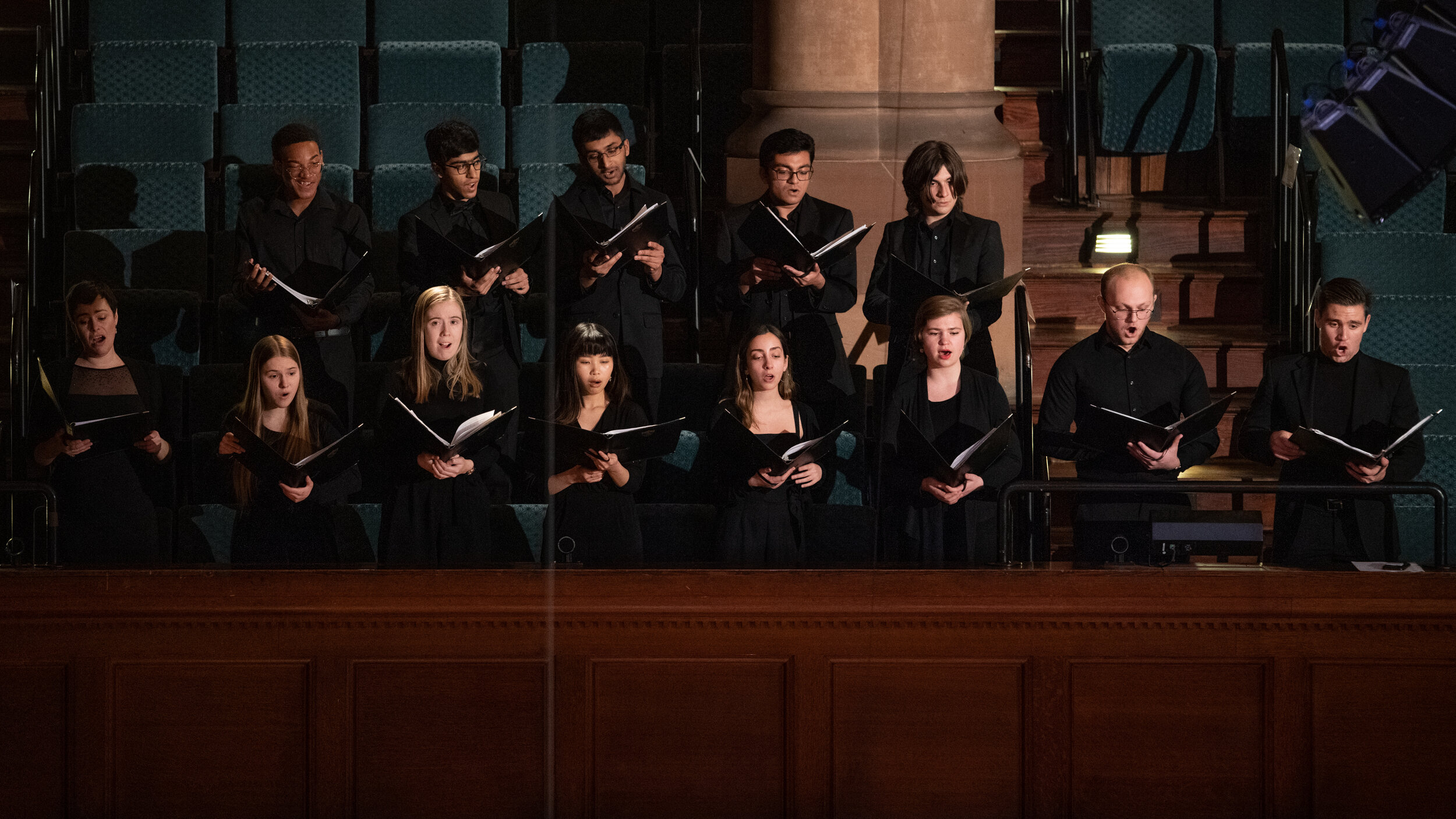
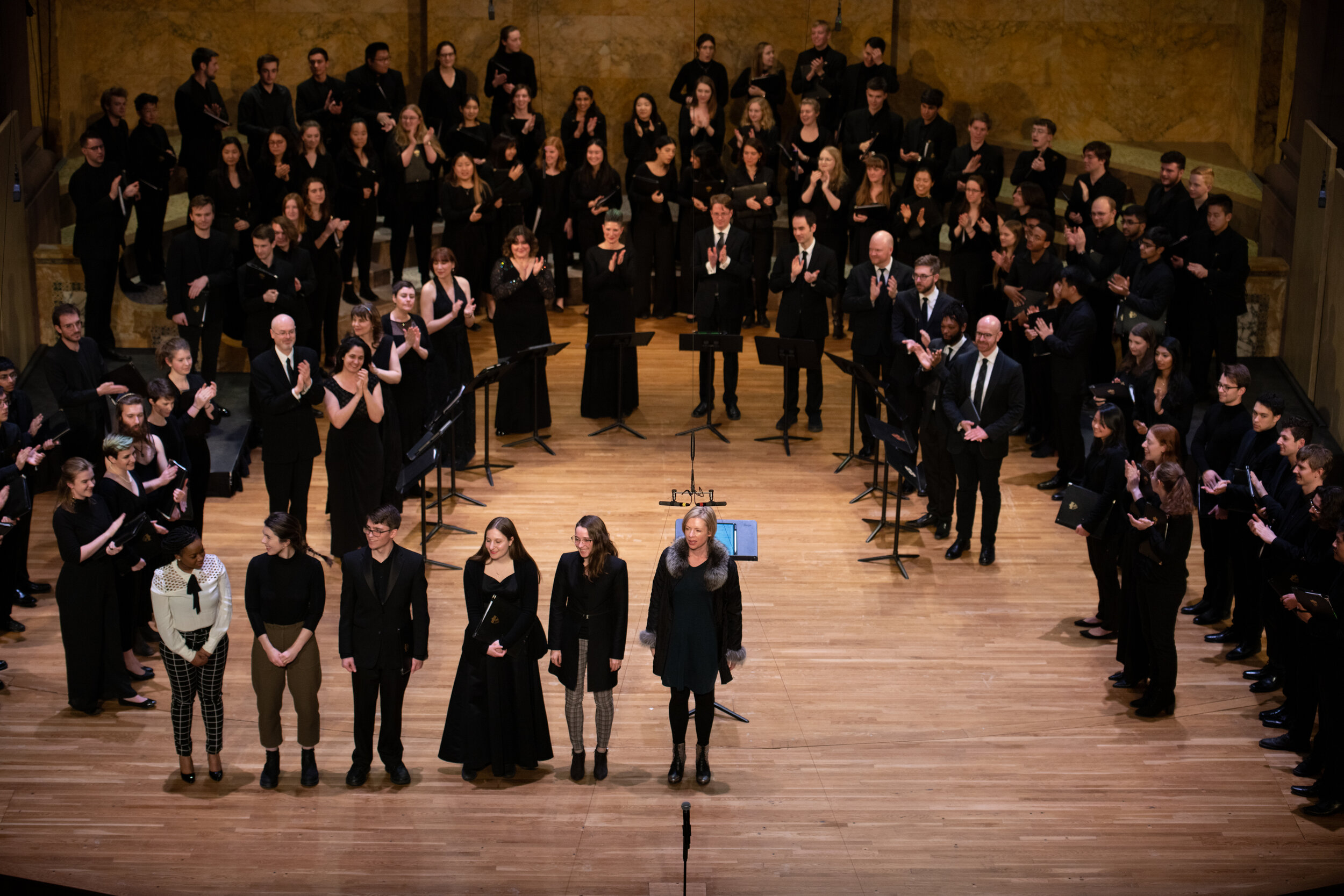


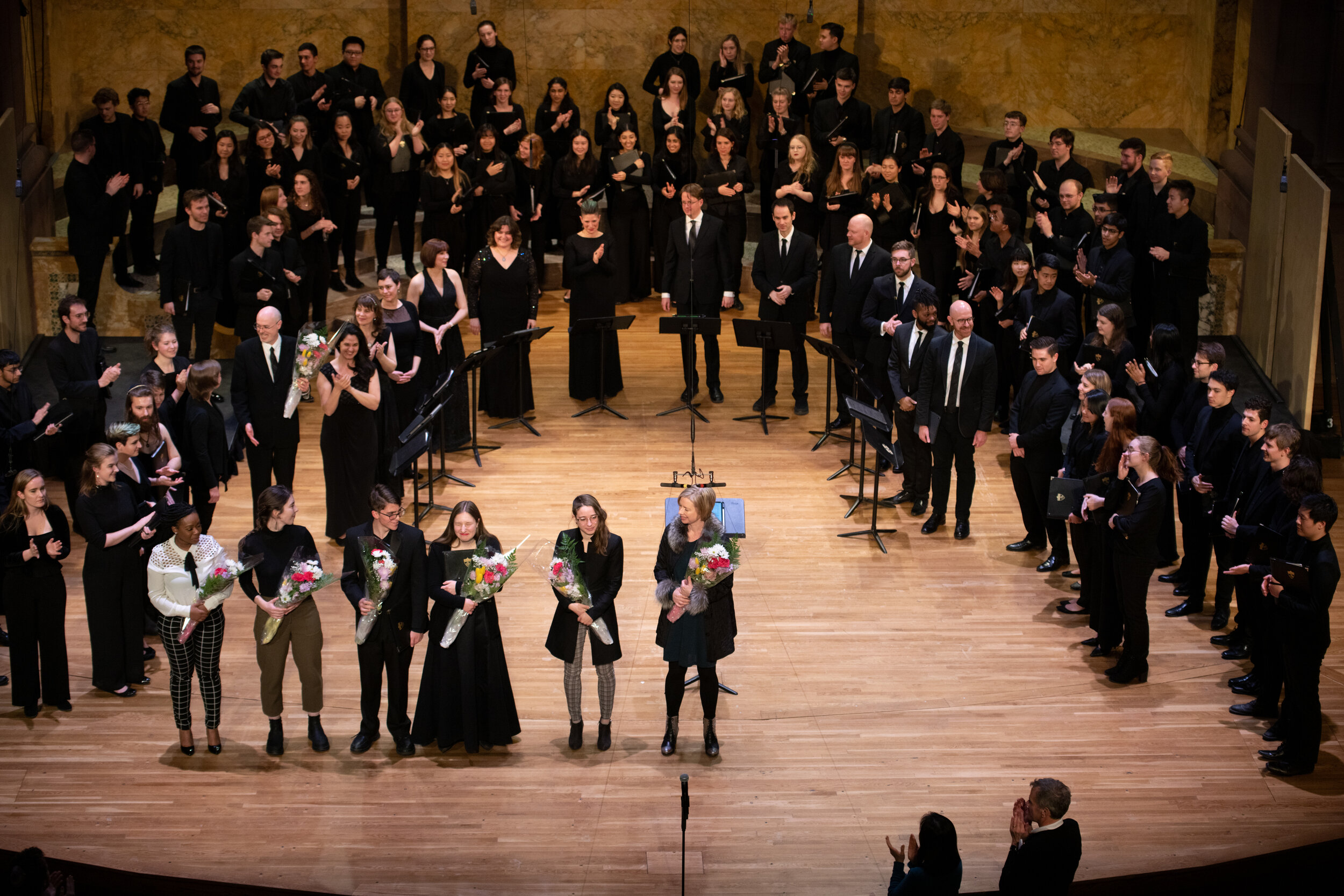
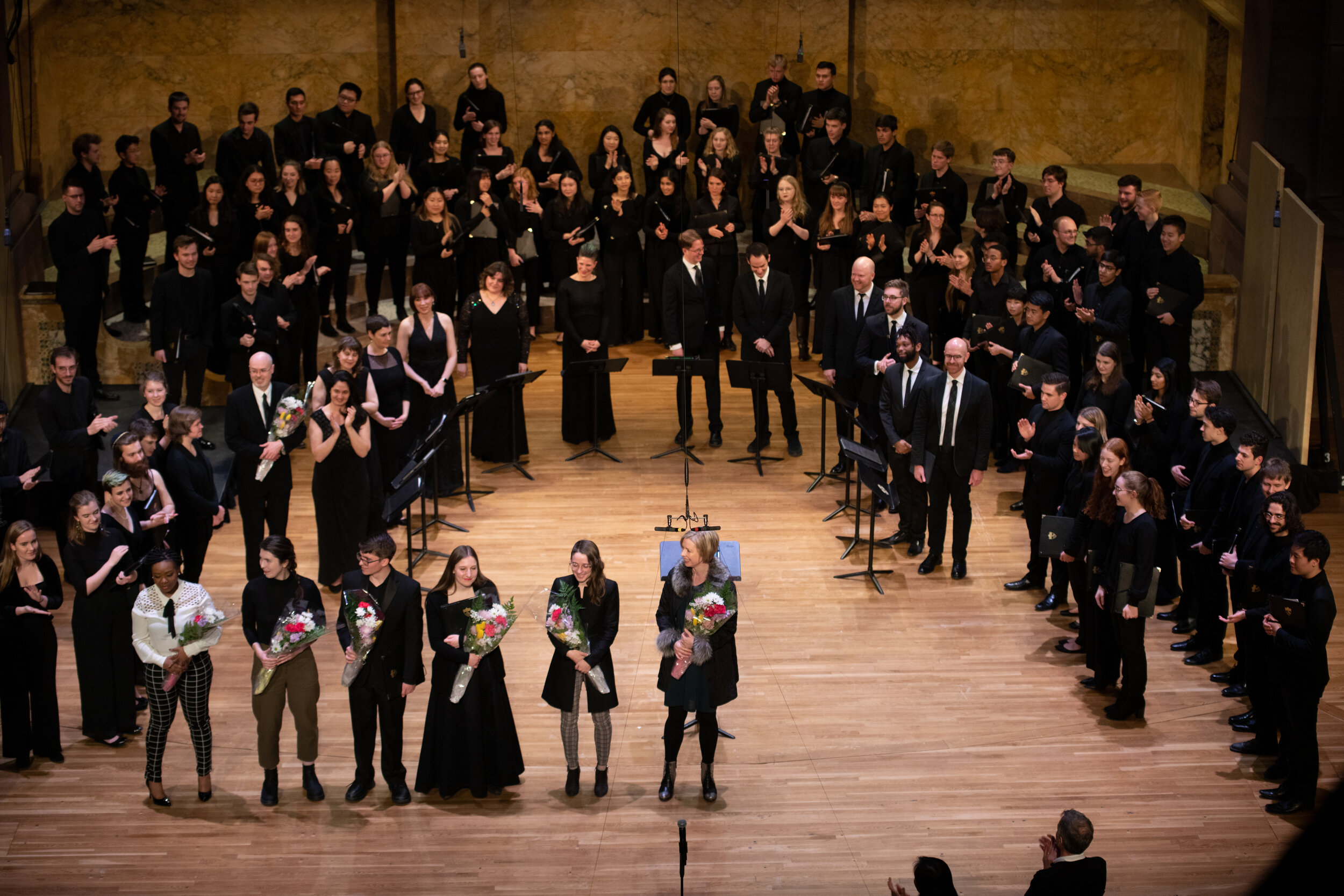
About Antioch Chamber Ensemble
Widely regarded as one of the finest professional choral ensembles in the United States, The Antioch Chamber Ensemble is currently celebrating its 21st season of exceptional music-making. Under the leadership of founding Artistic Director Joshua Copeland, the ensemble strives to present as diverse a program as possible of the world’s greatest choral literature, both sacred and secular, and has performed works ranging from Renaissance polyphony to contemporary masterpieces with a core group of ten to twelve of the New York metropolitan area’s finest singers. Antioch has been awarded first-place honors in the highly prestigious Tolosa International Choral Competition in Spain, establishing them among the top rank of professional choirs in the world. In recent seasons, Antioch has been called “stellar,” “flawless,” “an exceptional group,” and “a spectacular example of what a classical choir should sound like” by the national press. Of the ensemble’s recent début for the Chamber Music Society of Lincoln Center, the New York Times wrote: “The Antioch Chamber Ensemble performed … with clarity of tone and intonation so pure that you could hear the buzz of overtones created by some of the close harmonies. The most daring of these often color the sighs and wordless exclamations that punctuate both spiritual and secular texts, and the Antioch singers gave each its expressive register: impassioned, weak-kneed, swooning.” Other past performance highlights include concerts for the Metropolitan Museum of Art, the Curtis R. Priem Experimental Media and Performing Arts Center (EMPAC), the Piccolo Spoleto Festival, the American Choral Directors Association Eastern National Conference and the Festival des Choeurs Laureats in France.
In recent years, Antioch has earned a glowing reputation for its pitch-perfect and expressive interpretation of modern music. The ensemble gave the European premiere of Eric Whitacre’s “The City and the Sea,” as well as the world premiere of Bruce Adolphe’s “Of Art and Onions: Homage to Bronzino” at the Metropolitan Museum of Art, commissioned by the Palazzo Strozzi in Florence. The same year, the group’s second recording, The Passing of the Year (featuring the titular cycle by contemporary composer Jonathan Dove), was released by MSR Classic to universal praise from the industry press, who cited the group’s “flawless blend, excellent intonation, and enthusiastic but sensitive phrasing.” Composers Paul Mealor, Ivo Antognini, Matthew Brown and R. Douglas Helvering have all composed works specifically for Antioch. The ensemble is the recipient of a grant from the Aaron Copland Fund for Music to produce the first recording of choral works by Brown, a talented emerging composer based in Los Angeles.









